 Join Harry Belafonte, Noam Chomsky, Tom Morello, Patti Smith, Amy Goodman, Juan Gonzalez & more on 12/5 in NYC to celebrate 20 years of Democracy Now! from Democracy Now! of New York, New York, United States for Saturday, 19 November 2016
Join Harry Belafonte, Noam Chomsky, Tom Morello, Patti Smith, Amy Goodman, Juan Gonzalez & more on 12/5 in NYC to celebrate 20 years of Democracy Now! from Democracy Now! of New York, New York, United States for Saturday, 19 November 2016Buy your tickets today for Democracy Now!'s 20th anniversary celebration!
COME CELEBRATE 20 YEARS OF DEMOCRACY NOW!
Join Amy Goodman & Juan González
WITH
Harry Belafonte
Noam Chomsky
Danny DeVito
Danny Glover
AND SPECIAL MUSICAL GUESTS
Patti Smith
Tom Morello
for a historic evening celebrating 20 years of Democracy Now!
General admission tickets: $30/person
BUY TICKETS
INCLUDES
General admission to our 20th anniversary program
Premier tickets: $250/person
BUY TICKETS
INCLUDES
Pre-event reception with cocktails & hors d’oeuvres from 5:30-7pm
General admission with preferred seating at our 20th anniversary program
A signed copy of Amy Goodman’s new book, Democracy Now!: Twenty Years Covering the Movements Changing America
Can't make it?If you're unable to attend but want to show your support for Democracy Now!, make a donation today.
DONATE TODAY


Democracy Now! began in 1996 on nine radio stations and is now broadcasting on over 1,400 stations—both public television and radio, a testament to the hunger for authentic voices. In these times of war and elections, movements and uprisings, we need Democracy Now! more than ever.





Democracynow.org
207 West 25th Street, Floor 11
207 West 25th Street, Floor 11
New York, New York 10001, United States
-------
Democracy Now! Daily Digest: A Daily Independent Global News Hour with Amy Goodman & Juan González for Friday, November 18, 2016
democracynow.org
Stories:

Africa's Last Colony: Morocco's Monarchy Pursues Neoliberal Policies in Occupied Western Sahara
AMY GOODMAN: That was the British-based Algerian activist Hamza Hamouchene, who serves as the senior program officer for North Africa and West Asia at the British organization War on Want. He recently attempted to enter the occupied Western Sahara but was stopped by Moroccan authorities on his way. ... Read More →

After Trump Elected, Nearly 200 Nations Proclaim "Urgent Duty" to Implement Paris Climate Accord
AMY GOODMAN: This is Democracy Now!, democracynow.org. When we come back from break, we’ll look at an issue that has barely received coverage here: the Moroccan occupation of the Western Sahara, which many consider to be Africa’s last colony. Stay with us. ... Read More →

Marshall Islands Poet to U.N. Climate Summit: At 2 Degrees, My Islands Will Already Be Under Water

Global South Pushes Developed Nations to Avoid "Climate Catastrophe" by Turning Words into Action
AMY GOODMAN: Well, I want to thank you both for being with us, Vidya Venkat, senior assistant editor at The Hindu, as well as Dipti Bhatnagar, who is climate justice and energy coordinator at Friends of the Earth International, based in Mozambique. ... Read More →

Why Is the World Closing Borders on Us? A Plea from a 13-Year-Old Syrian Refugee Living in Morocco
AMY GOODMAN: That report by Democracy Now!’s Deena Guzder. Special thanks to Nermeen Shaikh and John Hamilton and to the Arabic-English translator Sabir Taraouat. While interviewing Syrian refugees here in Marrakech, the Democracy Now! team was stopped numerous times by Moroccan police, both plainclothes and in full uniform, police forces repeatedly demanding to see press credentials, questioning the reporters about their reporting. They also followed the team from the bustling center of Marrakech to the suburban outskirts of Targa, Douar Sidi Daou. After we finished interviews, police then followed the team back to the riad, the traditional Moroccan house in the old city of medina. This is Democracy Now!, democracynow.org, The War and Peace Report. Stay with us. ... Read More →

East Timor Minister Constâncio Pinto Reflects on 25th Anniversary of Santa Cruz Massacre
AMY GOODMAN: That is Constâncio Pinto, the minister of commerce, industry and environment of Timor-Leste, or East Timor. ... Read More →
Headlines:
-------
Democracy Now! Daily Digest: A Daily Independent Global News Hour with Amy Goodman & Juan González for Friday, November 18, 2016
democracynow.org
Stories:

Africa's Last Colony: Morocco's Monarchy Pursues Neoliberal Policies in Occupied Western Sahara
As Democracy Now! broadcasts from the United Nations climate talks in Marrakech, Morocco, we report on an issue that is largely ignored: Morocco’s 41-year occupation of the Western Sahara. Many consider it to be Africa’s last colony. We speak with British-based Algerian activist Hamza Hamouchene, who serves as the senior program officer for North Africa and West Asia at the British organization War on Want. He recently attempted to enter the occupied Western Sahara but was stopped by Moroccan authorities on his way.
TRANSCRIPT
This is a rush transcript. Copy may not be in its final form.
AMY GOODMAN: This is Democracy Now!, democracynow.org, The War and Peace Report. I’m Amy Goodman. We’re broadcasting from Marrakech, Morocco. Here at the U.N. climate talks, one issue that’s being largely ignored is Morocco’s more than 41-year occupation of Western Sahara, located south of Morocco. Many consider it to be Africa’s last colony. Last week, Moroccan authorities barred the Sahrawi political leader Suelma Beirouk from attending the climate summit, even though she serves as the vice president of the Pan-African Parliament. She was reportedly held by Moroccan police for 75 hours without food or water. Morocco also faced criticism after it briefly published a map on an official COP 22 website that showed occupied Western Sahara to be a part of Morocco. The image was later taken down from that website.
The U.N. considers Western Sahara to be a non-self-governing territory. In March, Morocco expelled U.N. staffers from Western Sahara after U.N. Secretary-General Ban Ki-moon referred to Morocco’s rule over the region as an "occupation" during a visit to the Algerian town of Tindouf, which has been the home for Western Saharan refugees for four decades. One-half of the Sahrawi population lives in the refugee camps, while the other half lives in the territory under occupation. Moroccan authorities also continue to block many international journalists and human rights organizations from entering the occupied Western Sahara.
This week, I spoke to the British-based Algerian activist Hamza Hamouchene, who serves as the senior program officer for North Africa and West Asia at the British organization War on Want.
HAMZA HAMOUCHENE: So, I’m here for the COP to organize events around the COP 22, but I’m not participating officially for the COP 22. So we organize different events to be in solidarity with communities that are being affected by environmental injustices, by the neoliberal policies of the Moroccan monarchy. And I have attempted to travel to the occupied territories of Western Sahara two days ago, and I have been denied entry.
AMY GOODMAN: What happened? Where did you go? And how were you stopped?
HAMZA HAMOUCHENE: So, I started my journey from a southern town in Morocco called Guelmim. So, I took a bus ride from there to Dakhla. And just before Tarfaya, just on the border between Morocco and the occupied zone, I have been ordered off the bus. And I’ve been informed that there are specific instructions, coming from high up, to not allow me to proceed to Laayoune.
AMY GOODMAN: And so, what happened to you then?
HAMZA HAMOUCHENE: So, basically, I waited for—for an hour, and they hired a taxi for me that took me back to Agadir, which is around six, seven hours away. And they kept a close eye on me at every checkpoint. So I have been stopped around five, six times. They were checking my passports. They were calling the driver. So it felt a little bit unsafe.
AMY GOODMAN: So they drove you away five hours to where?
HAMZA HAMOUCHENE: So they drove me, I think, more than six hours to Agadir, which is three hours away, or three hours and a half away from Marrakech. And I spent the night there, and I came back the day after. But, for me, that episode is just an example of how Morocco, the Moroccan monarchy, how the makhzen, the king and the elite around him, does not want international people and people coming for the COP 22 to know about its occupation of Western Sahara, that has been ongoing for more than four decades now.
AMY GOODMAN: Interestingly, Ban Ki-moon, the U.N. secretary-general, was here, actually met with the king, though it doesn’t look like the king wanted to exactly look at him, because he just recently called the presence of Morocco in Western Sahara an "occupation."
HAMZA HAMOUCHENE: So, COP 22, the climate talks that are being held in Marrakech this month, are an excellent opportunity for the makhzen, which is the king and the ruling elite around him, to whitewash, you know, their crimes, their repression and the authoritarianism, and also make people forget about the occupation that has been ongoing for more than four decades in Western Sahara. It’s also an opportunity to greenwash the environmental crimes that the makhzen has been—
AMY GOODMAN: And the makhzen means?
HAMZA HAMOUCHENE: Makhzen is the king and the elite around him, so, basically, the ruling class in Morocco—to greenwash the environmental crimes in Morocco and in the occupied zones. So I have been visiting different places in Morocco recently where people are suffering from big, huge environmental injustices. And one of them is the Imider community that has been struggling with the royal holding silver mine, Imider mine, that has been, you know, grabbing their resources, grabbing their water.
AMY GOODMAN: And explain where Imider is.
HAMZA HAMOUCHENE: So, Imider in southeast Morocco. It’s around seven hours’ drive from Marrakech. So the community has been struggling there for years against this silver mine that has been polluting their environment, affecting their agriculture. And so, this is, in a way, a contradiction between the narrative that the monarchy is trying to give to outsiders, that they are champions of renewable energy, that they are green and all of that, but in reality, when you look deep down, you see a lot of environmental destruction.
There is another example, too: Safi, which is a town, an industrial town on the ocean, which is really a victim of the industrial policies of Morocco. There is actually now a coal-fired power station that is being built. And that will be operational in 2017. So, at the time they are saying we are doing renewable energy, they are building a coal-fired power station. And that coal will be brought from Russia, Poland and South Africa. But then, if you look deeply into the details of the renewable plants, you see that an important part of it is based on occupied territory, so without the approval of Sahrawi in taking the decisions on how those resources are being used.
AMY GOODMAN: The Sahrawi are the West Saharans?
HAMZA HAMOUCHENE: Yeah, yeah, West Saharans. So, there is a report by an organization called Western Sahara Resource Watch just released a few weeks ago called "Powering the Plunder," where they document all those renewable plants—wind and solar—and they mentioned an example of where a wind farm is powering the Bou Craa phosphate mine, which is on an occupied territory, so basically powering that mine to plunder even further the resources of the Sahrawis.
AMY GOODMAN: How difficult is it for people to get to Western Sahara who don’t already live there?
HAMZA HAMOUCHENE: I think the movements of the Sahrawis are monitored. So, the Moroccan security services and the Royal Gendarmerie really monitor the movements of the Sahrawi people. For international delegations—so, the moment they detect that those delegations are talking with human rights activists and human rights organizations, they deport them. There have been many examples in the past, with delegations from Norway, from Spain being deported the moment they detect them talking with, you know, human rights activists.
AMY GOODMAN: What are they hiding?
HAMZA HAMOUCHENE: I think, to say it briefly, they’re hiding the reality of occupation. They’re hiding the reality of repression. They’re hiding the reality of the denial of the rights of the Sahrawis for their self-determination.
AMY GOODMAN: Share the history of Western Sahara.
HAMZA HAMOUCHENE: So, Western Sahara was a colony, a Spanish colony, 'til 1975. So when the Spanish left, the Morocco and Mauritania invaded Western Sahara. Mauritania retreated, I think, a year later, but Morocco still occupies that land and plunders the resources. And it's not just phosphate. It’s fishing. It’s tomatoes. It’s agriculture. And Sahrawis do not have any input in the decision making. And I think this needs to be exposed. And the COP 22 should not be allowed to be an opportunity for the makhzen, the king and the elite around him, to greenwash their crimes and to whitewash the occupation.
AMY GOODMAN: There are amazing parallels to Indonesia’s occupation of East Timor in 1975. But in 1999 the U.N. was able to sponsor a referendum for the people of East Timor, and they voted for their independence, and now they’re one of the newest nations in the world.
HAMZA HAMOUCHENE: Yeah, I think—I think that’s what the Sahrawis wish to happen. They just want their right to self-determination. And the U.N. is supportive of that, except that Morocco has the support of some Western powers, including France and the U.S. and Spain. And that diplomatic and international support allows it to continue the occupation. So I think we need to exercise the pressure on the Moroccan monarchy, as well as its backers and the multinationals that are complicit in the plunder of resources.

After Trump Elected, Nearly 200 Nations Proclaim "Urgent Duty" to Implement Paris Climate Accord
As Democracy Now! broadcasts from the U.N. climate talks in Marrakech, Morocco, we report that nearly 200 nations have agreed on a proclamation that declares implementation of the Paris climate accord to be an "urgent duty." This comes just over a week after the election of Donald Trump, who has vowed to pull the United states out of the Paris Agreement and has called climate change a Chinese-created hoax. Meanwhile, climate activists staged protests targeting corporate sponsors of the climate talks.
TRANSCRIPT
This is a rush transcript. Copy may not be in its final form.
AMY GOODMAN: We are broadcasting from the COP 22 here in Marrakech, Morocco. In what’s seen by some as a direct response to the election of Donald Trump and his rejection of climate science, nearly 200 nations have agreed on a proclamation here in Marrakech, Morocco, declaring implementation of the Paris climate accord to be a, quote, "urgent duty." This comes just over a week after Trump was elected president. He’s vowed to pull the United states out of the Paris Agreement and has called climate change a Chinese-created hoax. Trump will soon become the only world leader who doesn’t believe in climate change. This is Aziz Mekouar, Morocco’s head negotiator at the talks.
AZIZ MEKOUAR: We call for all parties to strengthen and support efforts to eradicate poverty, ensure food security and to take stringent action to deal with climate change challenges in agriculture. We call for urgently raising ambition and strengthening cooperation amongst ourselves to close the gap between current emissions projectories and the pathway needed to meet the long-term temperature goals of the Paris Agreement. We call for an increase in the volume, flow and access to finance for climate projects, alongside improved capacity and technology, including from developed to developing countries. We, the developed countries, reaffirm our U.S.—our $100 billion mobilization goal. We unanimously call for further climate action and support, well in advance of 2020, taking into account the specific needs and special circumstances of developing countries, the least developed countries and those particularly vulnerable to the adverse impacts of climate change. We, who are parties to the Kyoto Protocol, encourage the ratification of the Doha Amendment.
AMY GOODMAN: That’s Aziz Mekouar, Morocco’s head negotiator at the COP 22 talks, speaking after nations signed on to what’s known as the Marrakech Action Proclamation. Tina Johnson is policy director at the U.S. Climate Action Network.
TINA JOHNSON: And so, it just became the signifying opportunity and moment for this COP to say that, you know, no one country, no one man, no one person can control the outcome of the destiny that we all see as part of the writing on the wall, that climate change is real, we need to act, and that we’re going to do everything we can. So, yeah, I definitely think that the speeches over the last several days had that impact and effect on us as a civil society and over other countries, as well.
AMY GOODMAN: Earlier this week, Frank Bainimarama, the prime minister of Fiji, appealed directly to President-elect Donald Trump.
PRIME MINISTER FRANK BAINIMARAMA: I want to make a special appeal to the president-elect of the United States, Donald Trump, for a personal change of heart and a public change of policy on the issue of climate change. Sir, you have said that you do not believe that climate change is man-made and you intend, as president, to cut off America’s contribution to the global efforts to reduce carbon emissions. I am especially alarmed by reports that you intend to withdraw from the Paris Agreement, which would be disastrous for every person on Earth. I appeal to you to show the leadership that the rest of the world expects the United States to take on this issue. Please take another look at the overwhelming scientific consensus on the man-made effects of global warming.
Please come, as a matter of urgency, to see for yourself the devastating impact that rising sea levels and extreme weather events are already having on our peoples and our way of life. President-elect Trump, I formally invite you to Fiji and promise you the warmest of welcomes. We will show you how we’re already having to move entire communities out of the way of the rising seas, and you can meet the families of the 44 Fijians who were killed last February by the biggest tropical cyclone ever to make landfall in the Southern Hemisphere. I repeat, the world looks to America for leadership as we work together to confront this challenge to our survival and the well-being of our planet. President-elect Trump, I appeal to you, for humanity’s sake, to show that leadership and to join our common cause.
Vinaka vaka levu. I thank you.
AMY GOODMAN: That’s the prime minister of Fiji, Frank Bainimarama. He will be the president of the next COP, which won’t be held in Fiji, it’ll be held in Bonn, Germany. Meanwhile, climate activists have staged a series of actions here at the U.N. summit calling on world leaders to do more to address the climate crisis.
WINONA KISINO: Ixkwe aolep. My name is Winona Kisino, and I’m from the Marshall Islands. This is in the North Pacific. Right now, my people are the front line. We are affected by climate change. We’re feeling it right now. The islands is barely two meters above sea level. I’m speaking to you as a mother. I have two babies. Where will we go if our islands sink?
AMY GOODMAN: On Thursday, climate activists also staged protests here targeting corporate sponsors of the U.N. climate summit. They began by staging a die-in at the U.N. climate summit inside a pavilion sponsored by the Moroccan phosphate giant OCP. The action was led by the Indigenous Youth Caucus and SustainUS to raise awareness about the economic and health impacts of the company’s phosphates plant in the coastal Moroccan town of Safi. Protesters then moved on to occupy the booth of the Moroccan mining company Managem, a Moroccan mining company which runs a massive silver mine that’s been the target of protests for years by the indigenous Amazigh people of Imider.
PROTESTER: This action symbolizes indigenous and nonindigenous groups from both inside and outside of Morocco coming together to show the similarities of environmental atrocities communities around the world face. We wish to show how corporate sponsors of the COP contribute to greenwashing, while ignoring environmental racism and classism. At the same time, people who live in these corporate sacrifice zones sadly pay with their lives and livelihoods without ever experiencing the privilege to walk into this space and draw attention to the injustices committed against them.
KAYLA DEVAULT: Yá’át’ééh. I come from the Navajo Nation, and I have been at Standing Rock, while we were attacked by dogs and attacked with pepper spray. And since we are here in Morocco and we are guests of the people here, we thought it would be appropriate if we draw attention to the corporate sponsors, OCP and Managem, who are also causing similar atrocities not far from where the COP is right now. For example, in Safi, where we are actively polluting streams and rivers and oceans, where there used to be fishing opportunities for the people, who drop dead in the streets because they can’t breathe the air. Or for over here at Imider, where our brothers and sisters have been occupying a space 300 kilometers south of COP 22, because they are having their water drained in order to produce silver for an outside company, Managem. We would like everybody to please think of those people and think of their sovereignty and think of their rights, as they are sacrifice zones to corporate greed. Ahéhee’.

Marshall Islands Poet to U.N. Climate Summit: At 2 Degrees, My Islands Will Already Be Under Water
Among the poets from around the world who came to the U.N. climate summit in Morocco to highlight the impacts of climate change and inspire climate action was Marshall Islands poet and climate activist Kathy Jetnil-Kijiner. She reads her poem, "2 Degrees." Climatologists say that the best-case scenario of immediate and dramatic curbs on carbon emissions is that planetary surface temperatures will increase by at least 2 degrees Celsius in the coming decades. "At a climate change conference, a colleague tells me 2 degrees is just a benchmark for climate negotiations. I tell him 2 degrees is a gamble," says Jetnil-Kijiner. "At 2 degrees, my islands, the Marshall Islands, is already under water. This is why our leaders push for 1.5."
TRANSCRIPT
This is a rush transcript. Copy may not be in its final form.
AMY GOODMAN: We end today with a poet and activist from the Marshall Islands sharing a poem about climate change.
KATHY JETNIL-KIJINER: My name is Kathy Jetnil-Kijiner. I’m from the Marshall Islands. And I’m about to perform my piece, my poem, called "2 Degrees."
The other night my
1-year-old was a fever
pressed against my chest
Together we wrestled with a thermometer
that read
99.8 degrees
the doctor says
technically
100.4
is a fever
but I can see her flushed face
how she drapes
across my lap, listless
LiPeinam is usually a
wobbly walking
toddler all chunks and
duck footed shaky knees
stomping squeaky yellow
light up shoes across
the edge of the reef
And I think
what a difference
a few degrees
can make
Scientists say
if humans warm the world
more than 2 degrees
then catastrophe will hit
Imagine North American wildfires increasing by 400%
fresh water declining by 30%
animal extinction rising by 20%
thousands, millions
left wandering
wondering
what
happened?
At a climate change conference
a colleague tells me 2 degrees
is a just a benchmark for climate negotiations
I tell him 2 degrees
is a gamble
at 2 degrees my islands, the Marshall Islands
is already under water
this is why our leaders push
for 1.5
Seems small
like 0.5 degrees
shouldn’t matter
like 0.5 degrees
are just crumbs
like the Marshall Islands
must look
on a map
just crumbs you
dust off the table, wipe
your hands clean of
Today LiPeinam is feeling better
she bobs around our backyard
drops pebbles and leaves
into a plastic bucket
before emptying them out
and dropping them in again
As I watch her I think about futility
I think about the world
making the same mistakes again and again
since the industrial revolution
since 1977
when a scientist said 2 degrees
was just an estimate
On Kili island
the tides were underestimated
patients sleeping in a clinic with a nuclear history threaded
into their bloodlines, woke
to a wild water world
a rushing rapid of salt
a sewage of syringes and gauze
Later
they wheeled their hospital beds out
left them resting in the sun
they must be
stained rusted our people
creaking brackish from
salt spray and nuclear radiation blasts
so so tired, wandering wondering
if the world will
leave us out to dry in the sun
will they just
dust their hands of us, wipe
them clean
My father tells me that idik
—the Marhallese word for when the tide is nearest an equilibrium
is the best time for fishing
Maybe that’s what I’m doing
fishing for recognition
writing the world
willing the world
to find its balance
So that people
remember
that beyond
the discussions
beyond the policy, the statistics
there are faces
all the way out here
there is
a baby
stomping squeaky
yellow light up shoes
across the edge of a reef
not yet
under water.
AMY GOODMAN: OK, that was Kathy Jetnil-Kijiner of the Marshall Islands. And that does it for our broadcast. A very special thanks to our local crew here in Marrakech: Rania Khadr, Danya Nadar, Phil Hastie, Mohammed Shama, Sean Russell, Ahmed Galal, Amr Yassin and Fatima Zahra. Happy birthday, Fatima! ... Read More →

Global South Pushes Developed Nations to Avoid "Climate Catastrophe" by Turning Words into Action
As Greenpeace recently reported that the number of pollution deaths in India is higher than in China and as the country struggles through a second year of drought, we look at the impact of climate change on developing nations and their role in pushing developed countries to meet their targets for reduced emissions and for spending on adaptation. We speak with Dipti Bhatnagar, a climate justice and energy coordinator at Friends of the Earth International who is based in Mozambique, and with Vidya Venkat, senior assistant editor at The Hindu.
TRANSCRIPT
This is a rush transcript. Copy may not be in its final form.
AMY GOODMAN: This is Democracy Now!, democracynow.org, The War and Peace Report. I’m Amy Goodman. We’re broadcasting from the COP 22, the U.N. climate summit here in Marrakech, Morocco. I’m Amy Goodman. In what’s seen by some as a direct response to the election of Donald Trump and his rejection of climate science, nearly 200 nations have agreed on a proclamation here in Marrakech declaring implementation of the Paris climate accord to be a, quote, "urgent duty." This comes just over a week after Donald Trump was elected president. He’s vowed to pull the United States out of the Paris Agreement and has called climate change a Chinese hoax. Trump will soon become the only world leader who doesn’t believe in climate change.
Meanwhile, a headline in The Washington Post Thursday read, "The North Pole is an insane 36 degrees warmer than normal as winter descends." The Washington Postreports this is the second year in a row that temperatures near the North Pole have risen to freakishly warm levels.
We’re joined now by two guests. Dipti Bhatnagar is the climate justice and energy coordinator at Friends of the Earth International, based in Mozambique. And Vidya Venkat is the senior assistant editor at The Hindu, based in India. Her most recent piece, "Marrakech Action Proclamation Sends Out Strong Signal on Climate."
We welcome you both to Democracy Now! Dipti, let’s begin with you. As the summit wraps up, what has been accomplished here?
DIPTI BHATNAGAR: So I think there’s been a shadow cast over this entire two weeks of COP 22 here in Marrakech with the president—President-elect Trump being elected in the U.S. And I think that the global community here has really come together to give a strong response to that. We’ve seen the countries step up and say that they will—they are still in, they will move forward. But what we haven’t seen here is those words being turned into action. And that has, I think, been the unfortunate bit here at COP 22, because what we really needed to see here was a ramping up of ambition, a ramping up of the targets that the developed countries, especially, put on the table in Paris last year, because those were absolutely not enough to stay under 1.5 degrees C.
AMY GOODMAN: The Obama administration is in power for another two months. What do you want to see in this period?
DIPTI BHATNAGAR: I think that—I think that John Kerry made a very strong verbal commitment—
AMY GOODMAN: He was just here.
DIPTI BHATNAGAR: —when he presented—when he spoke at the press conference the other day, really committing that the U.S. has taken some steps forward, and those cannot be reversed. And I think those are really strong words. Now it’s time really for the U.S. to turn those into action, because the U.S. was one of the developed countries which was not meeting its fair share of targets. It did not pledge enough based on what its fair share historically and currently should be. And I think one of the things that we would like to see from President Obama and from the other developed countries—this isn’t only about the U.S.; this is about all of the developed countries really needing to step up their emissions reductions targets and finance, because, without that, the energy transformation in our countries in the South is going to be very, very difficult. And that’s what’s needed to stop this climate catastrophe.
AMY GOODMAN: Vidya Venkat, talk about what you’re covering here. You’re coming from a country—do you live in New Delhi?
VIDYA VENKAT: No, I live in Chennai.
AMY GOODMAN: Talk, though, about New Delhi and what’s happening, the reports we’re getting of the level of air pollution off the charts.
VIDYA VENKAT: OK. Well, basically, my focus of coverage at COP 22 is not just India, but I’m looking at the global reactions coming in, because in the true spirit of the Paris Agreement, everyone is supposed to get together and act on climate change. So I guess it’s a bit unfair if you focus on just one country.
And talking about pollution in India, yes, it’s a big problem. In fact, Greenpeace just recently came out with their report saying that the number of pollution deaths in India are higher than the number of pollution deaths in China. So that’s like one of the things where we beat China: We kill more people from pollution, which is not a good story.
But I also think that Delhi, being the capital, gets a disproportionate amount of attention in the press. Climate change has had a severe impact in India. The drought for the last two years, consecutive years of poor rainfall, has meant that a huge amount of people have been affected by it, especially farmers. In fact, the numbers run into something like 330 million people affected by drought. So that’s a much larger number. And I genuinely feel that the issue of agriculture and farmers being affected—and I’m told that agriculture has been dropped from the Paris, you know, negotiations here at Marrakech. So, concerns about agriculture, concerns about adaptation—how do countries like ours, which are affected by climate change, adapt to this? They have not been addressed.
AMY GOODMAN: Your response to Donald Trump’s election? Could be the first major world leader to deny climate change.
VIDYA VENKAT: Well, I really feel that, given all the scientific evidence that exists, if a world leader denies it doesn’t exist, then there’s something really wrong with him, because, I mean, as journalists, we have been putting out one story after the other—the glaciers retreating, for example, in India. I mean, I traveled to Gangotri in May, which is the source of the Ganges River, and the glacier has retreated by three kilometers. And that’s massive. And that’s evidence in front of you, so—

Why Is the World Closing Borders on Us? A Plea from a 13-Year-Old Syrian Refugee Living in Morocco
As Donald Trump assembles his Cabinet, we look at one of the communities that have been the target of his immigration policy: Syrian refugees. Over the course of the campaign, Trump called them "terrorists," incorrectly accused them of carrying out violent attacks in the United States, and repeatedly said he would end all immigration to the U.S. by Syrian refugees and others from what he called "terror-prone nations." The five-year Syrian conflict has displaced about half the prewar population, with more than 6 million Syrians displaced inside Syria and nearly 5 million Syrian refugees outside its borders. Close to half a million Syrians have been killed in the ongoing war. In Morocco, where Democracy Now! is broadcasting from, some estimate there are thousands of Syrian refugees, though exact figures are difficult to determine. On Thursday evening, producer Deena Guzder spoke to several Syrian refugees in Marrakech.
TRANSCRIPT
This is a rush transcript. Copy may not be in its final form.
AMY GOODMAN: This is Democracy Now!, democracynow.org, The War and Peace Report. I’m Amy Goodman. Donald Trump has just tapped Alabama Senator Jeff Sessions to be his attorney general and Kansas Congressman Mike Pompeo to head the CIA. Well, as Trump assembles his Cabinet, we look at one of the communities that have been the most targeted through his immigration policy that he has talked about during the campaign: Syrian refugees. Over the course of the campaign, Donald Trump called them "terrorists" and incorrectly accused them of carrying out violent attacks in the United States. Trump has repeatedly said he would end all immigration to the U.S. by Syrian refugees and others from what he called "terror-prone nations." This is Donald Trump speaking last month.
DONALD TRUMP: We’re not going to take the risk when it comes to the safety of the American people. No longer. So let me state this as clearly as I can: If I’m elected president, I am going to keep radical Islamic terrorists the hell out of our country.
AMY GOODMAN: The five-year Syrian conflict has displaced about half the prewar population, with more than 6 million Syrians displaced inside Syria and nearly 5 million Syrian refugees outside its borders. Close to half a million Syrians have been killed in the ongoing war. Here in Morocco, according to some estimates, there are thousands of Syrian refugees, though exact figures are difficult to determine.
On Thursday evening, Democracy Now! spoke to several Syrian refugees here in Marrakech.
HASSAN KHARDAK: [translated] I am from the Hama province in Syria. My name is Hassan Khardak [phon.].
DEENA GUZDER: And how did you come from Syria to Morocco?
HASSAN KHARDAK: [translated] I came from Syria, then I crossed into Lebanon, and I stayed for one year in Lebanon. And I have prepared my passport before the war. And when the war waged, it became very tough for me. And I have six daughters and three youths. I had to flee from there to Morocco. I came from Beirut and then came to Algeria, and then I crossed into Morocco through Oujda.
DEENA GUZDER: Why did you come to Morocco? Is this your final destination, or do you hope to go elsewhere afterwards?
HASSAN KHARDAK: [translated] I have never left Syria, and this is the first I had to leave this country. We came here to Morocco, and we thought we would stay four or five months and then make it back to Syria. But now I’m here for more than two years. We never thought we’d be staying in Morocco for so long.
DEENA GUZDER: How was your life in Syria—how did it change? What is the situation there right now?
HASSAN KHARDAK: [translated] My life in Syria was very good. And as a poor person, I had a very good life in Syria. I was working with people. But because of the war, I had to leave. Now I came with no money, and I’m out here sitting in the streets.
DEENA GUZDER: How has this conflict impacted your children? And what future do you hope for them?
HASSAN KHARDAK: [translated] Yes, the war has affected us all. It has impacted everything—no school, no money, no nothing. And as I say, I have 10 children. They don’t go to school now. This is catastrophic.
DEENA GUZDER: After speaking to Hassan Khardak in the medina, or old city, we drove toward the outskirts of Marrakech. We met a mother and a daughter who fled to Morocco from Syria in 2012, a year after the conflict began. They did not want to show their faces, out of fear for their safety.
ZAINAB AL-HASSAN: [translated] I am from Idlib, from Syria. My name is Zainab al-Hassan
DEENA GUZDER: And you’re standing here next to your daughter. What is your name?
GHALIA AL-HASSAN: Ghalia.
DEENA GUZDER: How old are you?
GHALIA AL-HASSAN: [translated] 13.
DEENA GUZDER: And how did you get to Morocco?
GHALIA AL-HASSAN: [translated] We went first to Beirut, then Lebanon and then crossed to Egypt, and then, from Egypt, to Algeria.
DEENA GUZDER: What was life like in Syria when you left?
ZAINAB AL-HASSAN: [translated] It was very difficult. People were killing each other. We were looking at a horrible situation in Syria. We saw men who stood in front of us and said, "Enough. You have to get away. You have to get away."
DEENA GUZDER: Do you have other children in Syria?
ZAINAB AL-HASSAN: [translated] I have five children—three boys and two girls—in Syria.
DEENA GUZDER: How long have you been in Morocco since leaving Syria?
ZAINAB AL-HASSAN: [translated] Now, it’s four years.
DEENA GUZDER: What has it been like for you to leave Syria as a young child?
GHALIA AL-HASSAN: [translated] It was very difficult for me. Yes, we found that we had very big problems. We had to cross the borders. We had a lot of hardship.
DEENA GUZDER: You’re a child. What is your hope for the future? What do you want to do when you grow up?
GHALIA AL-HASSAN: [translated] I am studying now. I go to school. I want to be a surgeon.
DEENA GUZDER: In the United States, there is a leader who says that no more Syrian refugees should come to our country. What is your message in response to people who are trying to close the borders off to people fleeing the situation in Syria today?
GHALIA AL-HASSAN: [translated] I want to ask him why they want to close the borders first. Syrians have suffered very much. Why should they close the borders in our faces? They should help us, because we’ve gone through a lot of suffering and lost everything.
ZAINAB AL-HASSAN: [translated] Syrians have suffered a lot. So, enough suffering.
GHALIA AL-HASSAN: [translated] They cannot close the borders, because there will be a lot of people coming. They cannot close the borders. There are children. There are parents. There are mothers. There are women. We have to go to Europe and to other countries. We’ve been disdained, and things are very difficult for us during the years we’ve spent outside Syria. Now we’re undergoing a very difficult kind of life.
DEENA GUZDER: What are some of the difficulties you face as a refugee?
GHALIA AL-HASSAN: [translated] We don’t have a home. We lost our home. We lost our belongings, everything.
ZAINAB AL-HASSAN: [translated] We have lost a lot of people in Syria, children. And they’re still dying there.
DEENA GUZDER: What would it mean if foreign leaders made it more difficult for Syrians to leave and get asylum abroad?
GHALIA AL-HASSAN: [translated] It would be better to die if they close the borders.

East Timor Minister Constâncio Pinto Reflects on 25th Anniversary of Santa Cruz Massacre
While covering the United Nations climate summit, we speak with Constâncio Pinto, minister of commerce, industry and environment of Timor-Leste, or East Timor. East Timor was compared to Western Sahara for decades. Both countries were occupied in 1975, Timor by Indonesia and Western Sahara by Morocco. Both populations supported U.N. Security Council resolutions calling for referenda for self-determination, which Timor got in 1999 and voted overwhelmingly to become independent. The people of Western Sahara, however, are still calling for that referendum to take place. Minister Constâncio Pinto just came from East Timor, where on November 12 he was involved in the 25th anniversary observance of the Santa Cruz massacre, where the Indonesian military attacked, using U.S. weapons, gunning down over 270 Timorese. Pinto was a lead organizer of the peaceful procession that got gunned down.
TRANSCRIPT
This is a rush transcript. Copy may not be in its final form.
AMY GOODMAN: Well, on Wednesday, I spoke to Constâncio Pinto, the minister of commerce, industry and environment of Timor-Leste, or East Timor. East Timor was compared to Western Sahara for decades. Both countries were non-self-governing territories. They were occupied, both, in 1975—Timor by Indonesia, Western Sahara by Morocco. Both populations supported U.N. Security Council resolutions calling for referenda for self-determination, which East Timor got to vote in 1999 and voted overwhelmingly to become independent. The people of Western Sahara are still calling for that referendum to take place.
East Timorese Minister Constâncio Pinto just came back from East Timor, where on November 12th he was involved in the 25th anniversary observance of the Santa Cruz massacre, where the Indonesian military attacked, using U.S. weapons, gunning down over 270 Timorese. He was a lead organizer of the peaceful procession. I asked him his thoughts on the anniversary.
CONSTÂNCIO PINTO: Well, the Santa Cruz massacre, for us, is a national day. It’s a turning point for the struggle of Timor-Leste pursuing the independence. It took so long, over 20 years, to get the world to know the suffering that we have endured during the Indonesian occupation, and, therefore, we honor this day, the 25th anniversary of the massacre, where 270 lives was taken by the Indonesian army in a cold-blooded way. We continue to do this in order to keep the flame of our spirit, nationalism and patriotic sentiment among the young people, because the young people, sometimes they think that the independence was a gift given by the Indonesians. So we have to tell them, maintain this spirit that the independence was a process, and it took a long time. And many of our family, our Timorese citizens, lost their life for that, for this independence.
And, of course, we continue to celebrate this also in honor of the contribution of the international community, especially the journalists, people like yourself, Amy Goodman, Max Stahl and others, because you were the people who, although Timor-Leste was so difficult to get into, you managed to go to Timor and cover the stories and then publish it abroad. Without you, I think the world may have not yet known what’s happened in Timor-Leste. The independence of Timor-Leste may also delay. So, that’s why we continue to do this, I think. And for us, 25 years is an important day for us, 25 years.
Headlines:
Trump Picks Alabama Senator Jeff Sessions for Attorney General
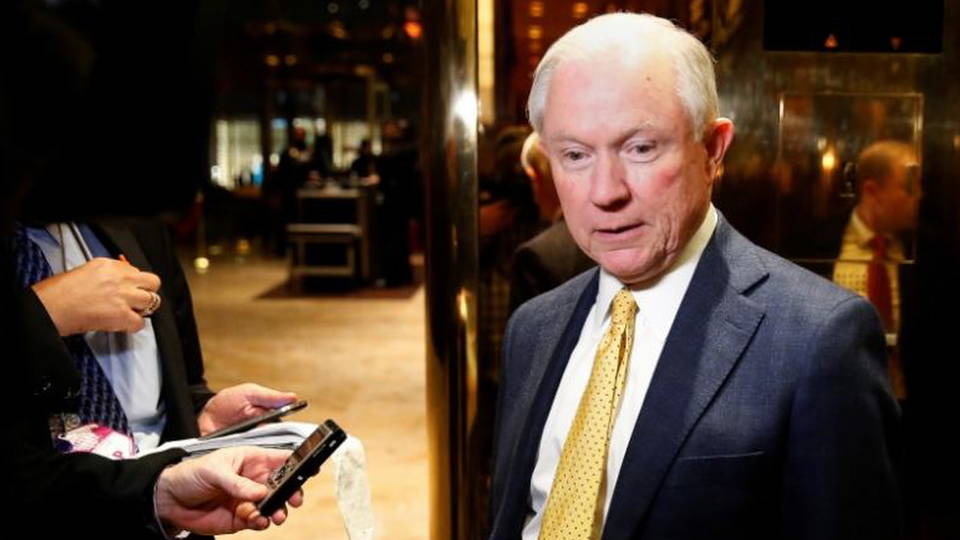
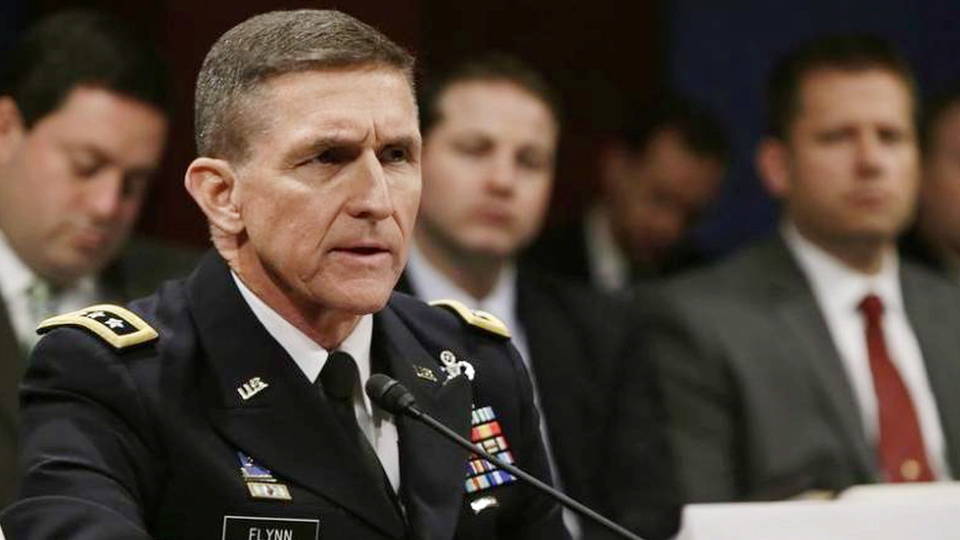
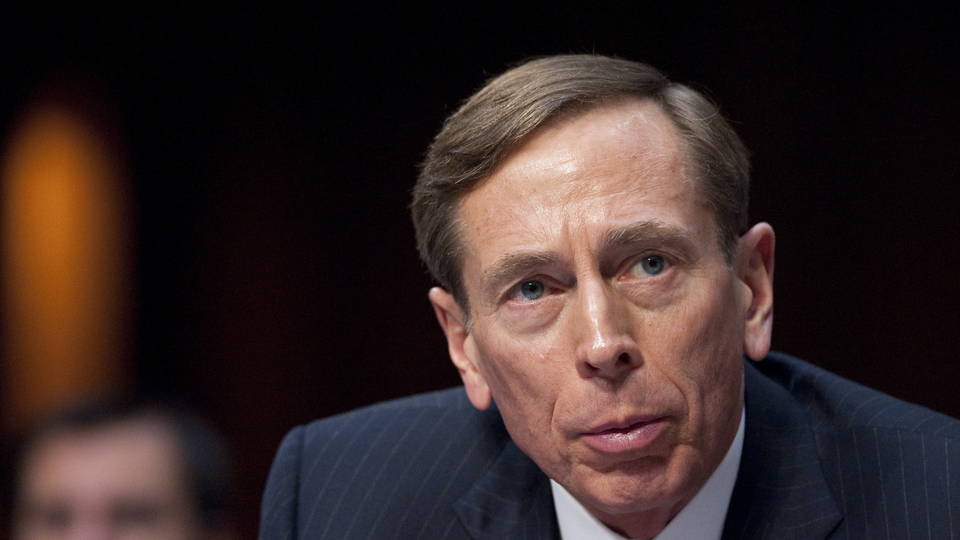
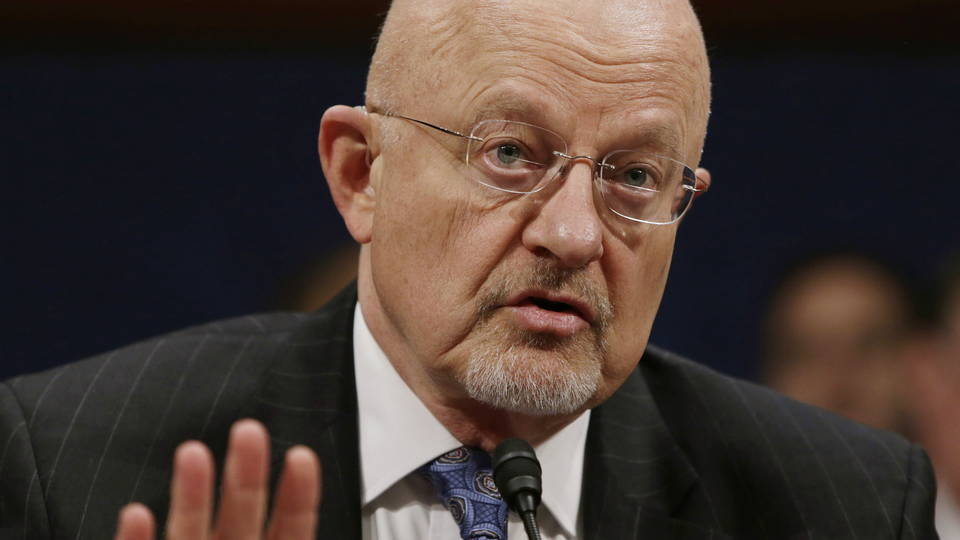

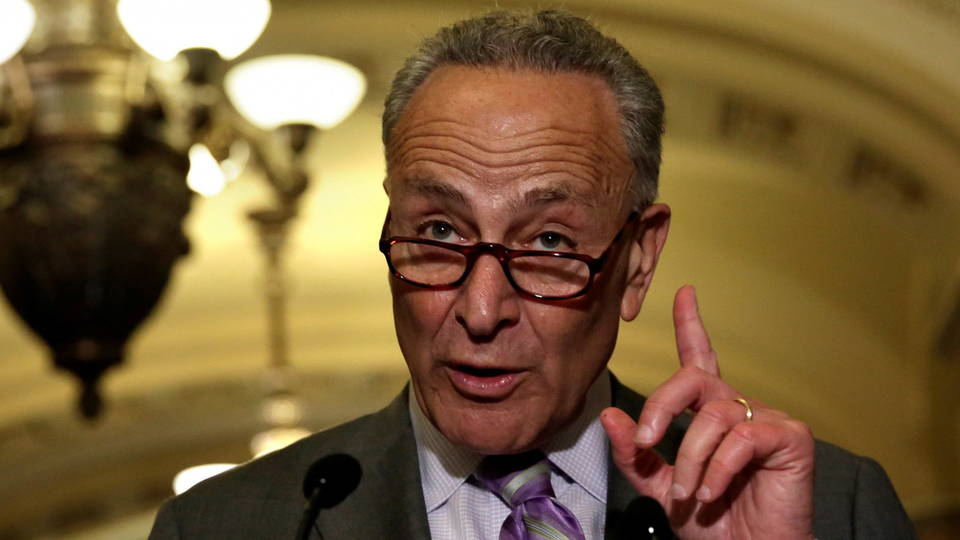
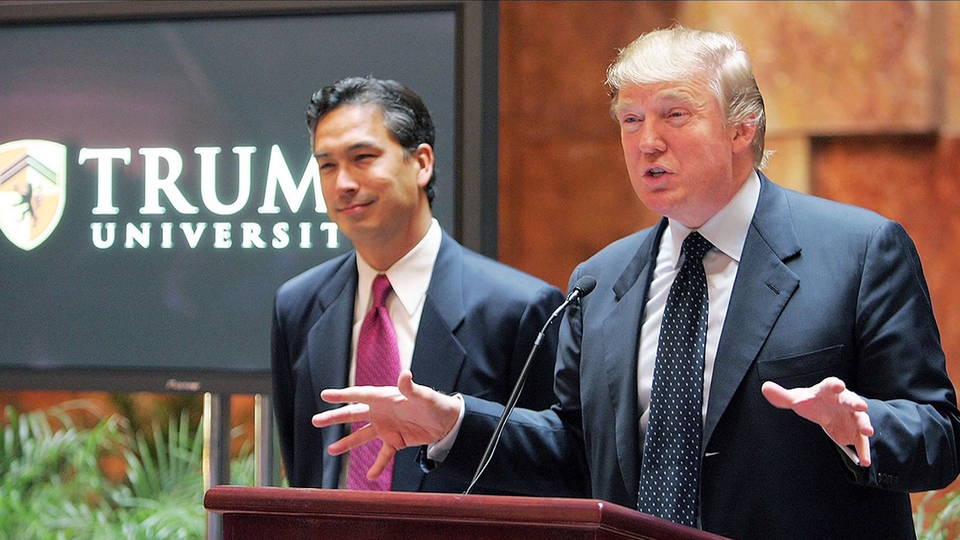









 -------
-------
Donate today:
Follow:



CELEBRATE 20 YEARS OF DEMOCRACY NOW!
Democracy Now!'s 20th Anniversary Celebration
NEW BOOK

Donald Trump has chosen Alabama Senator Jeff Sessions to be attorney general. Sessions is a former prosecutor who was elected to the Senate in 1996. As a senator, he’s consistently supported anti-immigration legislation. In 2010, he was a leading proponent of the efforts to repeal the 14th Amendment, which grants citizenship to everyone born in the United States. Jeff Sessions has also been a vocal opponent of the Voting Rights Act. In 1986, President Ronald Reagan nominated Sessions for a federal judgeship, but he was denied confirmation because of his history of racist comments, including reportedly saying he thought the Ku Klux Klan was "OK until I found out they smoked pot." He has also called the American Civil Liberties Union and the NAACP "un-American" and "Communist-inspired."
TOPICS:
Trump Chooses Lt. Gen. Michael Flynn for National Security Adviser

Meanwhile, officials from Donald Trump’s transition team have told multiple news outlets that Trump has offered Lieutenant General Michael Flynn the position of national security adviser. Flynn is well known for his anti-Muslim worldview, having called Islam a "cancer" and saying "fear of Muslims is rational." Flynn is also on the board of advisers for ACT for America, an anti-Muslim organization that’s been designated as a hate group by the Southern Poverty Law Center. This position of national security adviser does not require Senate confirmation. Flynn served as the director of the Defense Intelligence Agency under President Obama, during which time some of his subordinates invented the term "Flynn facts" to refer to the false claims Flynn frequently made, including claiming Sharia law was spreading in the United States. Flynn was a key adviser for Donald Trump during the 2016 campaign, during which he refused to condemn Trump’s proposed use of torture. Human Rights Watch said his pick shows "a deeply disturbing disregard for human rights principles and the laws of war."
Trump Reportedly Considering General Petraeus for Secretary of State

Another controversial military figure, former CIA director and retired U.S. Army General David Petraeus, is reportedly in the running for secretary of state. In 2015, Petraeus was sentenced to two years’ probation and a $100,000 fine after pleading guilty to leaking highly classified information to his biographer and lover, Paula Broadwell. This comes after Trump has spent months calling for Hillary Clinton to be jailed for her use of a private email server when she served as secretary of state, despite being cleared of wrongdoing by multiple FBI investigations. Donald Trump also met with President Nixon’s secretary of state, Henry Kissinger, on Thursday at Trump Tower.
TOPICS:
Intelligence Director James Clapper Resigns

Director of National Intelligence James Clapper has submitted his resignation, sparking renewed calls for him to face perjury prosecution for lying under oath to the Senate in March 2013, when he was questioned by Senator Ron Wyden about the government’s secret surveillance program.
Sen. Ron Wyden: "Does the NSA collect any type of data at all on millions or hundreds of millions of Americans?"
James Clapper: "No, sir."
Sen. Ron Wyden: "It does not?"
James Clapper: "Not wittingly. There are cases where they could inadvertently, perhaps, collect, but not wittingly."
Clapper later defended himself by claiming he had answered the question in the "least untruthful manner." His resignation will be effective on Inauguration Day: January 20, 2017.
TOPICS:
Trump's Son-in-Law Jared Kushner Weighs Joining Administration

The New York Times is reporting Donald Trump’s son-in-law Jared Kushner is weighing the possibility of joining Trump’s administration—a move that may violate U.S. anti-nepotism laws. Kushner is the husband of Trump’s daughter Ivanka. He’s been a key adviser to Donald Trump’s campaign and transition team. Most recently, he orchestrated a purge of New Jersey Governor Chris Christie and his allies from the transition team. Jared’s father, Charles Kushner, was sent to prison by Christie when Christie was New Jersey’s top prosecutor.
TOPICS:
Democratic Party Elects NY Senator Chuck Schumer as Minority Leader

Meanwhile, the Democratic Party has elected New York Senator Chuck Schumer to be the Senate minority leader, despite opposition from protesters who say Schumer’s ties to Wall Street make him unfit to lead the Democratic Party’s opposition to Donald Trump. Earlier this week, protesters held a sit-in inside Schumer’s office, demanding he step aside and instead support Vermont Senator Bernie Sanders for the position of minority leader. Instead, on Wednesday, Schumer was elected minority leader and then tapped Bernie Sanders as chair of outreach for the Democratic leadership team. Meanwhile, Massachusetts Senator Elizabeth Warren has become the latest Democratic Party member to endorse Minnesota Congressmember Keith Ellison as the next chair of the Democratic National Committee. He’s the co-chair of the Congressional Progressive Caucus.
TOPICS:
Hearing Today over Whether to Postpone Trump University Lawsuit

In San Diego, U.S. District Judge Gonzalo Curiel will hold a hearing Friday to consider a request by Donald Trump’s lawyers to delay the class action lawsuit against Trump and his defunct for-profit Trump University until after the inauguration in January. The university has been accused of defrauding students. Trump is slated to testify at the trial, but his lawyers are trying to convince Judge Curiel to permit him to testify via a videotaped deposition. They’re also trying to withhold from evidence everything Trump has said, including in speeches and in tweets. During the campaign, Trump attacked Judge Curiel, saying his Mexican heritage makes him biased against Trump.
TOPICS:
Norway's Largest Bank Sells Assets in Dakota Access Pipeline Company

The largest bank in Norway, DNB, has sold its assets in the companies behind the $3.8 billion Dakota Access pipeline, and it’s considering whether to terminate three separate loans the bank has made to finance the project. The sold assets were worth $3 million. The loans under consideration finance up to 10 percent of the pipeline’s construction. Norway’s DNB is not connected to DNB First, which is based in Pennsylvania and is not involved in the Dakota Access pipeline. This comes as Energy Transfer Partners, the company behind the Dakota Access pipeline, is almost certain to miss the January 1, 2017, deadline by which it had promised oil companies it would have completed construction, opening up the possibility the pipeline company may lose its contracts with oil companies. In recent court documents, Energy Transfer Partners acknowledged that if the Army Corps of Engineers does grant the final permit to drill underneath the Missouri River, it would still take the company between three and four months to finish the project. It’s still not clear whether the permit will ever be granted. Even if it is granted, missing the January 1 deadline means oil companies will have the right to renegotiate or even cancel their contracts to have oil shipped through the Dakota Access pipeline. These cancellations are likely, given that Bakken oil production has fallen by 20 percent since its peak in December 2014—the same year the contracts were first signed. Energy Transfer Partners has acknowledged in court filings "loss of shippers to the project could effectively result in project cancellation."
TOPICS:
Iraq: Suicide Attack Kills 30 at Wedding Near Fallujah

In Iraq, a suicide car bomb killed at least 30 people at a wedding Thursday. The Islamic State has claimed responsibility for the attack south of Fallujah. Among the dead was the groom, Seif Jumaa Maajal, who was the son of a local tribal leader who had been a vocal opponent of the Islamic State.
TOPICS:
China: Workers Stage Series of Protests and Strikes Against Wal-Mart

In China, workers have staged a series of strikes and protests against Wal-Mart, demanding better pay and working conditions. At least 20,000 of Wal-Mart’s workers in China have joined messaging groups, such as WeChat, in order to coordinate organizing against the company. This comes amid a wave of labor organizing in China’s service sector. Since July, workers have organized more than 120 protests and strikes targeting service companies, including Wal-Mart.
Palestinians Oppose Bills to Ban Call to Prayer & Retroactively Legalize Settlements

Palestinians are condemning two pieces of legislation being pushed by Israeli lawmakers. The first would ban mosque loudspeakers in efforts to silence the call to prayer, which sounds five times throughout the day. Right-wing Israeli lawmakers are claiming the call is noise pollution. The second piece of legislation would retroactively legalize Jewish-only settlements on Palestinian land in the Israeli-occupied West Bank. The measure violates international law. This is Palestinian leader Hanan Ashrawi.
Hanan Ashrawi: "We consider all settlements illegal, whether they are on public land or private land. But now it extends the confiscation of territory to private Palestinian land, where settlers and the illegal Israeli occupation can steal—outright theft—Palestinian land, whether for public Palestinian use or private Palestinian property, in order to expand its settlement project, destroy the two-state solution and at the same time impose greater Israel on historical Palestine."
TOPICS:
Guatemala: U.S.-Backed Former Dictator Ríos Montt to Face Genocide Trial

In Guatemala, a judge has ruled former U.S.-backed dictator Efraín Ríos Montt will face trial on charges of genocide for a massacre in 1982 that killed 273 indigenous people, nearly half of them children. On Wednesday, the judge ruled he will be represented by his lawyers, as he’s been ruled mentally unfit for trial. Ríos Montt was found guilty of genocide in 2013, but a court annulled his 80-year sentence less than two weeks later.
TOPICS:
Residents of Chagos Islands, Removed for U.S. Base, Not Allowed to Return Home

Britain says residents of the Chagos Islands in the Indian Ocean who were forcibly removed for the construction of a U.S. military base in the early 1970s will not be allowed to return home—despite four decades of organizing by the displaced residents who are demanding the right to return. In addition to serving as U.S. air base, one of the islands, Diego Garcia, has also played a critical role in the U.S. extraordinary rendition program. This week, the British Foreign Office minister said instead of the right to return home, the Chagossians will be offered 40 million pounds in compensation over the next decade. She also said the U.S. will be allowed to keep its military base on the island.
400+ Reports of Attacks & Harassment in Wake of Trump's Election

Back in the United States, the number of reported hate crimes continues to surge in the wake of Donald Trump’s election last week. The Southern Poverty Law Center has now documented at least 437 incidents of verbal and physical attacks, intimidation and harassment against Muslims, immigrants, African Americans, women and people of color. The most commonly reported place where physical or verbal harassment occurred continues to be in K-12 schools.
TOPICS:
Karnes For-Profit Detention Center Bans Children From Playing with Crayons

A for-profit immigrant family detention center in Karnes County, Texas, has banned migrant children held there from having access to crayons while their mothers meet with lawyers. Immigration authorities claim the ban is a response to children coloring on a table in the prison’s visiting area, which "caused damage to the contractor." The facility is operated by the private prison company GEO Group, which saw its stock price jump after Donald Trump won the presidential election. Human rights advocates are calling for the Obama administration to cut ties with the private prison industry and end family detention before the close of his term.
TOPICS:
Colson Whitehead Wins National Book Award for "The Underground Railroad"

Writer Colson Whitehead has won the National Book Award for "The Underground Railroad," a novel about a young enslaved girl who escapes from a Georgia plantation. At the New York City award ceremony, Whitehead said, "We’re happy in here; outside is the blasted hellhole wasteland of Trumpland. Be kind to everybody, make art and fight the power."
TOPICS:
Trump Picks Congressmember Mike Pompeo as CIA Director

And in breaking news, The Washington Post is reporting that Donald Trump has chosen Kansas Congressmember Mike Pompeo as CIA director. Pompeo has opposed closing Guantánamo Bay prison. In 2013, he visited the notorious U.S. prison and said of the prisoners who were on hunger strike, "It looked to me like a lot of them had put on weight." He’s also a vocal opponent of the Iran nuclear deal.
TOPICS:
Donate today:
Follow:




CELEBRATE 20 YEARS OF DEMOCRACY NOW!

Democracy Now!'s 20th Anniversary Celebration
NEW BOOK

11/28 Philadelphia, PA
12/5 New York, NY
WORK WITH US!

As the planet warms, Trump sends a chill through Marrakech
-------
207 West 25th Street, 11th Floor
New York, New York 10001, United States
-------Democracy Now! Daily Digest: A Daily Independent Global News Hour with Amy Goodman & Juan González for Thursday, November 10, 2016
democracynow.org
Stories:

Glenn Greenwald: Why Did Trump Win? Blame the Failed Policies of the Democratic Party
And I think what we’re seeing, in the aftermath of this, is an attempt by Democrats, who nominated a candidate, Hillary Clinton, despite knowing how weak and how vulnerable and how deeply unpopular she was across many sectors in the country, who nonetheless insisted on nominating her in the face of all sorts of empirical evidence that she would not only lose but could literally lose to anyone, that those very same people who insisted on marching behind her are now attempting to blame everyone they can find—except, of course, themselves—for this debacle. And I think that if we’re going to have any kind of constructive discussion in the aftermath of Trump’s victory, it has to include, first and foremost, a discussion about why the Democratic Party has become such a small minority party, a minority in the House, a minority in the Senate, lost control of the White House to someone like Donald Trump, is obliterated on the state and local levels. What is it about the Democratic Party that has caused huge portions of the American voting population to turn their back to it and to reject it? And I think we’re seeing Democrats scrambling around, trying to avoid that discussion by casting the blame on everybody else. And I think that will only ensure that this kind of event will continue to replicate itself in the future. ... Read More →

Glenn Greenwald: Bernie Sanders Would Have Been a Stronger Candidate Against Donald Trump
AMY GOODMAN: "Burning in Birmingham," sung by Amy Leon last night at last night’s "We Stand Together" rally in New York City to "Reject Misogyny & Racism & Embrace Each Other." That was the name of the rally. Special thanks to Democracy Now!’s Renée Feltz. ... Read More →

Bill McKibben: Trump's Presidency Comes When the Warming World Can Least Afford It
AMY GOODMAN: Bill McKibben will be speaking at The New School tonight, giving the Jonathan Schell Memorial Lecture. Bill McKibben, co-founder of 350.org, among his books, _Eaarth: Making a Life on a Tough New Planet." And we’ll link to his piecein The New York Times, "Why Dakota is the New Keystone." In 2014, Bill McKibben was awarded the Right Livelihood Prize, sometimes called the Alternative Nobel, for his environmental activism. ... Read More →

"Not My President": Tens of Thousands Take to Streets, Block Freeways & Rally Against Trump
AMY GOODMAN: People protesting outside the residence of Donald Trump at Trump Tower in New York on Wednesday night. ... Read More →

"Genuinely Terrifying Prospect": Greenwald on Palin, Giuliani & Bolton Serving in Trump's Cabinet
AMY GOODMAN: "Indian Givers," a new song by Neil Young. And you can go to our website at democracynow.org to watch and hear the whole song. This is Democracy Now!, democracynow.org, The War and Peace Report. I’m Amy Goodman, with Nermeen Shaikh. ... Read More →

Greenwald on "Democrats, Trump, and the Ongoing, Dangerous Refusal to Learn the Lesson of Brexit"
And what you have as a result are these decades of trends that we began by talking about, that Senator Sanders described, in which tens of millions of people have been trampled on by these policies of Western institutions of authority, who are essentially invisible and ignored. And the more you ignore them and the more you scorn them and the more you tell them that their grievances are invalid, the more they’re going to be susceptible to scapegoating, the more their bigotry will be inflamed, and the more they’ll want to destroy the systems and the institutions that they believe are responsible for their suffering. And so, a lot of people who voted for Brexit, a lot of people who voted for Trump understand exactly all the arguments that were made about why each of them is potentially destructive and so dangerous, and they did it, not despite that, but because of that, because they want to punish and ultimately destroy the institutions who no longer have any credibility with them and who they believe are responsible for the suffering and the lack of security that they experience in their lives without anyone really caring about it at all. And until we start to address that and until institutions, elite institutions, take responsibility for it, those things are going to continue to fester and grow, and it very well may be the case that Trump and Brexit are just the beginning of this very alarming cycle, rather than the peak of it. ... Read More →
Headlines:
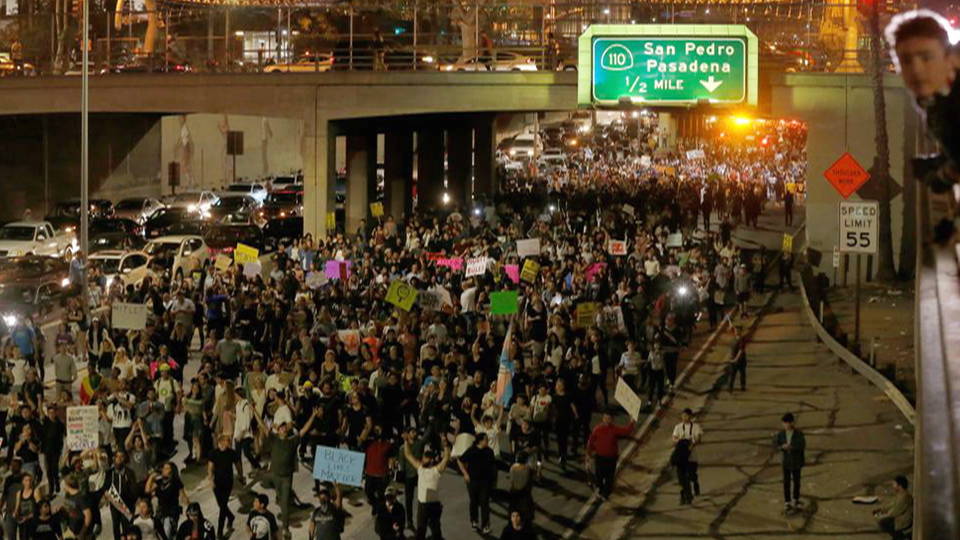
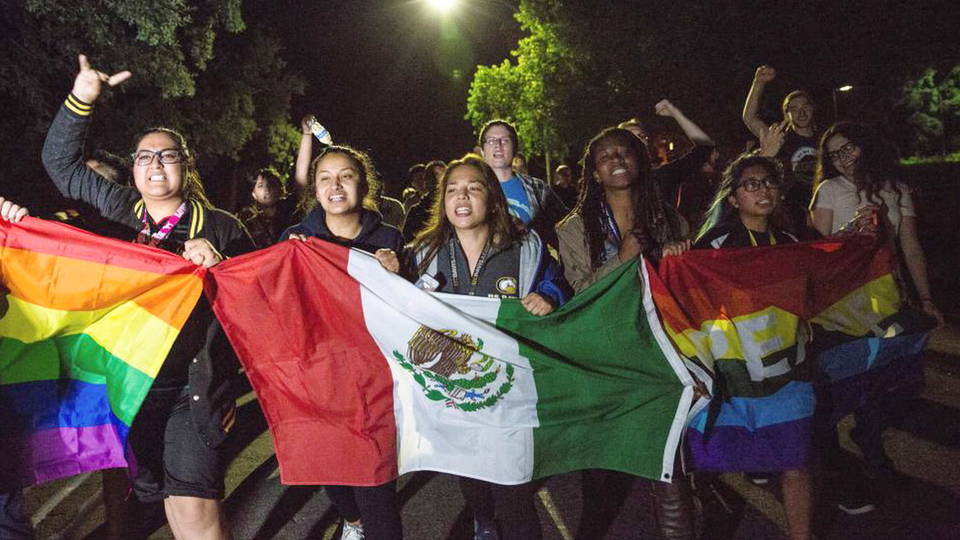
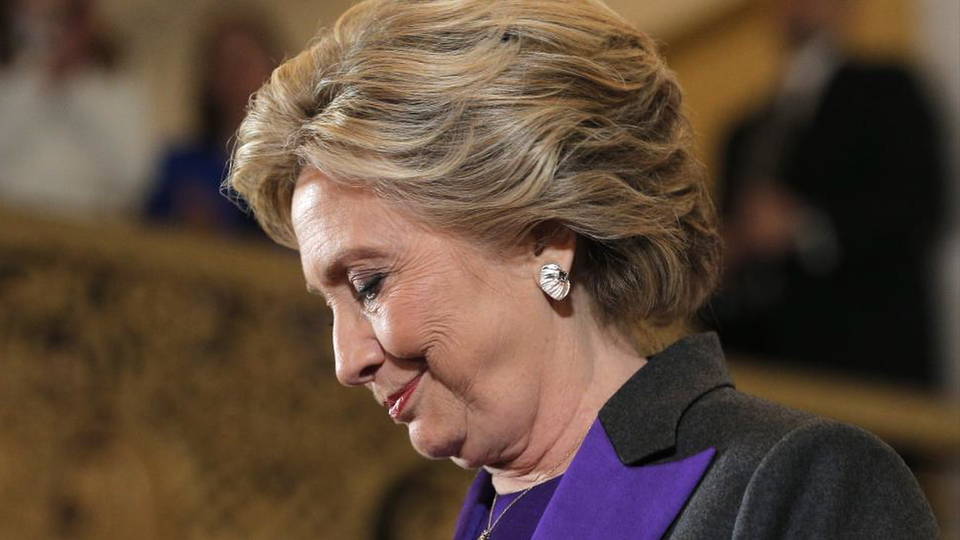
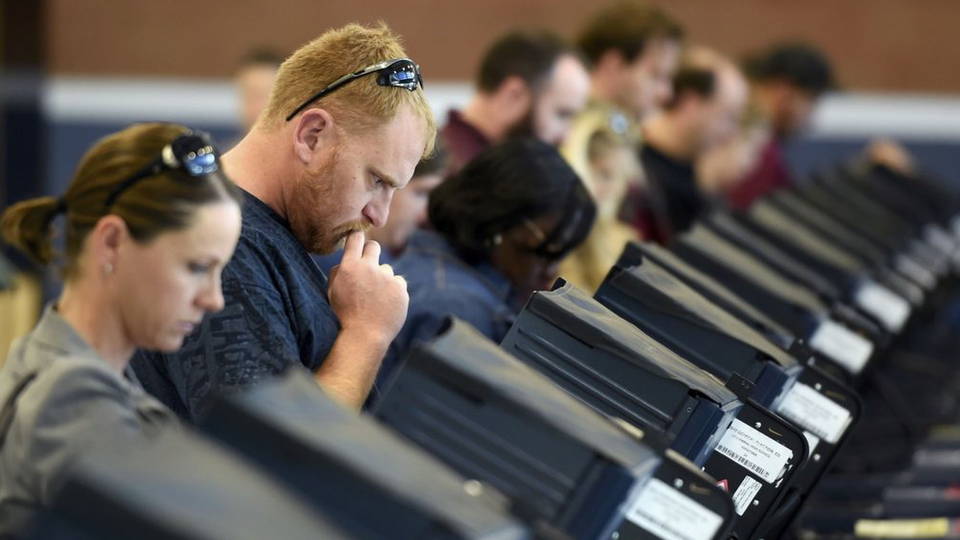
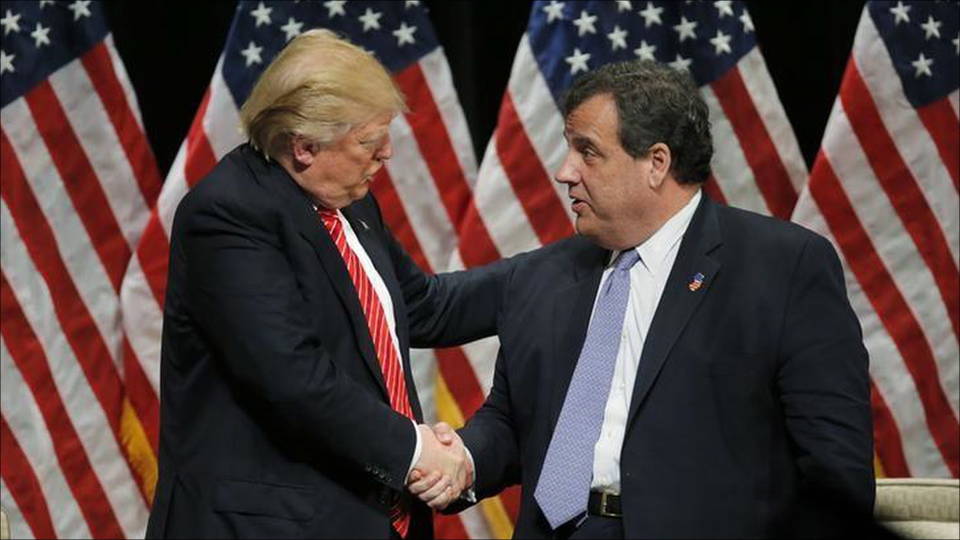
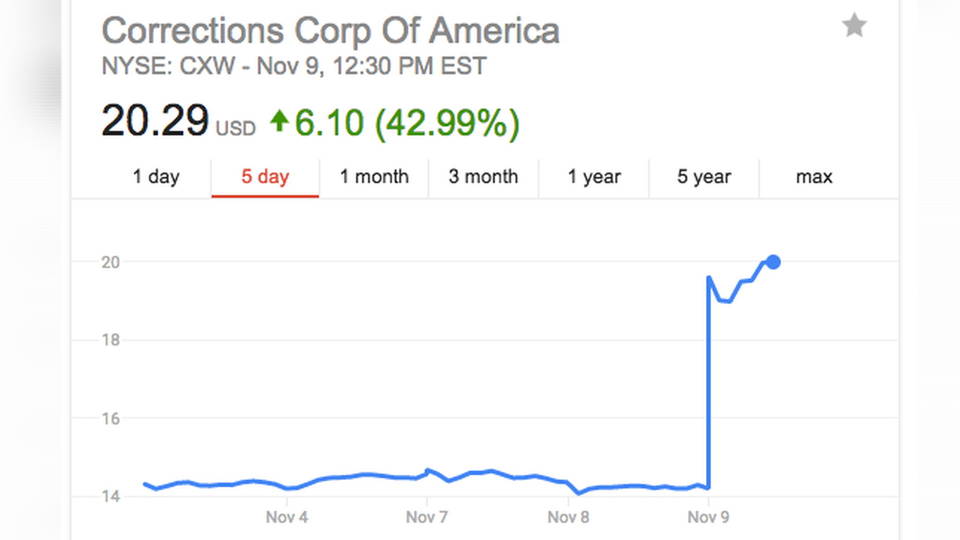
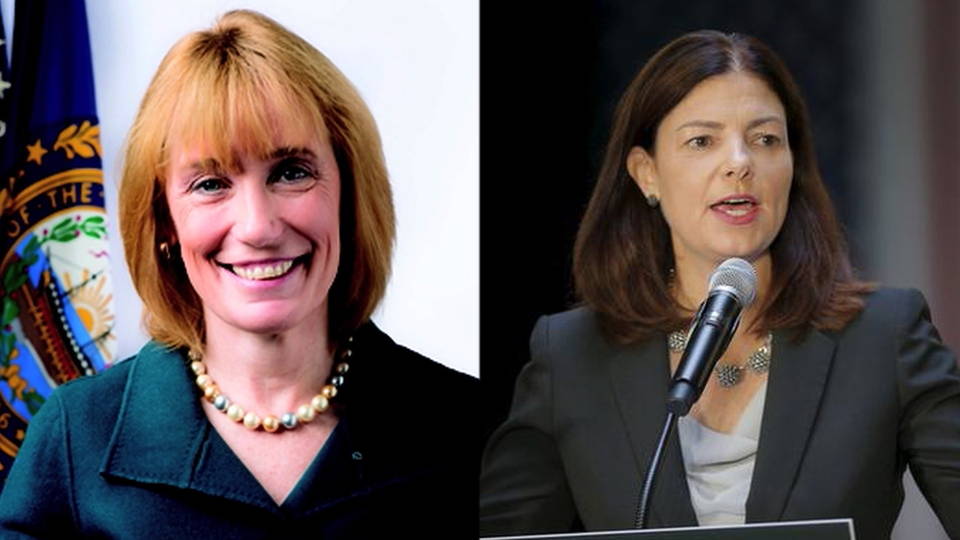
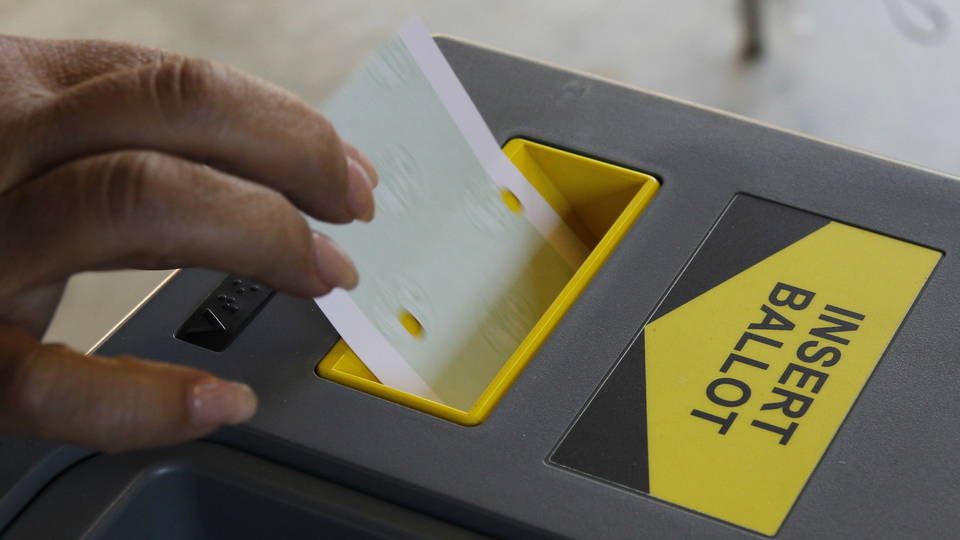


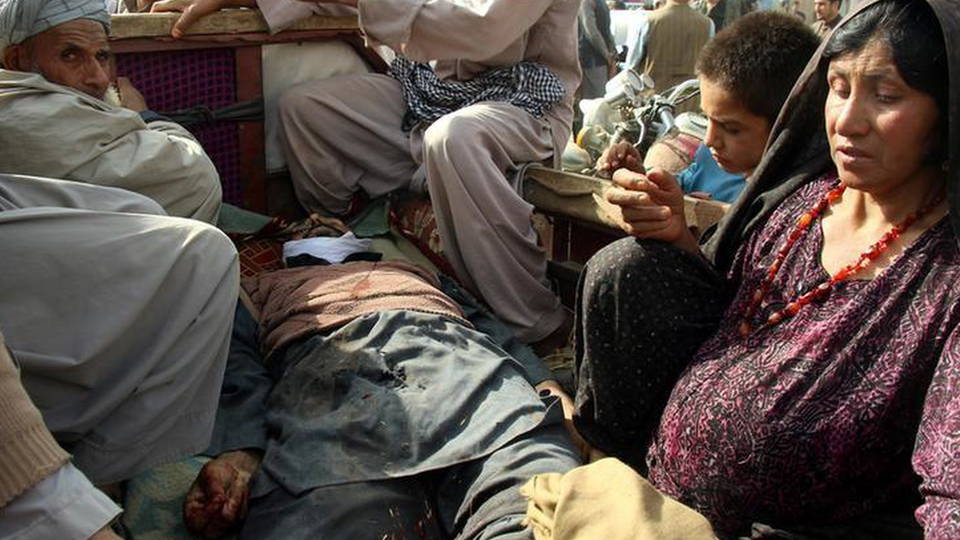
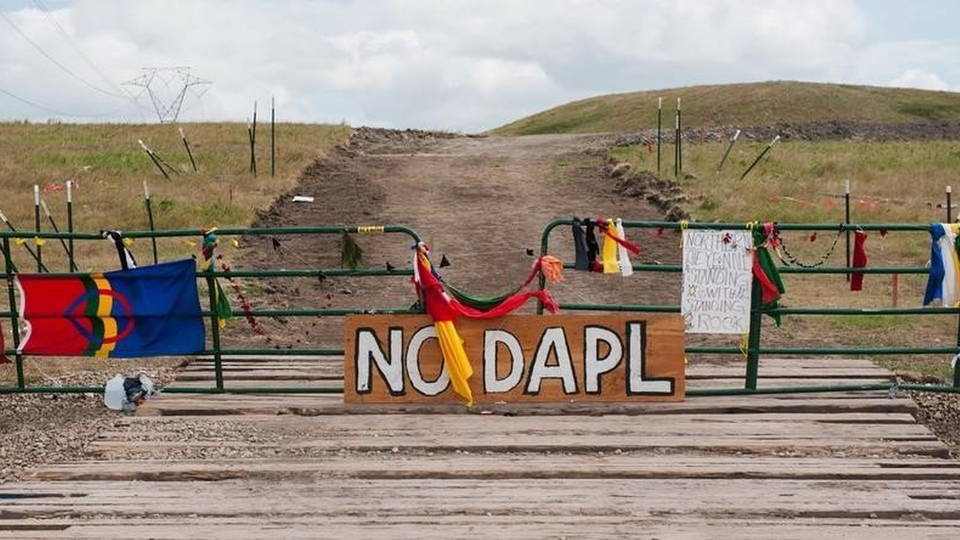 -------
-------
Donate today:
Follow:



SPECIAL BROADCAST

WATCH: Election Night 2016 Coverage with Democracy Now!
NEW BOOK

Democracy Now!: Twenty Years Covering the Movements Changing America
DN! INTERNSHIPS

Apply today to be a Democracy Now! intern
-------
207 West 25th Street, 11th Floor
New York, New York 10001, United States
-------
Democracy Now! Daily Digest
: A Daily Independent Global News Hour with Amy Goodman & Juan González for Wednesday, November 9, 2016
democracynow.org
Stories

If Bernie Won Democratic Primary, Would We Now Be Looking at a Sanders Presidency?
LINDA SARSOUR: Largest, highest concentration of Muslim Americans in the entire country. What I want to say, Amy, is that this is a time for soul searching for the Democratic Party. They left young people out in the cold. They called us naive. They called us idealistic. They left Muslims out in the cold. Any time Hillary Clinton mentioned us, she said we were eyes and ears, we were on the front lines of countering terrorism. She never talked about us in any other way but as a law enforcement tool. And I’m honestly—I’m just waking up now, even though I haven’t slept. I’m outraged, not just at the fact that Donald Trump is the president. I’m outraged at the people who are going to put blame on black people and immigrants and Latinos voted more for Trump than they did for Mitt Romney, when, in fact, the blame that I want to put here is on the Democratic Party, because they are the ones that put me in this situation.... Read More →

How Do We Explain to Young People We Have a Sexist, Racist Islamophobe in the White House?
The original content of this program is licensed under a Creative Commons Attribution-Noncommercial-No Derivative Works 3.0 United States License. Please attribute legal copies of this work to democracynow.org. Some of the work(s) that this program incorporates, however, may be separately licensed. For further information or additional permissions, contact us. ... Read More →

Just Like After Reconstruction, Trump Vote Highlights White Backlash to Recent Racial Progress
NIKOLE HANNAH-JONES: Like I just said: If you look at history, this is unsurprising. This has been a country that has never been comfortable with racial progress for ethnic and religious minorities, and still is not so. ... Read More →

What Happens Now to the Millions of Immigrants Facing Possible Deportation Under Trump?
AMY GOODMAN: I am reading from the August Asian Journal. It says, "Filipinos everywhere are reacting to Donald Trump’s comments that suggested a ban on immigration from areas with high rates of terrorism, including the Philippines." ... Read More →

From the First African-American President to One Supported by the Ku Klux Klan: Trump Wins in Upset
AMY GOODMAN: We’ll have more on Donald Trump’s election as 45th president of the United States in a minute. ... Read More →

A Divided Nation: As Trump Wins Electoral College, Clinton Wins Popular Vote
One other element I would throw in, though. I’ve covered the new Republican Party. This is the Republican Party that came into existence after Barack Obama’s election. This Republican Party understands that when it gets power, it uses it quickly. And this is an important thing. Donald Trump will assume the presidency with a Republican House and Senate. If we look at the pattern from the states from 2011, they will move very rapidly on elements of their agenda. And I would counsel that Donald Trump was elected on the most right-wing platform in the history of the Republican Party, a platform that is filled with economic and social proposals that are more strongly backed by his congressional caucuses than by him. So, I would simply suggest that we are at a radical pivot point in this country. And on the eve of the election, Newt Gingrich said that he anticipated, if Donald Trump was elected, there would be mass protests and a great division in this country. I would suggest that that is very likely to be the case and, frankly, very necessary, because we cannot say to a man who lost the popular vote that we accept your radical agenda. ... Read More →

"It Might Not Be Good for America, But It's Good for Us": How the Media Got Rich on Trump's Rise
LINDA SARSOUR: We keep talking about Islam in the context of terrorism only. And I can only be a Muslim that—I’m only—you know this, Amy. "What do you think about this terrorist attack? What’s the Muslim community feeling?" No one ever brought me on here to talk about anything else that’s not me defending my faith on national television. And the media played a role in that. They made Donald Trump. They gave him free ad space. He didn’t even need to raise a penny to be the next president of the United States. And now here we are in the situation that we’re in. ... Read More →

In Victory for Immigrants' Rights Activists, Sheriff Joe Arpaio Loses Re-election in Arizona
AMY GOODMAN: We just got a Twitter question: How can we restore the Voting Rights Act? We’ll leave it there. Marisa Franco, John Nichols, Linda Sarsour, Jose Antonio Vargas, Nikole Hannah-Jones, Wayne Barrett, thanks for joining us. This is Democracy Now! Check out our second hour at democracynow.org.... Read More →

Lee Fang: Donald Trump Recruits Corporate Lobbyists to Select His Future Administration
Donald Trump may have run as an economic populist, but journalist Lee Fang examines how he has surrounded himself by corporate lobbyists. Fang reports ... Read More →

Trump Biographer Wayne Barrett on Donald Trump's Shocking Rise to the White House
This is Democracy Now! When we come back, we’re going to go to Phoenix and continue our discussion with our guests at this roundtable on this day after the 2016 presidential election, that has not only shocked the country, but the world. Donald Trump has been elected the 45th president of the United States. Stay with us.... Read More →

Allan Nairn: Did the FBI Hand the Election to Donald Trump?
AMY GOODMAN: That’s investigative journalist Allan Nairn talking about the FBI’s role in this election. ... Read More →

What Led to Trump's Victory? From Racial Fear to Economic Populism
AMY GOODMAN: We have to break, and we’re going to come back to this discussion. We are doing our post-election show. Yes, this is the day after. Our guests are Nikole Hannah-Jones of New York Times Magazine, Lee Fang of The Intercept, Linda Sarsour of MPower, John Nichols of The Nation and Jose Antonio Vargas of Define American. This is Democracy Now! Back in a minute. ... Read More →

In Trump White House, Will Mike Pence Become the Most Powerful Vice President in History?
That does it for the show. Thanks to John Nichols, Jose Antonio Vargas, Nikole Hannah-Jones and Lee Fang, as well as Linda Sarsour. ... Read More →
Headlines:
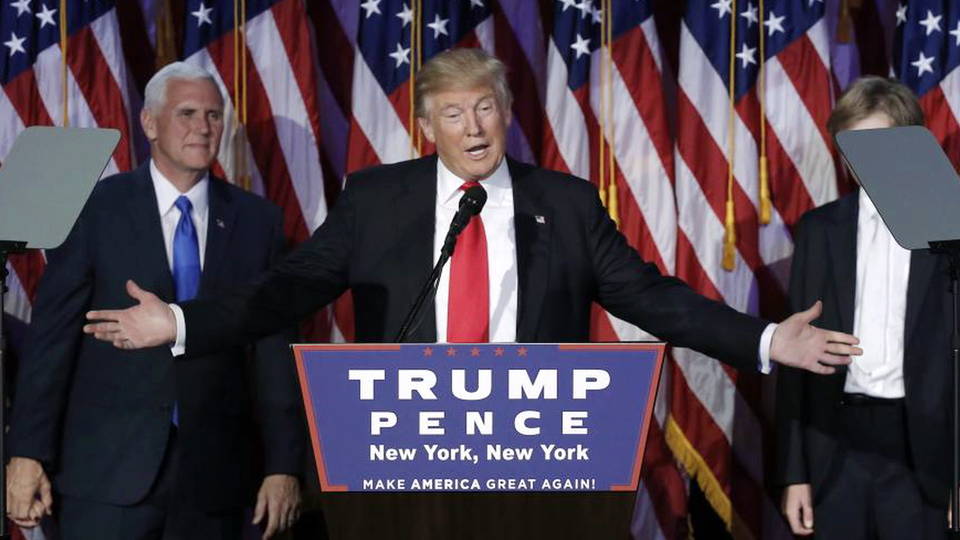
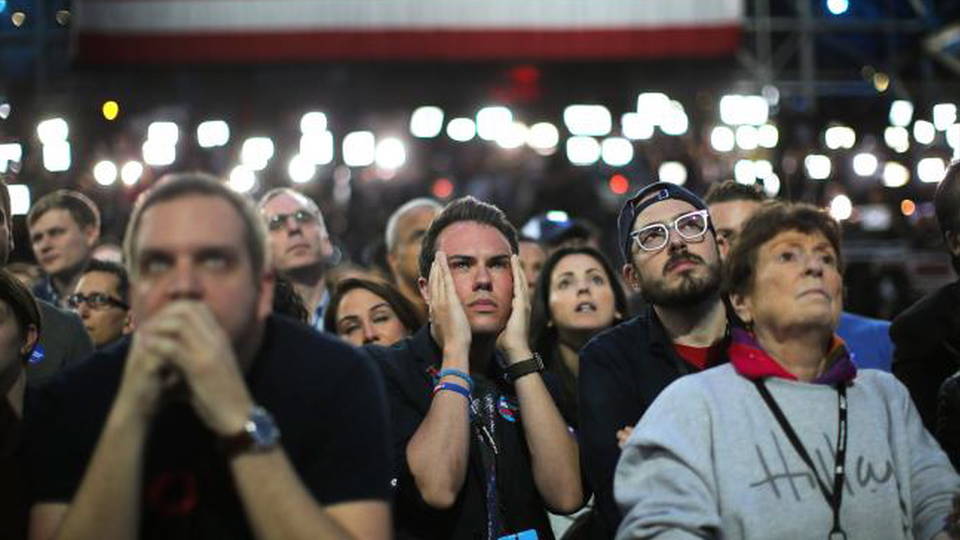
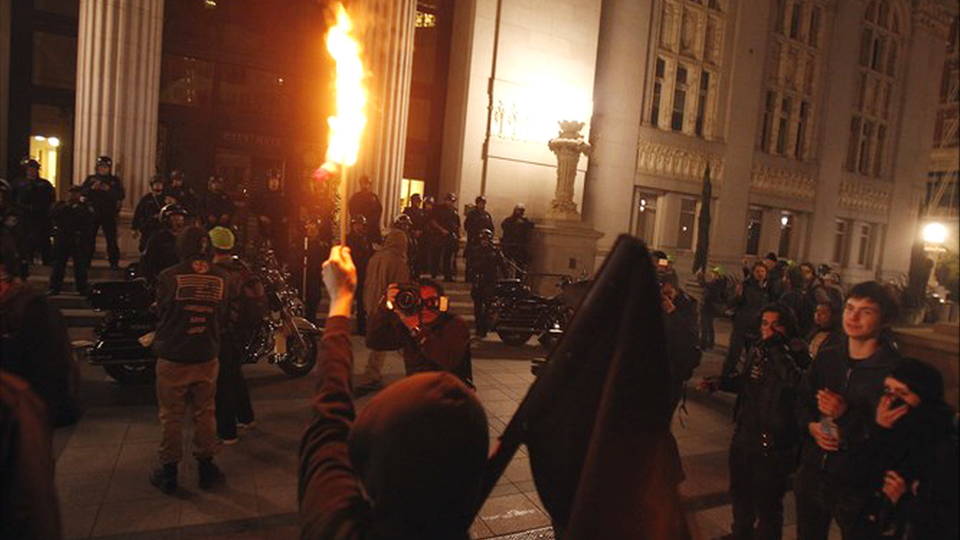
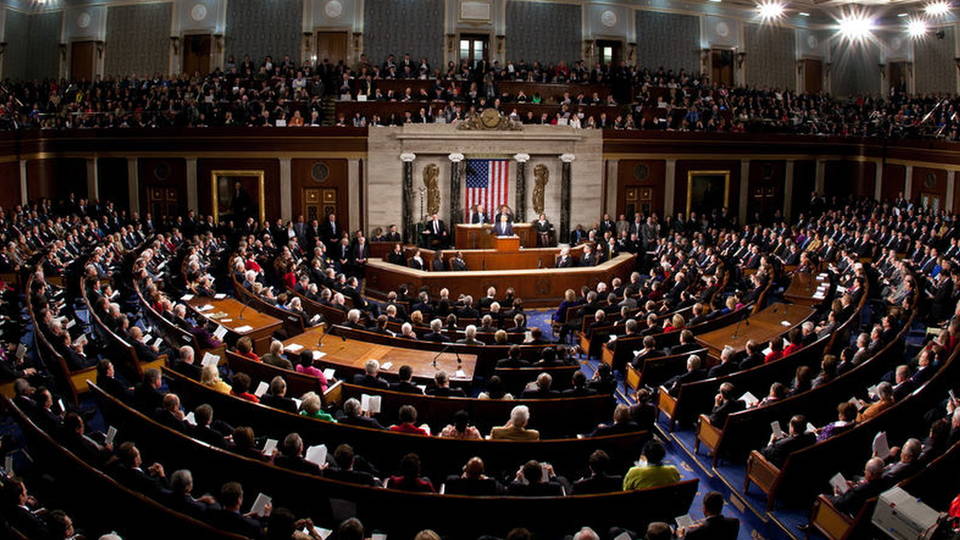
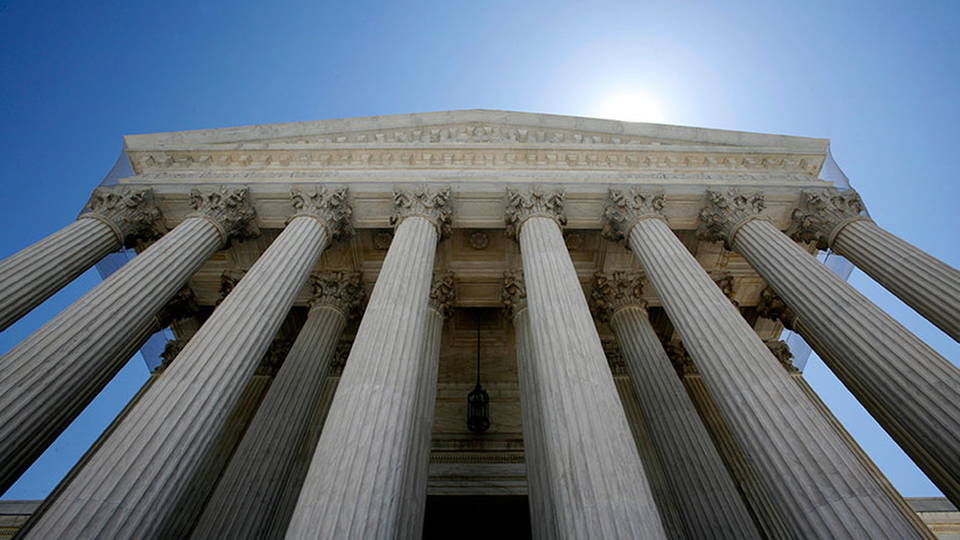
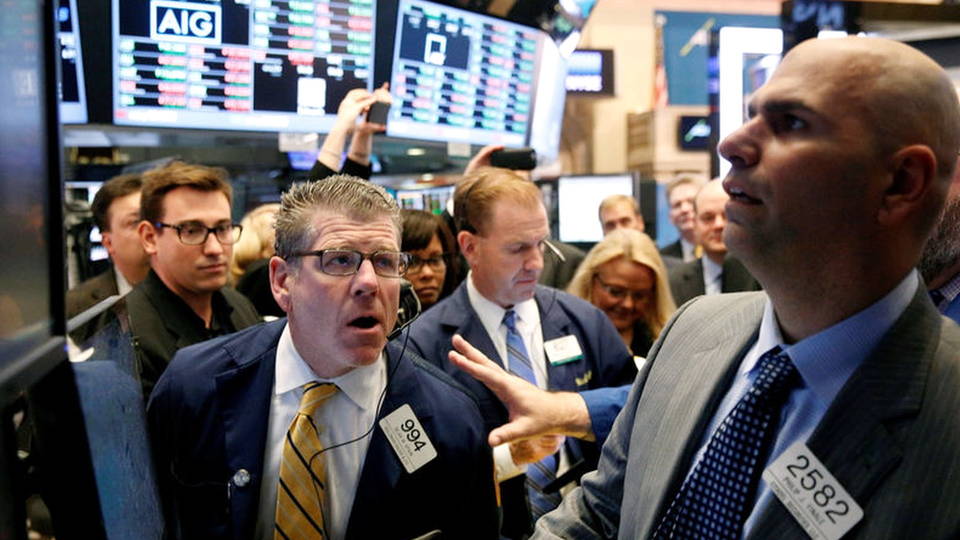
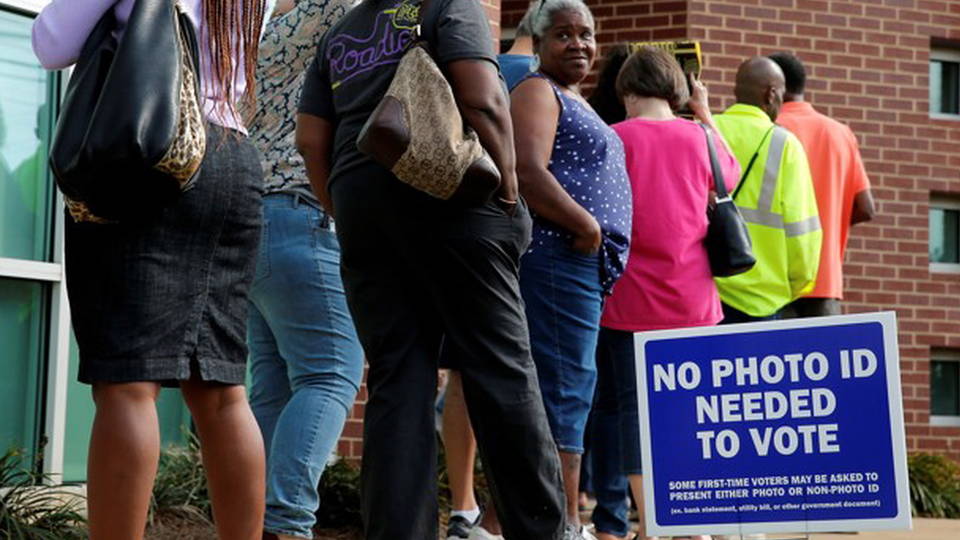
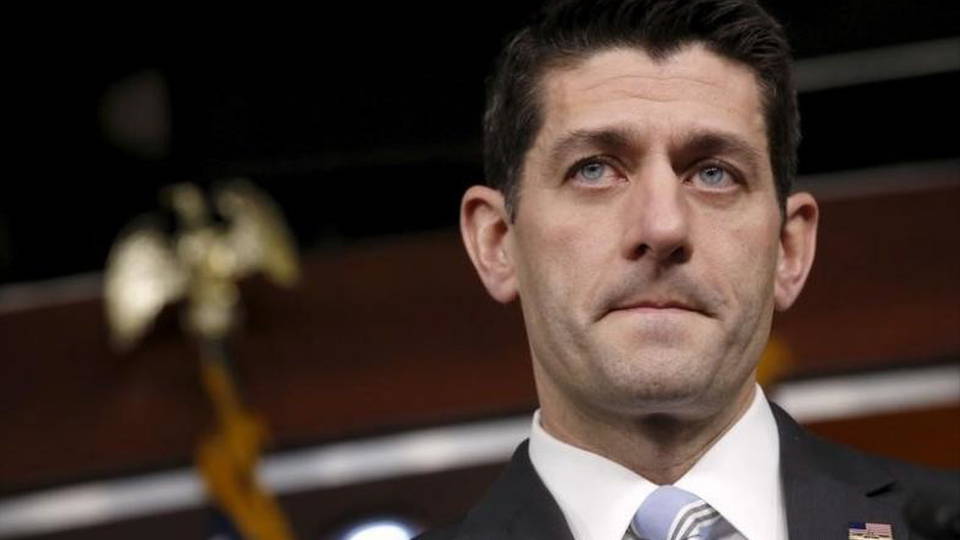
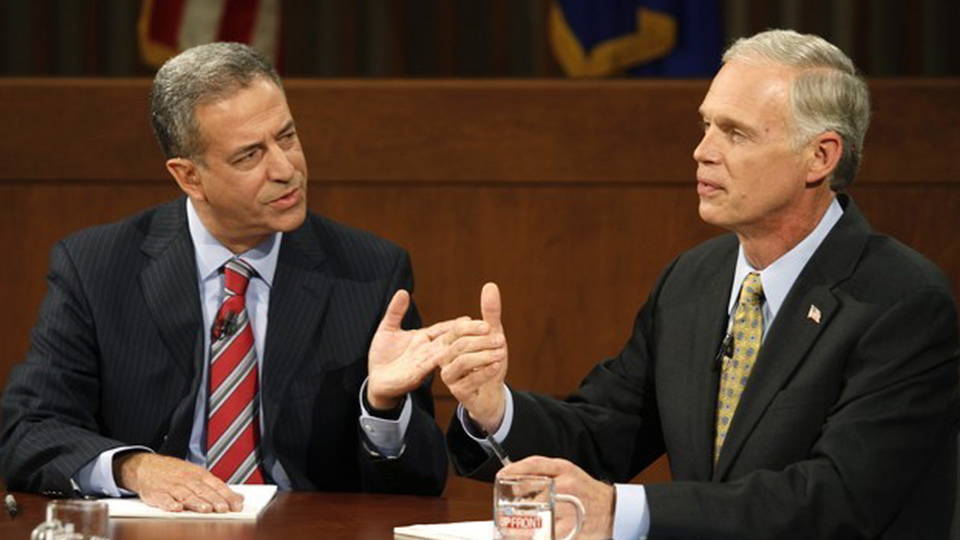
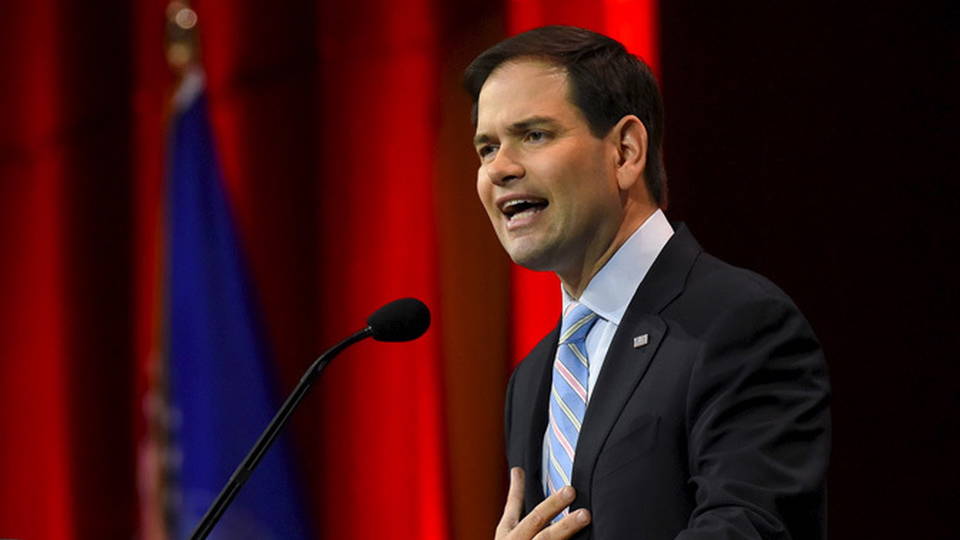
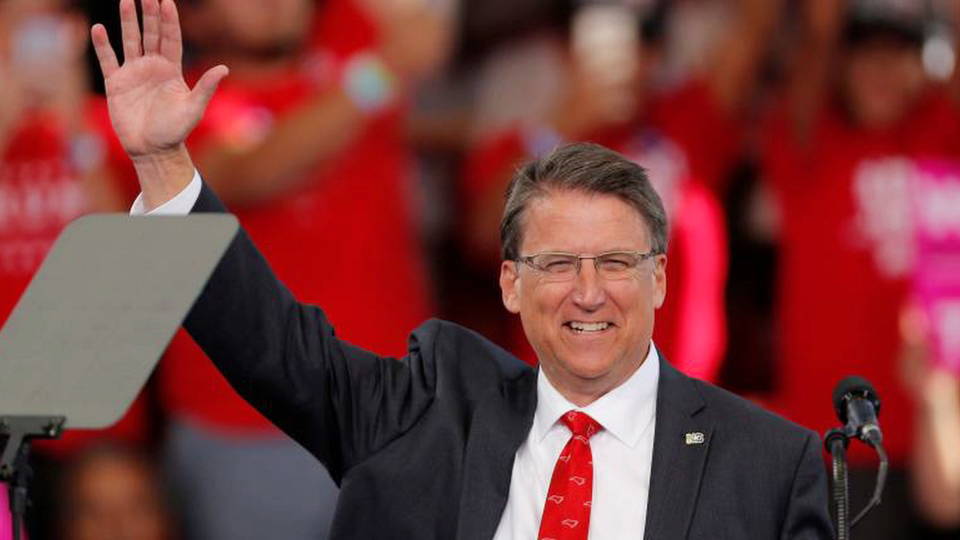
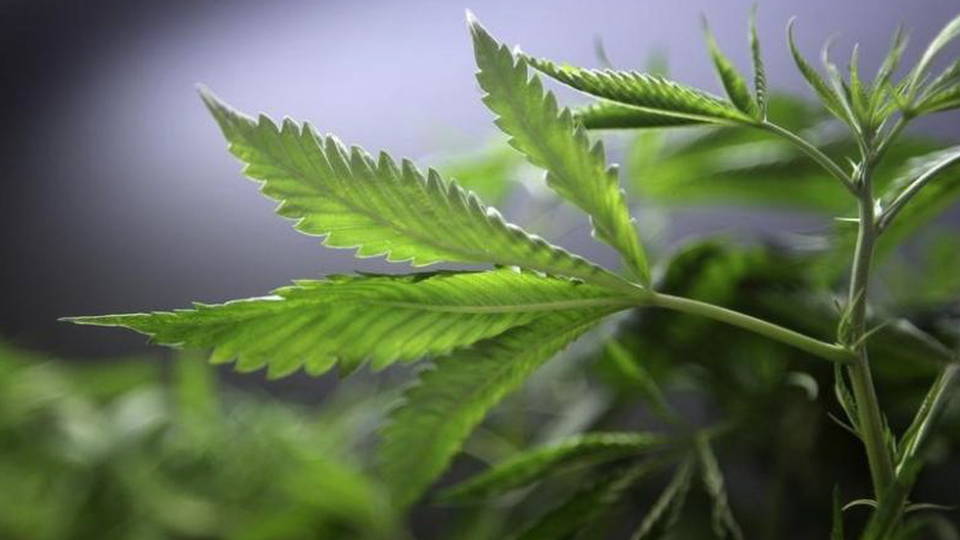

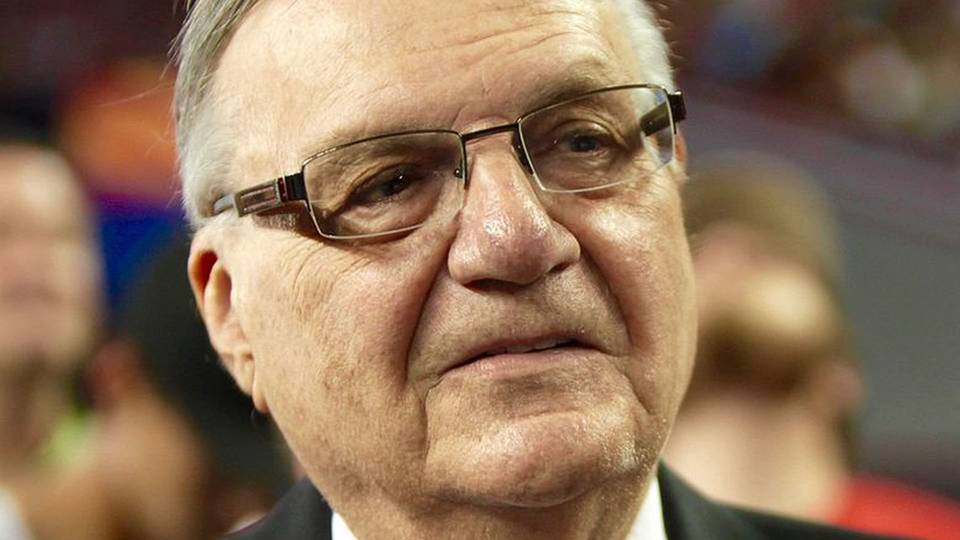
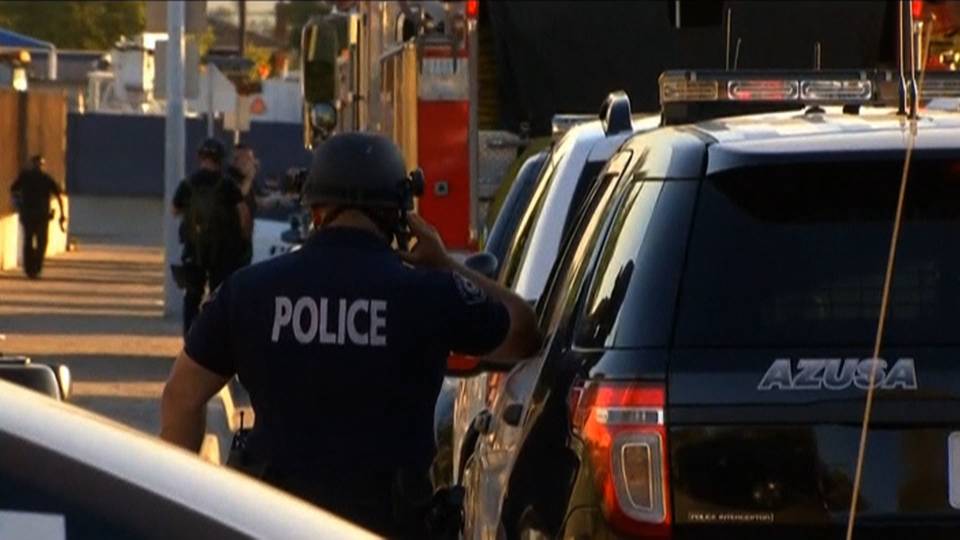
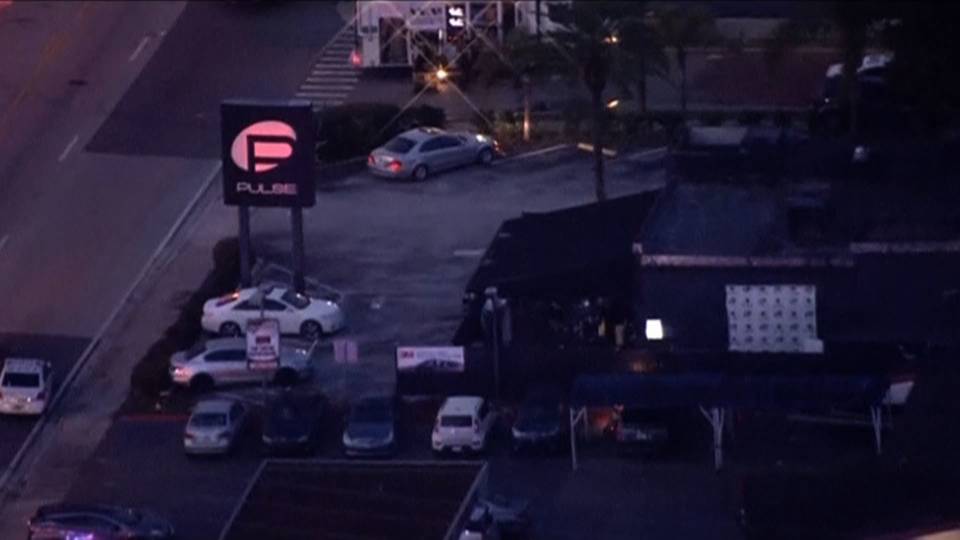
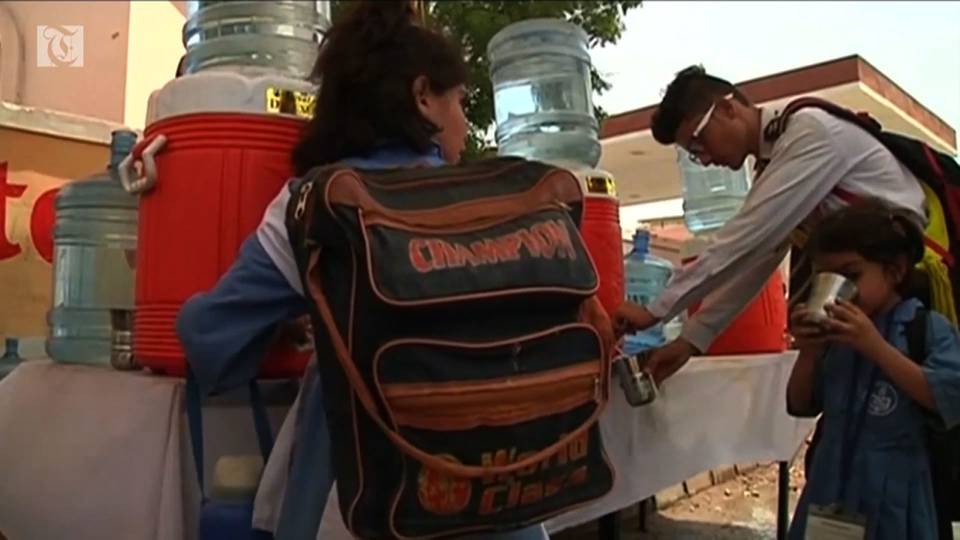
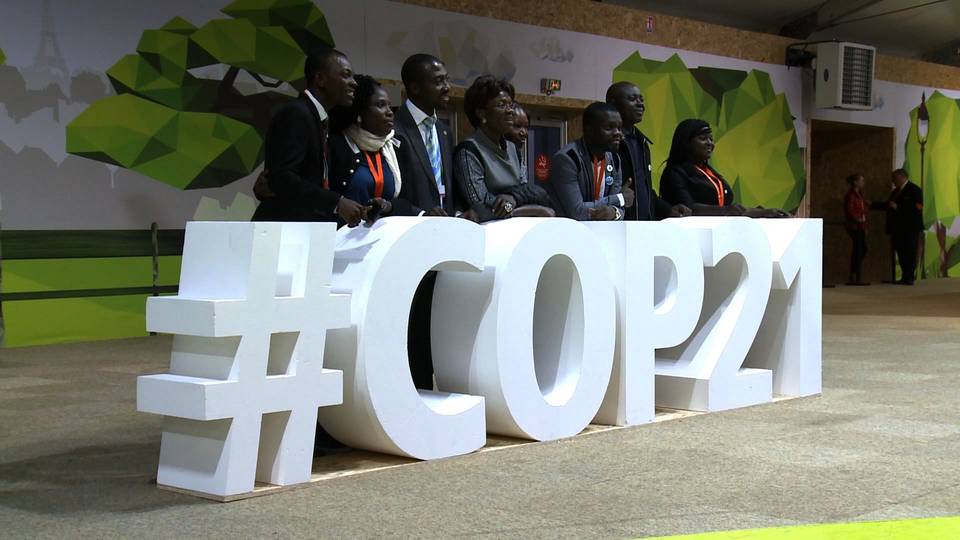
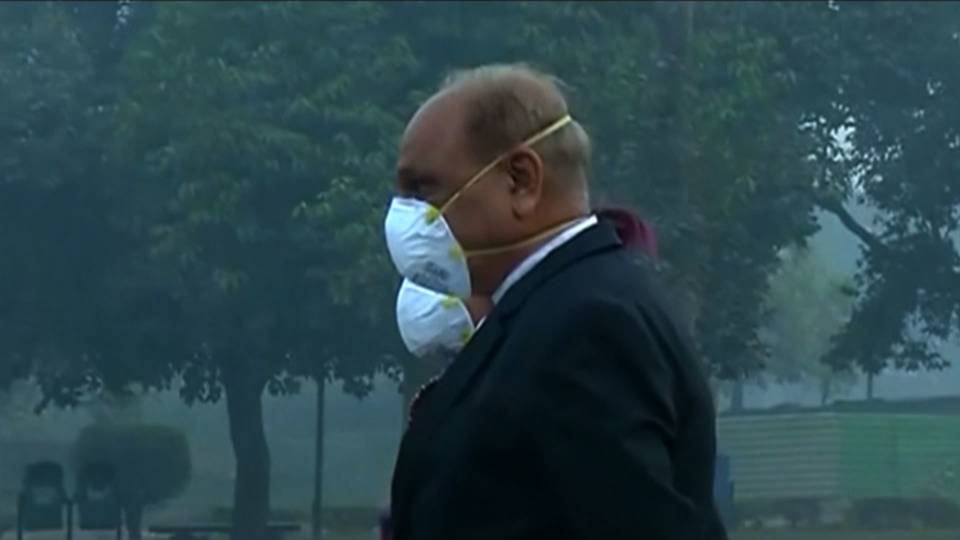
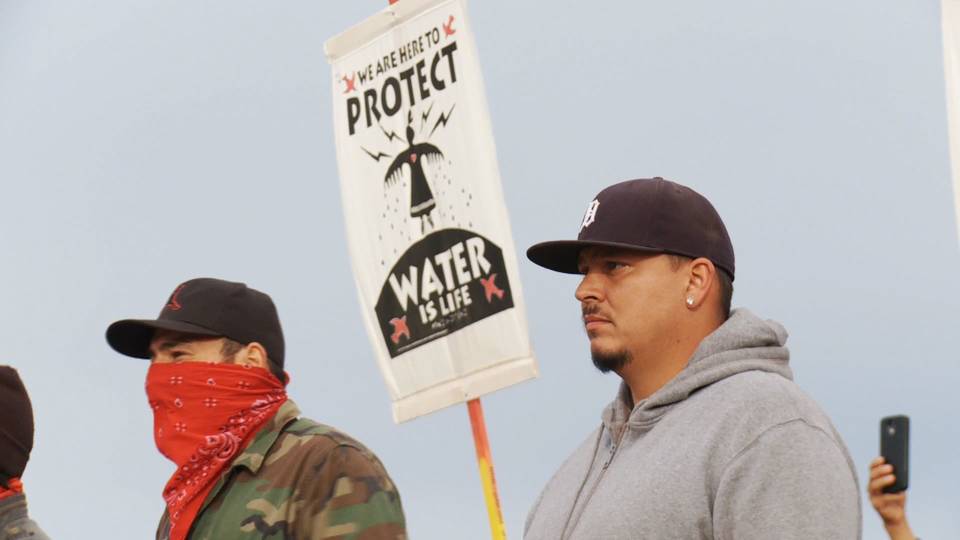
 -------
-------
Donate today:
Follow:



SPECIAL BROADCAST

WATCH: Election Night 2016 Coverage with Democracy Now!
NEW BOOK

Democracy Now!: Twenty Years Covering the Movements Changing America
DN! INTERNSHIPS

Apply today to be a Democracy Now! intern
-------
207 West 25th Street, 11th Floor
New York, New York 10001, United States
-------
-------Democracy Now! Daily Digest: A Daily Independent Global News Hour with Amy Goodman & Juan González for Thursday, November 10, 2016
democracynow.org
Stories:

Glenn Greenwald: Why Did Trump Win? Blame the Failed Policies of the Democratic Party
As President-elect Donald Trump heads to the White House to meet with President Obama today, many in the media establishment are wondering how data journalism’s predictions of this election were so wrong. As early as Tuesday morning, many media outlets, including The New York Times, were predicting Hillary Clinton had over an 80 percent chance of winning the presidency. Those predictions evaporated as soon as the poll numbers began rolling in Tuesday night. For more on the failures of data journalism and the Democratic Party, we speak with the Pulitzer Prize-winning journalist Glenn Greenwald, one of the founding editors of The Intercept. His most recent piece is headlined "Democrats, Trump, and the Ongoing, Dangerous Refusal to Learn the Lesson of Brexit."
TRANSCRIPT
This is a rush transcript. Copy may not be in its final form.
NERMEEN SHAIKH: Today, President-elect Donald Trump is heading to the White House to meet with President Obama, two days after his shocking victory. On Wednesday, Obama vowed to work with Trump to ensure a smooth handover of power.
PRESIDENT BARACK OBAMA: The peaceful transition of power is one of the hallmarks of our democracy. And over the next few months, we are going to show that to the world.
AMY GOODMAN: Meanwhile, Trump’s transition team has assembled a shortlist of who would make up Trump’s Cabinet. Former New York Mayor Rudolph Giuliani and New Jersey Governor Chris Christie are among those in consideration for attorney general. Christie is also being considered for homeland security secretary, as is Milwaukee Sheriff Dave Clarke. Secretary of the interior might go to former Alaska Governor Sarah Palin or oil executive Forrest Lucas. Former U.N. Ambassador John Bolton and former House Speaker Newt Gingrich are in the running for secretary of state. Donald Trump is also expected to quickly nominate a conservative Supreme Court justice to fill the seat left vacant by the death of Antonin Scalia.
To talk more about the election of Donald Trump, we’re joined by the Pulitzer Prize-winning journalist Glenn Greenwald, one of the founding editors of The Intercept. His most recent piece, "Democrats, Trump, and the Ongoing, Dangerous Refusal to Learn the Lesson of Brexit."
Glenn, it’s great to have you with us. Why don’t you start off by just sharing your response to what took place this week here in the United States, the election of Donald Trump and the defeat of Hillary Clinton?
GLENN GREENWALD: It’s obviously a shocking outcome, in particular because the not just polling data, but all of the self-proclaimed experts in data journalism, this new field of journalism that has arisen that claims to only view politics through an empirical lens rather than through the dirty ideologies or partisan biases that everybody else is burdened with, assured everybody that it was overwhelmingly likely that Clinton would win. Every model had her at 85 to 90 percent, and yet she lost and lost pretty resoundingly, at least on the level of the Electoral College. She obviously won the popular vote, but that’s not what matters. So, there’s a shock about the fact that all of our empirical models, all of the ways that we try and predict the future, have failed.
But then there’s an even greater shock over the fact that somebody who stands so far outside of the norms of our political traditions and ideologies is now the president-elect of the United States and in two months will be sitting behind that large desk in the Oval Office commanding a massive military—in fact, the most powerful and destructive military ever created in human history—as well as a gigantic nuclear arsenal that can destroy the world many times over, a vast spying machine that exists both on foreign soil but also domestically. And this huge apparatus of power that has been built up by both parties over the last 15 years is now in the hands of somebody who, by pretty much all metrics, is clearly an authoritarian without much regard for the constraints of Constitution or law.

Glenn Greenwald: Bernie Sanders Would Have Been a Stronger Candidate Against Donald Trump
On Wednesday, hours after Donald Trump won the presidency, Senator Bernie Sanders issued this statement on Trump’s election: "Donald Trump tapped into the anger of a declining middle class that is sick and tired of establishment economics, establishment politics and the establishment media. People are tired of working longer hours for lower wages, of seeing decent paying jobs go to China and other low-wage countries, of billionaires not paying any federal income taxes and of not being able to afford a college education for their kids—all while the very rich become much richer." In his statement, Senator Sanders also said he would work with Trump "to the degree that Mr. Trump is serious about pursuing policies that improve the lives of working families in this country." But he said that he would oppose Trump "to the degree that he pursues racist, sexist, xenophobic and anti-environment policies." For more, we’re joined by Glenn Greenwald, Pulitzer Prize-winning journalist and one of the founding editors of The Intercept.
TRANSCRIPT
This is a rush transcript. Copy may not be in its final form.
NERMEEN SHAIKH: Well, on Wednesday, Senator Bernie Sanders issued this statement on Trump’s election. "Donald Trump tapped into the anger of a declining middle class that is sick and tired of establishment economics, establishment politics and the establishment media. People are tired of working longer hours for lower wages, of seeing decent paying jobs go to China and other low-wage countries, of billionaires not paying any federal income taxes and of not being able to afford a college education for their kids—all while the very rich become much richer."
Senator Bernie Sanders, who opposed Hillary Clinton in the Democratic primary, went on to say, quote, "To the degree that Mr. Trump is serious about pursuing policies that improve the lives of working families in this country, I and other progressives are prepared to work with him. To the degree that he pursues racist, sexist, xenophobic and anti-environment policies, we will vigorously oppose him." That’s the statement from Bernie Sanders.
Glenn Greenwald, many have said that if Sanders had been the Democratic presidential candidate, then perhaps Trump would not have won the election.
GLENN GREENWALD: Right. So, that’s a counterfactual that none of us can know for certain. What I do know for certain and what I wrote about back in March or February, I believe, was the fact that all empirical evidence, which, remember, is what Democratic opinion-making elites and liberal pundits and data journalists tell us is the thing that should guide our thinking—all available empirical evidence showed that Bernie Sanders was a much more popular and a much stronger candidate than Hillary Clinton against every single Republican opponent, including Donald Trump. He was running many points ahead of Clinton on every poll, in terms of who he might run against versus her, in terms of approval rating, in terms of popularity.
Democrats insisted that we should ignore all of that empirical evidence, that it was unreliable, that once the general election campaign started, Republicans would depict Sanders as a communist, that he would have no chance, in contrast to Clinton, who has already been deeply vetted. We’ll never know for certain whether those arguments were true or not, but what I know for certain is two things. Number one, that the empirical evidence, weak or unreliable or incomplete as it might have been, all pointed to the fact that Hillary Clinton was highly likely to lose, and Bernie Sanders had a greater chance of winning. And, in fact, I wrote an article, back in the primaries, saying, with Donald Trump looming, can we really take the gamble, the huge gamble, of nominating a candidate who is as weak and unpopular as Hillary Clinton? But lost that argument, lost that debate. And as a result, Hillary Clinton was the nominee, and she lost to Donald Trump.
The other point that I think is really worth making is that Sanders—that statement from Senator Sanders is actually quite remarkable, because he isn’t coming out and saying everybody who voted for Donald Trump is a racist troglodyte. He’s not saying that everyone who voted for Donald Trump is a misogynist who hates women and cast their vote for that reason. He’s saying that there are a huge number of people who voted for Donald Trump, and not for Hillary Clinton, who have very valid grievances. And those grievances are grounded in a system of policies that both political parties have played an equal role in creating.
Look at what he is describing: jobs going overseas, industries being destroyed, Wall Street being protected. You can go back into the '80s, into the era of Reagan and trickle-down economics and the destruction of unions, to find the genesis of it. And then you look into the ’90s, with NAFTA and free trade mania and the liberation of Wall Street from all kinds of constraints, and into the 2000s, when in the post-2008 economic crisis the Obama administration prosecuted not a single Wall Street executive responsible for that crisis, while continuing to build the world's largest penal state, largely for poor people, people with no power. And it’s this inequality, this oppression of huge numbers of people in the name of globalism and free trade, that Bernie Sanders is describing in that statement as why Trump won.
And it’s the Democrats and the Republicans who played a huge part in constructing that system, and Hillary Clinton, probably above every other politician who could have run, is the symbol of safeguarding that system, of believing in it, of advocating for it and, most of all, of benefiting from it greatly. And so, you sent a Democratic nominee into the general election, in this climate, who could not have been more ill-suited to voice the kind of systemic critique that Donald Trump, being the con artist that he is, was able to voice and that Senator Sanders has spent his entire career trying to advocate for. And I think you see the contrast really well in terms of how Senator Sanders would have run against Trump in that statement that he just issued versus how most Democrats are reacting to this Trump victory.
AMY GOODMAN: And then you have the media part of this—right?—where you have the unending Trump TV, not the new Trump TV, but all the networks’ Trump TV, when it came to Donald Trump. They showed more footage of his empty podium, waiting for him to speak, than they ever played of the words of Bernie Sanders. So you had the endless platform for Donald Trump, but rarely did you have Bernie Sanders showing, in any way, the extent of the speeches that he gave. You’d have whole speeches of Donald Trump. But when it came to Bernie Sanders, that famous night, March 15th—that was, what, Super Tuesday 3—every single victor and loser that night, from Rubio to Kasich to Clinton to Cruz to Trump, all their speeches were played—except for Bernie Sanders, who was speaking to thousands and thousands and thousands of people that night in Arizona. This is just emblematic of the rest of the coverage. They never played a word that he said that night.
GLENN GREENWALD: Right, and I think there’s a lot to unpack there in terms of how the media functions and in terms of the media role in this election. So, let’s begin with the fact that Donald Trump’s public persona prior to this election was consecrated and constructed by one of the most powerful media organizations in the world, if not the most powerful media organization in the world, which is NBCNews, which—or NBC, rather, which for many, many years paraded Donald Trump in the format of a reality TV program, watched by tens of millions of Americans, that portrayed him as the embodiment of the entrepreneurial spirit. He marched into boardrooms, in charge, and unflinchingly fired people who weren’t working up to standard performance. He built new businesses. He was the embodiment of everything that Americans are taught to revere. And this is the person who, for decades, has been a racist, a demagogue, a con artist, and yet NBC turned him into this swaggering hero at great profit to itself.
And so, already, he was a byproduct of media worship. And then, once the campaign began, the media, as you said, nonstop fed on Donald Trump, to the exclusion, certainly, first and foremost, of Bernie Sanders, but even to the other candidates, who got far less TV time than Trump did, because he was a ratings gold mine. And they would literally wait on the tarmac and excitingly and breathlessly show his plane about to land. And this built up this image in Americans’ minds that Donald Trump was this all-consuming, towering new presence on the American political landscape. And the American media did a critical job in building him up during the primary and entrenching in the minds of Americans that he was not this out-of-the-norm, radical, extremist, dangerous, racist authoritarian that he was, but instead was this new and powerful figure who was going to come in, revolutionize American politics and the American political culture, that so many citizens of the United States have come to despise.
And I think that what you just contrasted, in terms of how Trump was treated and how Sanders was treated, shows a really important truth about how media operates, which is, if you talk to most journalists who work at major media outlets or newspapers, as you know, and you say to them, "You have all kinds of ways that you censor certain opinions, that you have of excluding certain viewpoints," they’ll insist that that’s not true, that they never are told what to show or not to show, they’re never told what to say or not to say. And, of course, that’s true. And yet, embedded within all of their editorial judgments about who is worth hearing from and who isn’t worth hearing from are all kinds of ideological and partisan biases. So the idea that Donald Trump, the billionaire, celebrity, TV star, should constantly be heard from, whereas Bernie Sanders, the old Jewish socialist from Vermont, who nobody took seriously, doesn’t need to be heard from, with all of his boring speeches about college debt and healthcare and the like, in that choice is a very strong and pedantic ideological choice that the American media embraced and played a huge role in enabling Trump to march to the primary.
Now, the only other point I want to add to this immediate issue is that I do think that media behavior changed fundamentally with regard to Donald Trump once he became the nominee. So, you have the primary period, where they treated him like a normal candidate. They revered him. They gave him endless free TV time. But once he became the nominee and they took seriously the prospect that he might be president and they started to realize and internalize the responsibility they bore for enabling him to get that far, I think they went all the way to the other extreme, where they completely united in this kind of mission of destroying Donald Trump, of preventing his victory and ensuring that Hillary Clinton was elected. And in a big way, that also played a role, unwittingly, I think, in helping Trump, because, of all the institutions in the United States, the institutions of authority that are hated, the American media leads the way. And so, when people saw the media basically trying to coerce them or dictate to them that they should turn their backs on Donald Trump, that they should vote for Hillary Clinton, I think a backlash ensued, where people believed that the media was being unfair, and were not going to you take marching orders from these media institutions, that they also have come to regard as fundamentally corrupt. And, unwittingly, I think that played an important role, as well, in ensuring that he could win.
NERMEEN SHAIKH: Well, there’s the leaked Clinton campaign memo to the Democratic National Committee from last year regarding Donald Trump and Ted Cruz and Ben Carson. The memo said, quote, "We need to be elevating the Pied Piper candidates so that they are the leaders of the pack and tell the press to [take] them seriously." Glenn Greenwald, your response to that?
GLENN GREENWALD: There are a lot of fascinating insights in those Clinton emails. I know Democratic partisans are furious that they ever saw the light of day, and they’re furious precisely because they contain a lot of really important and interesting insights about how political operatives manipulate the media, about how the media aids certain factions and tries to work against others, about how campaign operatives within the Democratic Party manipulate public opinion.
And one of the more interesting aspects is exactly that, the fact that the Clinton campaign did view certain Republican candidates, like Marco Rubio and Jeb Bush, as being serious threats to them and to Hillary Clinton’s election, and, in what they thought was a very clever maneuver, wanted to elevate the candidates that they thought were less threatening, such as Donald Trump, to the top of the pack. And in a lot of ways, they have reaped what they have sown, because Donald Trump did end up essentially becoming the nominee because of the media’s treatment of him, and, in retrospect, he probably was one of the more threatening candidates, because the Clintons know how to defeat conventional Orthodox Republican candidates like Jeb Bush or Marco Rubio. They can do that in their sleep. Donald Trump was a very unconventional candidate. I think he animated parts of the voting population who either haven’t voted in the past or who haven’t voted Republican to vote for him. And the strategies that the Clintons anticipated they would use, because they’ve always worked in the past, simply didn’t work this time. And you could conclude that, in some ways, they sort of outsmarted themselves.
AMY GOODMAN: We’re going to break, then come back to this discussion. And after we finish with Glenn, we’ll be joined by 350.org co-founder Bill McKibben on where the environmental movement goes here, with a president-elect who calls climate change a Chinese hoax and is calling, among other things, for permitting the Keystone XL pipeline. Glenn Greenwald is Pulitzer Prize-winning journalist, one of the founding editors of The Intercept. This is Democracy Now! Back with Glenn in a minute.
[break]

Bill McKibben: Trump's Presidency Comes When the Warming World Can Least Afford It
On the same day Donald Trump was elected, the World Meteorological Organization reported that the five years from 2011 to 2015 were the hottest on record, with hundreds of thousands of deaths likely due to global warming from human activity. The report found human-induced climate change was directly linked to extreme events, including an East African drought and famine in 2011 that claimed over a quarter-million lives, and "Superstorm" Sandy in the U.S. that caused $67 billion of damage in 2012. Delegates at the United Nations climate summit in Marrakech, Morocco, are expressing panic over Tuesday’s election results, saying President-elect Donald Trump may threaten the future of any international agreement to slow catastrophic climate change. Trump has said he will "cancel the Paris Climate Agreement and stop all payments of U.S. tax dollars to U.N. global warming programs." Trump has also promised to promote coal power and fracking, and says he will allow for oil and gas drilling on federal lands. He has also promised to ask TransCanada to renew its permit application for the Keystone XL pipeline. For more, we’re joined by Bill McKibben, co-founder of 350.org. He’s the author of several books, including "Eaarth: Making a Life on a Tough New Planet." His recent article for The New York Times is titled "Why Dakota is the New Keystone."
TRANSCRIPT
This is a rush transcript. Copy may not be in its final form.
NERMEEN SHAIKH: Delegates at the United Nations climate summit in Marrakech, Morocco, are expressing panic over Tuesday’s election results, saying President-elect Donald Trump may threaten the future of any international agreement to slow catastrophic climate change. Trump has said he will, quote, "cancel the Paris Climate Agreement and stop all payments of U.S. tax dollars to U.N. global warming programs," end-quote. Trump has also promised to promote coal power and fracking, and says he will allow for oil and gas drilling on federal lands. He has also promised to ask TransCanada to renew its permit application for the Keystone XL pipeline.
On the same day Trump was elected, the World Meteorological Organization reported that the five years from 2011 to 2015 were the hottest on record, with hundreds of thousands of deaths likely due to global warming from human activity. The report found human-induced climate change was directly linked to extreme events, including an East African drought and famine in 2011 that claimed over a quarter-million lives, and Superstorm Sandy in the U.S., that caused $67 billion of damage in 2012.
AMY GOODMAN: Joining us now, Bill McKibben, co-founder of 350.org, the author of a number of books, including Eaarth: Making a Life on a Tough New Planet, his recent article in The New York Times headlined "Why Dakota is the New Keystone." Tonight he’ll deliver the inaugural speech of the Jonathan Schell Memorial Lecture Series on the Fate of the Earth at The New School here in New York.
It’s great to have you with us, Bill.
BILL McKIBBEN: As always, Amy.
AMY GOODMAN: Your response to the election of Donald Trump?
BILL McKIBBEN: It’s been a very strange political year for me. I don’t generally engage that much in electoral politics, but, you know, Bernie asked me to introduce him the day that he announced for office. And I spent a lot of time out on the campaign trail.
AMY GOODMAN: Bernie asked you to introduce Bernie.
BILL McKIBBEN: Exactly, to introduce him the day he announced. And I got to spend a lot of time with him out on the campaign trail. And it was remarkable, because we were reminded of what an actual political crusader looks like, and we saw the enthusiasm with which he was met. And then he lost. And the Democratic Party elites, that Glenn was describing, kind of took over. And then they managed to lose to the person who is, in every possible way, the kind of opposite of Bernie. So, it’s a difficult moment for everybody. Everybody is obviously in a kind of—still in a—somewhat in a state of shock. But there are real lessons to be taken from it. And one of them is that people who engage with the public, people who tell stories, who understand the world in real terms, those are the people who are going to be successful, whether they’re good or they’re bad.
NERMEEN SHAIKH: Bill, you’ve also said that the damage from this election will be measured in geologic time.
BILL McKIBBEN: That’s right. The Trump presidency comes at a moment when we could least afford it. It’s not like we were winning the climate battle before, you know, but we were beginning to make at least a little progress. There was beginning to be the kind of ramp-up of renewable and clean energy in this country and around the world. The world managed a year ago at Paris to do something, anyway, for the first time, about climate change. Now we’re going to hit not a pothole, but a ditch in the road. And it’s not as if—I mean, the thing to remember about climate change is it’s not as if we can just pick up four years from now where we left off. Physics is our enemy, and it imposes a difficult time limit here. We don’t have any more presidential terms to waste. So we’re going to have to figure out, as a nation and, maybe more importantly, as a planet, how to work around Trump, to one degree or another.
AMY GOODMAN: So let’s go to Donald Trump, who appeared last year on The Hugh Hewitt Show and was asked about global warming.
HUGH HEWITT: Do you believe that the temperature of the Earth is increasing? And what would you do, if you do believe that, vis-à-vis global climate change?
DONALD TRUMP: Well, first of all, I’m not a believer in global warming. I’m not a believer in man-made global warming. It could be warming, and it’s going to start to cool at some point. And, you know, in the early—in the 1920s, people talked about global cooling. I don’t know if you know that or not. They thought the Earth was cooling. Now it’s global warming. And actually, we’ve had times where the weather wasn’t working out, so they changed it to "extreme weather," and they have all different names, you know, so that it fits the bill.
AMY GOODMAN: And in December, Donald Trump was asked a similar question by Bill O’Reilly.
BILL O’REILLY: Do you believe in global warming, climate change? Do you think the world’s going to change for the worse because it’s getting warmer?
DONALD TRUMP: I think that there’ll be little change here. It’ll go up, it’ll get a little cooler, it’ll get a little warmer, like it always has for millions of years. It’ll get cooler, it’ll get warmer. It’s called weather. I do believe in clean—and I’ve received—a lot of people don’t know this: I’ve received many environmental awards, many, many environmental awards, for the work I do. And I believe strongly in clean water and clean air. But I don’t believe that what they say—I think it’s a big scam for a lot of people to make a lot of money.
AMY GOODMAN: That’s Donald Trump saying that the whole issue of climate change, a big scam for a lot of people to make a lot of money. And he tweeted, "The concept of global warming was created by and for the Chinese in order to make U.S. manufacturing non-competitive." So, Bill McKibben?
BILL McKIBBEN: Well, what is there to say? I mean, he’s—he’s—
AMY GOODMAN: Well, there has to be a lot to say in these next four years.
BILL McKIBBEN: He’s as wrong on this as he is on so many other things. In this case, unlike some of the things on which he’s wrong, which are a matter of opinion that one can—whether immigrants are good for an economy—this one is a matter of just plain hard, physical fact. And so, it’s going to find him out. I mean, we’re going to continue to see the increase in disasters, that we’ve been dealing with already, during his four years. And it’s going to be incumbent upon the rest of us to make sure that those stories tell, that people understand what’s going on and they understand the reckless disregard of our administration.
AMY GOODMAN: And what does it matter if you have a climate denier in the White House? How do you deal with that?
BILL McKIBBEN: Well, it matters because every single decision that’s going to be made around energy and climate should be made, at this point, with a very firm weather eye on global warming, and none of them will be. We’re going to be in an era of unrestrained license for the fossil fuel industry. An industry that a week ago was back on it heels is now back in the saddle. And it’s going to take an immense amount of movement building and organizing to slow them down.
NERMEEN SHAIKH: Well, could you talk a little bit about the people who are advising Trump on climate-related issues, on the environment? There’s Myron Ebell, who’s running the EPA working group on Trump’s transition team, and he’s also, of course, a climate skeptic.
BILL McKIBBEN: He comes from the Competitive Enterprise Institute, and he’s made a career out of climate denial—and, I imagine, a successful career. And I imagine it will get only more successful.
What we know from investigative reporting in the last year is that there’s nothing new about this. I mean, Exxon knew everything there was to know about climate change 35 years ago, and helped build this web of climate denial. We’d almost begun to really bust through it in the last few years. We were even able to get President Obama, who in his first term did virtually nothing about this, to finally begin to take some steps. Now we’re back to ground zero in this battle. The only thing that’s still moving fast is the rate of carbon increase in the atmosphere and the temperature that it’s driving.
We’re going to have to take those stories and turn them into powerful organizing opportunities. And we can. I mean, the most remarkable story going on any place in America right now is the one that you’ve been documenting from Standing Rock in the Dakotas. It’s the absolute, all-time story of small versus big, of ancient depression and modern possibility of the people who have been most oppressed on this continent. But it’s a story that we couldn’t get Hillary Clinton to tell in the campaign. We couldn’t get her to say anything about what was going on in the Dakotas. That’s, as Glenn was saying earlier, part and parcel of the reason that she lost. And so, we need a new kind of—I don’t know whether it’s a Democratic Party or a new kind of opposition, that’s able to take those stories, those moments, and help people understand the actual contours in the world, not the fake contours that Donald Trump describes, to some effect.
AMY GOODMAN: So you just came back from Standing Rock. We’re talking about the $3.8 billion Dakota Access pipeline that would take fracked oil from the Bakken oilfields through North and South Dakota, go through Iowa, then to Illinois. Just recently, President Obama said the U.S. Army Corps of Engineers is considering rerouting the pipeline amidst the months of resistance from the Standing Rock Sioux Tribe and members of more than 200 indigenous nations across the Americas, as well as their non-Native allies. This is what he said.
PRESIDENT BARACK OBAMA: My view is that there is a way for us to accommodate sacred lands of Native Americans. And I think that right now the Army Corps is examining whether there are ways to reroute this pipeline in a way.
VERSHA SHARMA: So that’s a possibility, right?
PRESIDENT BARACK OBAMA: So—so, we’re going to let it play out for several more weeks and determine whether or not this can be resolved in a way that I think is properly attentive to the traditions of the first Americans.
AMY GOODMAN: So, that was an interview President Obama did with NowThis News. We don’t have much time. He said we’re going to let this play out for a few weeks. That was a few weeks ago.
BILL McKIBBEN: Yeah. Tuesday, November 15th, there will be demonstrations in more than a hundred American cities at Army Corps of Engineers offices, demanding that the president, on his way out, do the right thing here. Who knows whether the Corps denying a permit will stick in the new Trump administration? We don’t know. All we can control for the moment is what happens in the next little while. And it’s time for President Obama to do more than say, "We’ll let this play out." It’s time for him, while he’s still got some power, to exercise that power. If people go to NoDAPLDayOfAction.org, they can find out where those protests are taking place.
AMY GOODMAN: And now, Energy Transfer Partners, the company that owns the Dakota Access pipeline, says they are poised to bore under the Missouri River. It’s very unclear what this means, considering they don’t yet have a permit for it. You talk about it in The New York Times, a piece you just wrote, as the Keystone XL of our time, which also Donald Trump will be pushing for. But President Obama has not stopped this yet and seems to have the power to.
BILL McKIBBEN: He could, at least for 70 days, keep them from drilling under the Missouri River. And at the very least, that would be a powerful symbolic statement and one that people will rally around. There aren’t very many Americans, even in Trump’s America, who don’t understand the shamefulness of how we have treated the original inhabitants of this continent. This is the kind of issue that people have to get behind. They’re moral issues that define who we are.
AMY GOODMAN: Well, Bill McKibben, we are going to do Part 2 of our conversation after the show and post it online at democracynow.org. Congratulations on your address tonight at The New School.
BILL McKIBBEN: It will be good to be thinking of Jonathan Schell, who was a—one of America’s greatest writers and a person whose counsel would have been useful in the Trump era.

"Not My President": Tens of Thousands Take to Streets, Block Freeways & Rally Against Trump
"Not My President"—that was the chant at protests across the country Wednesday as tens of thousands of people took to the streets to protest the election of Donald Trump, who surged to victory over Hillary Clinton. In California, at least 13 people were arrested as hundreds blocked traffic on two major highways. Thousands more gathered at Los Angeles City Hall, waving Mexican flags and burning a giant effigy of Donald Trump. In nearby Santa Ana, police fired rubber bullets and pepper spray at hundreds of protesters after the crowds took over major intersections. In Oakland, police also deployed tear gas and flashbang grenades against crowds of thousands of protesters. In Seattle, thousands took to the streets for a protest called by Socialist Seattle City Councilwoman Kshama Sawant, while in Chicago thousands rallied outside Trump Tower. where at least five people were arrested. Protests were also held in Portland, Oregon; Miami, Florida; New Orleans, Louisiana; Richmond, Virginia; Austin, Texas; Boston and Philadelphia. Here in New York, as many as 10,000 people surged through streets and surrounded the barricaded-off Trump Tower, where Donald Trump lives. At least 65 people were arrested. Here are some of the voices from the protest in New York.
TRANSCRIPT
This is a rush transcript. Copy may not be in its final form.
NERMEEN SHAIKH: "Not My President." That was the chant at protests across the country Wednesday as tens of thousands of people took to the streets to protest the election of Donald Trump, who surged to victory over Hillary Clinton. In California, at least 13 people were arrested as hundreds blocked traffic on two major highways. Thousands more gathered at Los Angeles City Hall, waving Mexican flags and burning a giant effigy of Donald Trump. In nearby Santa Ana, police fired rubber bullets and pepper spray at hundreds of protesters after the crowds took over major intersections. In Oakland, police also deployed tear gas and flashbang grenades against crowds of thousands of protesters.
AMY GOODMAN: In Seattle, Washington, thousands took to the streets for a protest called by the Socialist Seattle City Councilmember Kshama Sawant, while in Chicago thousands rallied outside Trump Tower, where at least five people were arrested. Protests were also held in Portland, Oregon; Miami, Florida; New Orleans, Louisiana; Richmond, Virginia; and Austin, Texas; Boston and Philadelphia. Here in New York, as many as 10,000 people surged through the streets and surrounded the barricaded-off Trump Tower, where Donald Trump lives. At least 65 people were arrested. Here some of the voices from the protest in New York.
PROTESTERS: We reject the president-elect! We reject the president-elect!
NATASHA ELENA: I think it speaks to the disenfranchisement of the people that someone like him could be seen as offering anything to the masses. I mean, I think Hillary is no savior either. I think she has an imperialist track record. I think she’s a very dangerous candidate. But I think Donald Trump’s ability to mobilize perhaps latent racist thoughts is incredibly terrifying, and it’s urgent to be out here today.
PROTESTERS: Not my president!
PROTESTER 1: Even though we can’t really change anything and we have to accept what has happened, we want them to know that we’re [bleep], like it’s—this is awful. And even though we can’t change anything, it feels good to stand together with my brothers, my sisters, with people that share my beliefs, and let everyone know that we are not OK with this.
PROTESTER 2: He’s the epitome of a system that’s broken down into virtual reality, where we’re going on these false notions and premises, and nobody knows what’s real or why anymore. And it’s the painful underbelly that we need to wash away.
PROTESTERS: Donald Trump, go away! Racist, sexist, anti-gay! Donald Trump, go away! Racist, sexist, anti-gay!
PROTESTER 3: He is a racist. He is a sexist. He is a neo-Nazi. And he does not deserve to run our country.

"Genuinely Terrifying Prospect": Greenwald on Palin, Giuliani & Bolton Serving in Trump's Cabinet
As Trump heads to the White House, Trump’s transition team has assembled a shortlist of who could make up Trump’s Cabinet. Former New York Mayor Rudy Giuliani and New Jersey Governor Chris Christie are among those in consideration for attorney general. Christie is also being considered for homeland security secretary, as is Milwaukee Sheriff David Clarke. Secretary of the interior might go to former Alaska Governor Sarah Palin or oil executive Forrest Lucas. Former U.N. Ambassador John Bolton and former House Speaker Newt Gingrich are in the running for secretary of state. Donald Trump is also expected to quickly nominate a conservative Supreme Court justice to fill the seat left vacant by the death of Antonin Scalia.
TRANSCRIPT
This is a rush transcript. Copy may not be in its final form.
AMY GOODMAN: Can you talk about the names that are being now talked about as a possible Trump Cabinet, like former New York Mayor Rudolph Giuliani maybe as attorney general, or Governor Chris Christie, whose two top aides were just found guilty on all criminal counts around the Bridgegate scandal? Christie also possibly being considered for homeland security secretary, as is Milwaukee Sheriff David Clarke. Secretary of interior might go to former Alaska Governor Sarah Palin or oil executive Forrest Lucas. Former U.N. Ambassador John Bolton and former House Speaker Newt Gingrich in the running for secretary of state. When Ambassador Bolton was the U.S. ambassador to the United Nations, he famously talked about lopping off the top 10 stories of the United Nations. Glenn Greenwald, your thoughts?
GLENN GREENWALD: Amy, that question was some kind of form of torture that ought to be outlawed. I could barely withstand listening to that. You know, I think, honestly, my brain hasn’t yet processed all of that. I think most people’s brains haven’t. It’s still very—I remember last night, I was on Twitter, and I—someone linked to a tweet from Donald, which I clicked on. And in his biography, it now just says, very simply, "President-elect of the United States," with his huge picture and then "Donald J. Trump" underneath. And it was startling. It’s still very difficult to believe, very difficult to believe that Donald Trump is the president-elect of the United States and will actually be president of the United States in two months. I don’t think we’ve even begun to process or analyze the actual repercussions of that.
And then, when you go to this sort of second-order horror, it’s almost like a wicked nightmare, like the worst—like Sarah Palin as the secretary of interior, or Rudy Giuliani, who I’ve long regarded as probably the most authoritarian and borderline fascist mainstream figure in American political life, to be the attorney general in charge of the prosecutorial power and the FBI, or Chris Christie, a lifelong prosecutor, in charge of the mechanisms of homeland security, or John Bolton, one of the most sociopathic warmongers on the planet, in charge of anything—these are genuinely terrifying prospects. And so, no, I don’t have much intelligent to say about that, because I haven’t really started to even accept it yet.
I guess the one thing that I would say is that, to the extent that one can find any kind of silver lining in the election of somebody as horrifying as Donald Trump, it is that he will be—that this sort of extremism can galvanize a unified opposition that cuts across what had been impenetrable ideological and partisan lines to create a more potent opposition than has existed for a long time in this country, and that there will be a kind of clarifying moment about core political values, that we’ve allowed to be assaulted by the establishment wings of both parties, about the necessity of protecting those. And I am at least hopeful that there will be a kind of backlash that will be positive to the horrors that we’re about to endure, many of which are unimaginable.
AMY GOODMAN: And on foreign policy, with Donald Trump’s admiration of Vladimir Putin, Putin being one of the first, also Benjamin Netanyahu, to congratulate Donald Trump on his victory?
GLENN GREENWALD: I think foreign policy is the area where there’s the biggest question mark. The fact of the matter is that the primary critique of Donald Trump throughout the course of the campaign against the foreign policy of Hillary Clinton and Barack Obama was that they have used the military too much to engage in wars that were unnecessary, costing far too much money and sacrificing far too many lives, not, on occasion, he pointed out, just American citizens, but also the lives of innocent non-Americans. At the same time, he is advocating this explicit form of war criminality where he wants to reintroduce torture and carpet bombing and those sorts of things. And so, I think it’s a—
AMY GOODMAN: Expand Guantánamo.
GLENN GREENWALD: —a huge question mark. To expand Guantánamo and to essentially embrace all of the components of the war on terror. So, I think that it really remains to be seen. I think it probably will be the case that there will be moments when the D.C. elite will be demanding that we intervene militarily, where Hillary Clinton would have been tempted to do so and Donald Trump won’t. And maybe that’s, on balance, in a very isolated way, something that’s positive. But the idea of putting into someone like this’ hands the military of the United States and all of its might and the spying apparatuses, I think, is extremely alarming. And I guess we’ll have to see how that manifests.
AMY GOODMAN: Well, Glenn Greenwald, we want to thank you very much for being with us. Glenn Greenwald, Pulitzer Prize-winning journalist, one of the founding editors of The Intercept. We’ll link to your piece, "Democrats, Trump, and the Ongoing, Dangerous Refusal to Learn the Lesson of Brexit," as well as your other pieces. Thanks so much for joining us from Rio de Janeiro in Brazil.
This is Democracy Now! When we come back, we’ll talk about the president-elect, his positions on the environment, who he could choose in positions of power, and his own views on, for example, climate change, as he talks about it as a Chinese hoax. Stay with us.
[break]

Greenwald on "Democrats, Trump, and the Ongoing, Dangerous Refusal to Learn the Lesson of Brexit"
Early Wednesday morning, the shock of Donald Trump’s victory spread across the world, sending stock markets tumbling and media organizations scrambling to cover an outcome to the presidential election that most had predicted was impossible. But was a Trump victory really so hard to foresee? We speak with Pulitzer Prize-winning journalist Glenn Greenwald, whose recent piece is headlined "Democrats, Trump, and the Ongoing, Dangerous Refusal to Learn the Lesson of Brexit."
TRANSCRIPT
This is a rush transcript. Copy may not be in its final form.
AMY GOODMAN: This is Democracy Now!, democracynow.org, The War and Peace Report. I’m Amy Goodman, with Nermeen Shaikh. Our guest is Glenn Greenwald, who wrote the piece, "Democrats, Trump, and the Ongoing, Dangerous Refusal to Learn the Lesson of Brexit."
NERMEEN SHAIKH: Glenn Greenwald, in that piece, you write, quote, "that prevailing institutions of authority in the West, for decades, have relentlessly and with complete indifference stomped on the economic welfare and social security of hundreds of millions of people." You point also to the many analogies between Brexit, the decision by the British public to exit the European Union. So could you say a little about those analogies and how Trump fits into wider public sentiments, not just in the U.S., but also in Europe?
GLENN GREENWALD: It’s incredibly striking, but also very alarming, how similar the path of Brexit was to the election of Trump, because just like with the U.S. election, in the U.K. during the Brexit debate referendum, British elites, outside of this kind of circle of populist, right-wing Murdoch types, pretty much were unified across ideological and party lines. You had the Liberals and the Labour centrists and the sort of more establishment Conservatives united in opposition to Brexit. And they essentially stayed online all day on Twitter telling each other how smart they were and praising each other’s columns, saying that Brexit was this grave threat and this unique evil. And the opinion class that is considered respectable, meaning not the right-wing tabloids, essentially unified, just like the opinion-making elites in the U.S., outside of Sean Hannity and Fox News and Ann Coulter, that wing of Fox News and that right-wing circle, were unified, as well. You had leading neocon intellectuals and establishment Republicans and then the sort of establishment liberal pundits all in agreement that Trump was this grave evil, constantly praising each other and citing each other in this endless echo feedback chamber.
And so, the people who were supporting Brexit and the people who were supporting Trump weren’t really ever heard from; they were just talked about in very contemptuous tones. These were the troglodytes. These were the uneducated idiots. These were the people motivated by malice and racism and xenophobia. And so they were sort of looked at like zoo animals, like things that you dissect and condemn.
And because this opinion-making elite was so unified, it led so many people, in both cases, to believe that their victory was certain. Nobody thought, in the opinion-making elite classes, that Brexit would win, and the same is true of Trump.
And then, both before and after you had this result, what you saw is not any notion of accountability. Why are there so many people wanting to leave the EU? Why are there so many people supporting this person so far outside the norm? No accountability, no self-critique. Only a way to distract attention from their own responsibility by just spouting hatred and disgust for the people who are being insubordinate.
Headlines:
"Not My President": Tens of Thousands Nationwide Protest Trump's Election

Tens of thousands of people took to the streets across the United States Wednesday to protest the election of Donald Trump, who surged to victory over Hillary Clinton in Tuesday’s presidential election. In California, at least 13 people were arrested as hundreds blocked traffic on both the 101 and the 110 freeways. Thousands more gathered at Los Angeles City Hall, where some burned a giant effigy of Donald Trump. In nearby Santa Ana, California, police fired rubber bullets and pepper spray at hundreds of protesters after the crowds took over major intersections. In Oakland, police also deployed tear gas and flashbang grenades against crowds of thousands of protesters, who blocked traffic with their bodies and by lighting fires and burning Trump piñatas. In Seattle, thousands took to the streets for a protest called by Socialist Seattle City Councilwoman Kshama Sawant, while in Chicago thousands rallied outside Trump Tower, where at least five people were arrested. Protests were also held in Portland, Oregon; Miami, Florida; New Orleans, Louisiana; Richmond, Virginia; Pittsburgh, Pennsylvania; Austin, Texas; and outside the White House in Washington, D.C. In the Northeast, at least 4,000 people descended on the Boston Commons, more than 1,000 people rallied outside Philadelphia’s City Hall, and as many as 10,000 people surged through New York City’s streets and surrounded the barricaded-off Trump Tower, where Donald Trump lives. The crowd shouted "Not my president," while workers in uniform cheered on the marchers. At least 65 people were arrested. This is one of the protesters in New York City.
Natasha Elena: "I think it speaks to the disenfranchisement of the people that someone like him could be seen as offering anything to the masses. I mean, I think Hillary is no savior either. I think she has an imperialist track record. I think she’s a very dangerous candidate. But I think Donald Trump’s ability to mobilize perhaps latent racist thoughts is incredibly terrifying, and it’s urgent to be out here today."
Crowds also gathered for anti-Trump protests in Britain and the Philippines.
TOPICS:
Students Stage Anti-Trump Walkouts from Coast to Coast

Students across the country also staged walkouts Wednesday to protest Donald Trump’s election. In California, thousands of students poured out of high schools across the Bay Area. Hundreds of high school and college students also walked out of classes in Seattle; Phoenix; New York City; Portland, Oregon; Boulder, Colorado; Pittsburgh, Pennsylvania; and on the campuses of the University of Connecticut and the University of Texas.
TOPICS:
Clinton Concedes to Trump: "This is Painful & Will Be for a Long Time"

The protests come as Donald Trump heads to the White House today to meet with President Obama in the Oval Office. On Wednesday morning, Democratic presidential candidate Hillary Clinton gave a concession speech in the New Yorker Hotel’s Grand Ballroom in New York City, during which she called her defeat painful, but urged a peaceful transition of power. Clinton is leading the popular vote by hundreds of thousands of ballots, but she lost the electoral college.
Hillary Clinton: "I know how disappointed you feel, because I feel it, too. And so do tens of millions of Americans who invested their hopes and dreams in this effort. This is painful, and it will be for a long time. But I want you to remember this: Our campaign was never about one person or even one election. Donald Trump is going to be our president. We owe him an open mind and the chance to lead. Our constitutional democracy enshrines the peaceful transfer of power."
Exit Polls: Majority of White Female Voters Supported Donald Trump

Analyses of exit polls from Tuesday’s presidential election show voters nationwide were dramatically split by race. People of color voted overwhelmingly for Hillary Clinton, including 88 percent of all African-American voters. Fifty-eight percent of all white voters, in contrast, voted for Donald Trump. Support for Trump was more pronounced among white male voters, 63 percent of whom supported him. But white female voters also supported Donald Trump over Hillary Clinton by a 10-point margin, with 53 percent supporting Trump and only 43 percent supporting Hillary Clinton. This is Kenyan-American activist and writer Agunda Okeyo, speaking during a demonstration Wednesday outside the Trump International Hotel in New York City.
Agunda Okeyo: "I want to say something specific to my white women allies. Fifty-three percent of the people who voted for Donald Trump were white women. How did that happen? How did that happen? We need to come together as a multiracial group of people who recognize that white supremacy is the greatest disease in this country. All right?"
Exit polls show voters were also divided by age, with the majority of all voters age 18 to 44 voting for Hillary Clinton, and the majority of voters 45 and older voting for Donald Trump.
Trump Cabinet Shortlist: Christie, Giuliani, Sessions & Gingrich

As Donald Trump heads to the White House, Trump’s aides say he’s also beginning to assemble his Cabinet. New Jersey Governor Chris Christie is the head of Trump’s transition team. The New York Times is reporting that likely Cabinet members include former New York Mayor Rudolph Giuliani, Alabama Senator Jeff Sessions, former House Speaker Newt Gingrich and businessman Steven Mnuchin, who formerly worked for Goldman Sachs. Trump’s aides say he’s also preparing to nominate a Supreme Court justice.
TOPICS:
Private Prison Companies' & Military Contractors' Stocks Surge After Trump Wins

In financial news, global markets have rebounded after plummeting upon the news of Trump’s victory. Stocks of some companies surged, including the largest private prison contractor, Corrections Corporation of America—which recently changed its name to CoreCivic—whose shares are up 43 percent since Trump’s victory. GEO Group, another private prison contractor, is up 21 percent. The Intercept reports stocks also surged for many military contractors, including Raytheon, General Dynamics, Lockheed Martin and Boeing.
New Hampshire Senate Race: Maggie Hassan Beats Kelly Ayotte

In more results from Tuesday’s election, Democrat Maggie Hassan has beat out Republican Kelly Ayotte in the New Hampshire Senate race, one of the tightest and most closely watched races this year. The race cost $120 million, a staggering amount for the tiny state of New Hampshire. With Hassan’s victory, Democrats now have 48 senators to the Republicans’ 51. Louisiana’s Senate race has not yet been decided.
TOPICS:
Maine Votes for Ranked-Choice Voting, Opening Door for More 3rd-Party Candidates

Meanwhile, in Maine, voters approved a ballot measure that will transform the way voting occurs in the state and will open the door for more third-party candidates. The measure approves ranked-choice voting, which means people can vote for their choice of candidates in order. If their first-choice candidate does not win, their vote automatically defaults to their second-choice candidate, and so on. Maine becomes the first state in the nation to approve this style of voting, which will be used for both state and federal elections.
TOPICS:
Report: U.S.-Led Airstrikes Kill 20 Civilians North of Raqqa

The Syrian Observatory for Human Rights is reporting a U.S.-led airstrike about 25 miles north of Raqqa has killed at least 20 civilians and injured at least 32 more civilians. This comes as U.S. Central Command says 119 civilians have been killed since 2014 in U.S. airstrikes in Iraq and Syria.
Amnesty Calls on Iraqi Gov't to Probe Torture of Civilians by U.S.-Backed Forces

In more news from Iraq, Amnesty International is calling on the Iraqi government to investigate the execution and torture of civilians by the U.S.-backed Iraqi government forces near Mosul. This comes after an Amnesty investigation found evidence the Iraqi government forces had killed at least six villagers near Mosul "execution style." Amnesty has also accused militia members of engaging in torture: tying suspected civilians to cars and driving them through villages, beating people’s faces with cables and holding them in inside poultry cages in public.
TOPICS:
U.N. Launches Probe of U.S. Airstrike in Afghanistan That Killed 30

In Afghanistan, the United Nations has launched an investigation into a series of U.S. airstrikes that killed more than 30 civilians near the city of Kunduz one week ago. The U.N. Assistance Mission in Afghanistan says the majority of the victims were women and children.
TOPICS:
Expert: Army Corps Assessment of Dakota Access Pipeline was "Seriously Deficient"

And in North Dakota, a pipeline safety expert hired by the Standing Rock Sioux Tribe has concluded the U.S. Army Corps of Engineers’ environmental assessment of the $3.8 billion Dakota Access pipeline was "seriously deficient" and had underestimated the possibility of a pipeline spill into the Missouri River. Specialist Richard Kuprewicz concluded the pipeline should be rerouted away from an area that is prone to landslides. President Obama has indicated the U.S. Army Corps of Engineers is considering a plan to reroute the pipeline, and the U.S. Army Corps continues to withhold a permit necessary for the company to drill underneath the Missouri. But Energy Transfer Partners, the company behind the Dakota Access pipeline, says it’s currently mobilizing equipment to drill beneath Lake Oahe on the Missouri River, even though the U.S. Army Corps of Engineers has not yet granted the permit required to do so.
TOPICS:
Donate today:
Follow:




SPECIAL BROADCAST

WATCH: Election Night 2016 Coverage with Democracy Now!
NEW BOOK

Democracy Now!: Twenty Years Covering the Movements Changing America
DN! INTERNSHIPS

Apply today to be a Democracy Now! intern
-------
207 West 25th Street, 11th Floor
New York, New York 10001, United States
-------
Democracy Now! Daily Digest
: A Daily Independent Global News Hour with Amy Goodman & Juan González for Wednesday, November 9, 2016
democracynow.org
Stories

If Bernie Won Democratic Primary, Would We Now Be Looking at a Sanders Presidency?
On election night, Republican Donald Trump claimed victories in battleground states where Democrat Bernie Sanders’s campaign found enthusiastic support during the primary. We speak with The Intercept’s Lee Fang and Linda Sarsour, Muslim Democratic activist and former Bernie Sanders campaign surrogate, on the outcome of Tuesday’s election if Sanders had won the Democratic nomination.
TRANSCRIPT
This is a rush transcript. Copy may not be in its final form.
AMY GOODMAN: Donald Trump has been elected 45th president of the United States Tuesday, defeating Hillary Clinton in a stunning upset that reverberated around the world. Trump carried at least 279 Electoral College votes to Clinton’s 218, although Trump is losing in the popular vote. Around 2:50 a.m. Eastern time, Trump took to the stage in New York City at a victory party.
PRESIDENT-ELECT DONALD TRUMP: Working together, we will begin the urgent task of rebuilding our nation and renewing the American dream. I’ve spent my entire life in business, looking at the untapped potential in projects and in people all over the world. That is now what I want to do for our country. Tremendous potential. I’ve gotten to know our country so well. Tremendous potential. It’s going to be a beautiful thing. Every single American will have the opportunity to realize his or her fullest potential. The forgotten men and women of our country will be forgotten no longer.
We are going to fix our inner cities and rebuild our highways, bridges, tunnels, airports, schools, hospitals. We’re going to rebuild our infrastructure, which will become, by the way, second to none. And we will put millions of our people to work as we rebuild it.
We will also, finally, take care of our great veterans, who’ve been so loyal, and I’ve gotten to know so many over this 18-month journey. The time I’ve spent with them during this campaign has been among my greatest honors. Our veterans are incredible people.
We will embark upon a project of national growth and renewal. I will harness the creative talents of our people, and we will call upon the best and brightest to leverage their tremendous talent for the benefit of all. It’s going to happen.
We have a great economic plan. We will double our growth and have the strongest economy anywhere in the world. At the same time, we will get along with all other nations willing to get along with us, who will be. We’ll have great relationships. We expect to have great, great relationships.
No dream is too big. No challenge is too great. Nothing we want for our future is beyond our reach. America will no longer settle for anything less than the best. We must reclaim our country’s destiny and dream big and bold and daring. We have to do that. We’re going to dream of things for our country, and beautiful things and successful things once again.
I want to tell the world community that while we will always put America’s interests first, we will deal fairly with everyone, with everyone, all people and all other nations. We will seek common ground, not hostility; partnership, not conflict.
AMY GOODMAN: That was Donald Trump’s victory speech. It was about 10 to 3:00 Eastern time in the morning. You might have heard, within that speech, someone shouted "Kill Obama!" Earlier in the evening, as people were waiting, many of the chants were "Lock her up!" of course referring to Hillary Clinton, a chant that has become very common on the campaign trail for Donald Trump. In fact, Donald Trump himself said, if elected president, he would jail Hillary Clinton.
To talk more about Donald Trump’s victory, we’re joined by five guests.
John Nichols, political writer for The Nation, his new piece, "These Election Results Will Define America."
Linda Sarsour, director of the first Muslim online organizing platform, MPower Change, and co-founder of Muslim Democratic Club of New York.
Jose Antonio Vargas is a Pulitzer Prize-winning journalist and filmmaker, founder of and editor of #EmergingUS and founder of Define American. He famously came out of the shadows in 2011 in The New York Times Magazine with his story, "My Life as an Undocumented Immigrant."
Nikole Hannah-Jones is with us, award-winning reporter covering racial injustice at The New York Times Magazine.
And Lee Fang joins us, investigative journalist at The Intercept covering the intersection of money and politics.
Lee, I want to begin with you in San Francisco. You recently tweeted, "Bernie dramatically turned out rural voters, was wildly popular in states like MI that have utterly suffered under neoliberal policies." Talk about the significance of that in light of what took place in the early hours of today and yesterday, on Election Day.
LEE FANG: Amy, thank you so much for having me.
You know, I think if we look at the electorate, we look at—you know, if you talk to almost any reporter who’s traveled around the country, attended rallies for Bernie, for Hillary, for Trump, and talked to voters, I mean, we had incredible economic anxiety in this country. We’ve had the last six years of basic political stagnation; because of Republican obstruction in Congress, there haven’t been any big reforms. We haven’t seen—we haven’t seen action on prosecuting Wall Street. We haven’t—the folks who detonated the economic system in 2008 were never brought to justice. There is this lingering anger all across the country, as jobs have been shipped overseas, as we’ve seen the fortunes of the wealthy skyrocket while the ordinary incomes of regular Americans have stagnated or, in many places—in many places, are in decline. And there is this visceral demand that somebody, whether it’s a Republican or a Democrat, needs to stand up and fight for these voters, to stand up to Wall Street, to stand up to K Street, the lobbying apparatus that controls D.C. and controls the major parties.
It was tough to see Clinton, who embodies the political establishment, the business establishment in this country, as a credible change agent. Bernie Sanders’ message—you know, I’ve talked to voters all across the country, many first-time voters, first-time activists, who were inspired by his message. I mean, he was a candidate who spent the last three to four decades in political life fighting against neoliberal policies, leading the fight against NAFTA, leading the fight against the Trans-Pacific Partnership, demanding accountability for Wall Street. And on the other side, you had Clinton, who made tens of millions of dollars giving private speeches to banks like Morgan Stanley and Goldman Sachs, who assembled a gigantic political machine funded by the same interests that have drained the Midwest of jobs by shipping industrial facilities and those jobs overseas. So the contrast was incredibly sharp. And if you look at the turnout numbers, the polling in Michigan had Clinton up by 26 percent, I believe, in the week before the Michigan Democratic primary, but those polls were wrong, and Bernie won, I believe, by 5 percent, because his message, standing up to the elites, fighting for working-class voters, really resonated, especially in areas hardest hit in the economic changes we’ve seen over the last 20 years.
AMY GOODMAN: I mean, this is very interesting, Linda Sarsour, as a Bernie supporter yourself, because there was so much pressure from Clinton supporters not to take away from Hillary Clinton so that Donald Trump would, you know, take office, as he has. But in some ways, has this proven the opposite, that if Bernie Sanders were supported, that he had much more chance of defeating Donald Trump, considering who he drew from?
LINDA SARSOUR: Amy, honestly, like I don’t care what anyone says. If Bernie Sanders was the Democratic nominee, we would have won this election by far. Michigan, we were down 20 percent in the polls in the primaries, and Michigan gave Bernie Sanders the biggest political upset in U.S. history.
AMY GOODMAN: And he won the primary there.
LINDA SARSOUR: Yes, he did, in Michigan. Who gave him that win? It was Muslims in Dearborn. We looked at—we looked at Dearborn this time around for Hillary. I’m going to be honest with you. Hillary wasn’t helping me. I went around the country talking an anti-Trump message, because I couldn’t bring myself to support her and be as a surrogate like I was for Bernie Sanders. War hawk, warmonger—people were worrying about what she would do in Syria, looking at her foreign policy. The Democratic Party is the—
AMY GOODMAN: And you’re talking about Dearborn because it’s the largest Muslim Arab-American community in the United States.

How Do We Explain to Young People We Have a Sexist, Racist Islamophobe in the White House?
"We failed our young people. We failed generations to come," says Linda Sarsour in response to the upset victory of Donald Trump for president after he ran on a campaign to ban all Muslims from the United States. Sarsour is director of the first Muslim online organizing platform, MPower Change, and co-founder of the Muslim Democratic Club of New York.
TRANSCRIPT
This is a rush transcript. Copy may not be in its final form.
AMY GOODMAN: I want to go to Linda Sarsour, who started MPower, a well-known Muslim leader in New York and around the country. Yes, Donald Trump, to the end of his campaign, talked about banning Muslims. Your thoughts today?
LINDA SARSOUR: I’m going to be honest with you. I’m horrified. I’m absolutely beyond myself. I had a 12-year-old daughter sobbing at home. We failed our young people. We failed generations to come. I agree with Nikole: It’s a mirror up to our face as a nation, that this is who we are and who we have been. And anyone who has denied us that truth is why we are in the place that we are in right now. And we have a president right now who has access to executive orders. He has access to nuclear codes. He is going to appoint the next Supreme Court justice, which will live for generations after his presidency. I am appalled that I am sitting right now having to figure out how to explain to young people across this country, including my own children, why we have a sexist, misogynist, racist Islamaphobe in the White House. I’m just—I haven’t slept all night. I have no idea. I’m speechless.

Just Like After Reconstruction, Trump Vote Highlights White Backlash to Recent Racial Progress
If one studies history, this is not a surprising outcome," award-winning racial justice reporter Nikole Hannah-Jones says about Donald Trump’s election win. She points to the Reconstruction era that followed President Abraham Lincoln’s assassination, and Richard Nixon’s use of the "Southern Strategy" to appeal to racial fears of white voters after President Lyndon Baines Johnson passed key civil rights measures. "Whenever there are great strides towards racial progress in this country, there is a white backlash." She concludes, "There’s a lot of soul searching that needs to be done. But I also think this election is very American."
TRANSCRIPT
This is a rush transcript. Copy may not be in its final form.
AMY GOODMAN: Nikole Hannah-Jones, we are going from the first African-American president in the United States to a president supported by the Ku Klux Klan. Your thoughts?
NIKOLE HANNAH-JONES: Well, I think if one studies history, this is not a surprising outcome. I’ve been tweeting about this all morning. Look at what happens after the Civil War, after Lincoln’s assassination. You get Grant, and then you get Hayes. And Hayes basically returns the white South to power and ends Reconstruction. You look at Lyndon B. Johnson, who of course passes and helps pass the most expansive civil rights legislation since Reconstruction, and we replace him in this country with Richard Nixon, who runs on a Southern strategy that plays on the racial fears of white Southerners and white ethnics in the North, and they quickly roll back and decide that they are not going to enforce key civil rights legislation. And now we have the first black president, and he gets replaced with someone who has been endorsed by white supremacists, white nationalists and the KKK. So, I think while a lot of people are reeling, I think that this is probably a very unsurprising outcome, when you look at history. Whenever there are great strides towards racial progress in this country, there is a white backlash, and we’re in the middle of that.
And I think the media coverage that is trying to call this an issue of working class, without saying "white working class," when we know that black, Latino, brown working class did not vote for Donald Trump, is dishonest. I think also that we know that, at least from preliminary results, Trump won across the board with white voters, with educated white Americans, middle-class white Americans, that it was not just white folks who didn’t know any better. So I think there’s a lot of soul searching that needs to be done. But I also think that this election is very American.
AMY GOODMAN: What do you mean, American?

What Happens Now to the Millions of Immigrants Facing Possible Deportation Under Trump?
Donald Trump repeatedly attacked immigrants during his campaign for president. We get reaction to his victory from Jose Antonio Vargas, Pulitzer Prize-winning journalist and filmmaker. He famously came out of the shadows in 2011 in The New York Times Magazine with his story, "My Life as an Undocumented Immigrant." He is founder and editor of #EmergingUS, founder of Define American, and producer and director of two documentary films, "Documented" and "White People."
TRANSCRIPT
This is a rush transcript. Copy may not be in its final form.
AMY GOODMAN: And yet there is a right sweep in Europe, as well. You look, for example, at the Philippines. You look at Duterte, the president there, who’s known as the Philippine Trump, which brings me to Jose Antonio Vargas. You were a reporter for years. You were at The Washington Post. You then came out in a piece in The New York Times Magazine saying you were an undocumented immigrant, something that your employers didn’t know for many years. And now you have set up an organization to help people. Donald Trump started off by calling Mexicans rapists and criminals, and has promised, to this day, to build a wall with Mexico. Your thoughts today?
JOSE ANTONIO VARGAS: So that organization, by the way, is called DefineAmerican.com. And when you go there, you’ll find that it actually houses the largest collection of undocumented immigrant stories online. And I have to say, this morning I was looking at it and—because I’m getting all these texts and Facebook messages from undocumented young people who are all worried that DACA, which is the Deferred Action for Childhood Arrival executive action by the president, is going to get taken away by January. There’s about 750,000 young people who have temporary status right now, who are working, who are in school. And Donald Trump has said that he will take that away.
I wanted to add to what you said, because I think this is really important. In this country in the next 50 years, 88 percent of the total population growth are going to come from mostly Latinos and Asians. So a country that has barely dealt with the black-and-white issue—right?—is now getting more complicated with Latinos and Asians, Muslims and all of these, quote-unquote, "othered," right? I’ve been traveling, as you know, Amy, now for the past five years doing this work. I have done probably more than 800 events in 48 states and visited more than 300 schools. I made a documentary for MTV called White People. It aired, actually, just a month after Donald Trump announced his presidency. This is not surprising to me. To me, though, I have to say, it’s been infuriating just watching all these, quote-unquote, "experts" and pundits, who I think, by the way, should all lose their jobs, given the fact that they don’t know anything, didn’t know anything, when it comes to this. And we need real reporters now to do the real work in trying to figure out how we got to where we got. That’s the first point.
The second point is this: courage. I think it’s going to take a tremendous amount of courage for people of color, for Muslims, for immigrants, to get up this morning, to go to work, to look at their children and their relatives in the eye and tell them that it’s going to be OK. The first person that I called last night when this happened is my grandmother, who’s 79, who is a U.S. citizen, been here since 1984, who’s crying on the phone thinking that I’m going to get deported to the Philippines, where President Duterte is not necessarily going to be very nice to me, I don’t think, because I can’t be here anymore. Those are the conversations that are happening.
I would also have to say that, given all the travels and the conversations I’ve been doing, I think we are, and have been since the election of Barack Obama, in the middle of a civil war. It’s an internal civil war that is part civil war, part reconstruction. Right? Demographically, this country is no longer going to be white. The state of California alone, 51 percent of all Californians aged 25 and under is Latino. This country is only going to get gayer, blacker, browner, more Asian. Women—white women, black women, Muslim women—will break all barriers there is to break. What’s left is this question of how much change can straight, white men and white people handle. I think last night we saw that it’s not a lot.

From the First African-American President to One Supported by the Ku Klux Klan: Trump Wins in Upset
Donald J. Trump was elected 45th president of the United States on Tuesday, defeating Hillary Rodham Clinton in a stunning upset that reverberated around the world. Trump carried at least 279 Electoral College votes to Clinton’s 218, although Trump appears to have narrowly lost the popular vote. Donald Trump has never held elective office. He opened his campaign in 2015 with a speech calling Mexican immigrants criminals and rapists. Trump has proposed banning all Muslims from entering the United States. He openly mocked his opponents, reporters, Asians, African Americans and the disabled. More than a dozen women have accused Trump of sexual assault, and he was heard in a 2005 videotape boasting about sexually assaulting women. Throughout the campaign, Trump drew the enthusiastic support of white nationalists and hate groups. Former Ku Klux Klan Grand Wizard David Duke, who ran unsuccessfully for a U.S. Senate seat in Louisiana, cheered the outcome of the election. Duke tweeted, "This is one of the most exciting nights of my life -> make no mistake about it, our people have played a HUGE role in electing Trump! #MakeAmericaGreatAgain."
TRANSCRIPT
This is a rush transcript. Copy may not be in its final form.
AMY GOODMAN: Donald Trump has been elected the 45th president of the United States, defeating Hillary Clinton in a stunning upset that reverberated around the world. Trump carried at least 279 Electoral College votes to Clinton’s 218, although Trump appears to have narrowly lost the popular vote. As recently as yesterday, some pollsters were predicting Clinton had a 99 percent chance of winning the election, but that was before Trump pulled off victories in the key battleground states of Florida, Pennsylvania, Wisconsin, North Carolina and Ohio.
Donald Trump, who has never held elective office, opened his campaign in 2015 with a speech calling Mexican immigrants criminals and rapists. He has proposed banning all Muslims from entering the United States. He openly mocked his opponents, reporters, Asians, African Americans and the disabled. More than a dozen women have accused Trump of sexual assault, and he can be heard in a 2005 videotape boasting about sexually assaulting women. Throughout the campaign, Donald Trump drew the enthusiastic support of the Ku Klux Klan and other white nationalist and hate groups. Former KKK Grand Wizard David Duke, who ran unsuccessfully for a U.S. Senate seat in Louisiana, cheered the outcome of the election. Duke tweeted, "This is one of the most exciting nights of my life -> make no mistake about it, our people have played a HUGE role in electing Trump! #MAGA[Make America Great Again]," unquote.
Around 2:50 Eastern time this morning, Donald Trump took the stage at the New York Hilton Hotel victory party, saying he had received a phone call from Hillary Clinton congratulating him on the win.
PRESIDENT-ELECT DONALD TRUMP: I have just received a call from Secretary Clinton. She congratulated us—it’s about us—on our victory. And I congratulated her and her family on a very, very hard-fought campaign. I mean, she—she fought very hard. Hillary has worked very long and very hard over a long period of time, and we owe her a major debt of gratitude for her service to our country. I mean that very sincerely.
Now it’s time for America to bind the wounds of division, have to get together. To all Republicans and Democrats and independents across this nation, I say it is time for us to come together as one united people. It’s time. I pledge to every citizen of our land that I will be president for all Americans, and this is so important to me. For those who have chosen not to support me in the past, of which there were a few people, I am reaching out to you for your guidance and your help, so that we can work together and unify our great country.
As I’ve said from the beginning, ours was not a campaign, but rather an incredible and great movement made up of millions of hard-working men and women who love their country and want a better, brighter future for themselves and for their family. It’s a movement comprised of Americans from all races, religions, backgrounds and beliefs, who want and expect our government to serve the people.
And serve the people it will. Working together, we will begin the urgent task of rebuilding our nation and renewing the American dream. I’ve spent my entire life in business, looking at the untapped potential in projects and in people all over the world. That is now what I want to do for our country.

A Divided Nation: As Trump Wins Electoral College, Clinton Wins Popular Vote
John Nichols, political writer for The Nation, argues Donald Trump’s upset victory to win at least 270 Electoral College votes and become U.S. president is the result of an election process that does not reflect the popular will, as his rival Hillary Clinton appears set to win the popular vote. "America has a lousy, messed-up election system, and we count votes really slow," he notes. "What will turn out to be the reality … is that Hillary Clinton will actually beat Donald Trump by perhaps the largest margin that any loser beat a winner by in the popular vote. It will grow quite a bit." Nichols notes President Obama’s popular vote tally grew from 225,000 on election night to 5 million, and says he expects mass protests. His new article is titled "These Election Results Will Define America."
TRANSCRIPT
This is a rush transcript. Copy may not be in its final form.
AMY GOODMAN: This is Democracy Now!, democracynow.org, The War and Peace Report. I’m Amy Goodman. Yes, Donald Trump has been elected the 45th president of the United States, defeating Hillary Clinton in a stunning upset that reverberated around the world. Trump carried at least 279 Electoral College votes to Clinton’s 218, although Trump appears to have narrowly lost the popular vote.
To talk more about Donald Trump’s triumph, we’re joined now by a number of guests.
John Nichols is with us, political writer for The Nation. His new article, "These Election Results Will Define America."
Linda Sarsour is joining us, director of the first Muslim online organizing platform, MPower Change, co-founder of Muslim Democratic Club of New York.
Jose Antonio Vargas is a Pulitzer Prize-winning journalist and filmmaker. He’s the founder and editor of #EmergingUS and founder of Define American. He famously came out of the shadows in 2011 in The New York Times Magazine with his story, "My Life as an Undocumented Immigrant."
Nikole Hannah-Jones is with us, award-winning reporter covering racial injustice at The New York Times Magazine.
And joining us on the phone, longtime investigative journalist Wayne Barrett, who’s been reporting on Donald Trump for decades. His 1991 biography of Donald Trump was just republished in paperback with the title Trump: The Greatest Show on Earth: The Deals, the Downfall, the Reinvention.
John Nichols, let’s begin with you.
JOHN NICHOLS: Well, let me offer a minor corrective to one of the things you said. You said that Hillary Clinton is narrowly ahead in the popular vote. America has a lousy, messed-up election system, and we count votes really slow. What will turn out to be the reality, because at least a third of the California vote is still uncounted—it looks to be, when I look at those numbers—is that Hillary Clinton will actually beat Donald Trump by perhaps the largest margin that any loser beat a winner by in the popular vote. It will grow quite a bit. And I followed this in 2012. Barack Obama’s win grew from the night of victory from 225,000 to 5 million. And so, what we have in our country today is a reality that we have a new president, who in most countries in the world would not be president, because in most countries in the world the person who wins the popular vote becomes president. We should begin with that, not to comfort ourselves overly much, but to recognize that we have had a result that is a product of an election system that is a mess and that was designed a very long time ago to produce results that didn’t necessarily reflect the popular will. For those of us who are unsettled by Donald Trump’s election, that’s an important beginning point.

"It Might Not Be Good for America, But It's Good for Us": How the Media Got Rich on Trump's Rise
Earlier this year, CBS CEO Leslie Moonves openly bragged that the network is getting rich off Donald Trump’s run for the White House. "It may not be good for America, but it’s damn good for CBS. … [T]he money’s rolling in … [T]his is going to be a very good year for us." Moonves went on to say, "It’s a terrible thing to say, but bring it on, Donald. Go ahead. Keep going." We look at the media’s role in propping up Donald Trump over the past 18 months with three journalists: Lee Fang, John Nichols and Jose Antonio Vargas.
TRANSCRIPT
This is a rush transcript. Copy may not be in its final form.
AMY GOODMAN: I want to talk more about the media’s role in helping Donald Trump win this stunning upset victory. I want to turn to CBS CEO Les Moonves in a comment that has since gotten a lot of attention. He was speaking at a Morgan Stanley-hosted conference in San Francisco earlier this year.
LESLIE MOONVES: Who would have thought that this circus would come to town? But, you know, it may not be good for America, but it’s damn good for CBS. That’s all I’ve got to say. So, what can I say? It’s—you know, the money’s rolling in, and this is—
UNIDENTIFIED: Polls are open.
LESLIE MOONVES: This is—this is something. I’ve never seen anything like this. And, you know, this is going to be a very good year for us. But—sorry, it’s a terrible thing to say, but bring it on, Donald. Go ahead. Keep going.
AMY GOODMAN: "It may not be good for America, but it’s damn good for CBS. ... [B]ring it on, Donald." Those are the words of Les Moonves, CEO of CBS. Lee Fang, you first published this audio of Les Moonves on The Intercept in February. Also, last month, CNN President Jeff Zucker said, quote, "If we made a mistake, [it was] we shouldn’t have put on as many [Trump] rallies as we did." Your comment, Lee?
LEE FANG: Well, look, you know, we’ve been looking at these investor reports from media companies for the last two years, and, you know, it’s not just Les Moonves. The owners of local broadcast stations have been bragging that they’re excited for this election year, because all the sleaze, all the super PAC ads, they benefit a very small clique of media owners.
And if you look at just the larger role of broadcast media, I think there was a study done that if you look at the large media networks—ABC, CBS, NBC—they provided 350 minutes of airtime to Donald Trump in 2015 and less than one minute on ABCNews on coverage to Bernie Sanders. Just across the board, whether it’s local TV or cable news, they treated this entire election season as a carnival, as a chance for tabloid politics. Rather than talking about the vital issues or the political biographies and the policy issues, they take whatever Donald Trump has tweeted, whatever insult he hurled, and treat it as a serious news story. And then—and rather than paying for reporters to go out and report the truth and talk to voters or to do investigative reporting, they have pundits, many of them compromised—many of the pundits that we’ve seen go on on television were quietly or secretly working for one of the campaigns—but then they have pundits go on TV and yell at each other and turn this into a food fight, rather than a substantive, thoughtful discussion of the issues.
AMY GOODMAN: I—
LEE FANG: So, you know, I—go ahead.
AMY GOODMAN: I just wanted to bring John Nichols into this discussion around the media, and Jose Antonio Vargas. But, I mean, the Koch brothers, who didn’t support Donald Trump, said they ended up pouring their millions, more than a billion dollars, into down-ballot races, whether we’re talking governor, Senate, House, and that just filled the coffers of the local medias.
JOHN NICHOLS: Yeah, I mean, about five years ago, Bob McChesney and I wrote a book called Dollarocracy, and what we argued there—and in the book we wrote more recently, People Get Ready, same basic concept—that major media in this country has hit its biggest crisis in history. Its crisis is that advertising revenue now moves toward the phone. It doesn’t have to go through. They still get advertising revenue, but they are now dramatically more reliant on political advertising, on campaign ads, which are targeted toward older people, who tend to still watch television. As this has happened, they have cut their reporting staffs. They have reduced—we actually documented there are television stations that have cut into the local newscast, which is the most watched news, cut into it to fit more campaign ads around it.
And so, understand the circumstance that we have created. It’s not a complicated thing. We have created a circumstance in America where news, where actual reporting, as flawed as it may be, on our politics is diminished—there’s less of it, it’s not done well. And at the same time, we have a massive inflow of money in these campaign ads. We have dialed down journalism; we have dialed up campaign cash. Now, in this year—and this is the critical element of it—we saw cable news, which was sort of—it was out there hopefully to kind of provide more depth, to go deeper into these issue—we saw cable news cede any responsibility. They did hour-long infomercials, running the speeches for a whole hour. And then you came on with, instead of Lee or Antonio, anybody on this panel coming in, they had—they had surrogates for the campaigns do mini debates in which those surrogates had a responsibility not to acknowledge the truth. Their responsibility was to say, "My candidate just did a great job," even if your candidate fell off the stage.
AMY GOODMAN: They spent more time showing the empty podium, waiting for Donald Trump, than they played anything to do with Bernie Sanders.
JOHN NICHOLS: Well, and if I—if I can just finish the one thing that—coming off what Lee said. And, you know, Lee, actually, he said it was 340 to one. It was actually only 240 to one on ABC. But the fact of the matter is, at the end of 2015, Bernie Sanders and Donald Trump were polling at roughly the same place, and yet Donald Trump was getting, on one major television network, a 240-to-one ratio more coverage. This defines reality.
AMY GOODMAN: Jose Antonio Vargas?
JOSE ANTONIO VARGAS: And, to me, the elitism—right?—and the kind of the insularity of this Politico set, of this Acela Express from D.C. and New York, must absolutely be broken. It’s useless, utterly, utterly, utterly useless. I actually think today I’m probably going to—I’m going to unsubscribe from Politico. They said today that we know nothing. Well, thank you for admitting that. And I’m the kind of guy that used to like to get my stuff on Politico. So now I’m unsubscribing myself and saying I don’t need to be a part of this.
Your point, by the way, about the inability of journalists to cover about race—I mean, I’ve been a journalist since the late '90s. There are less people of color working in American newsrooms now than there was when I started in journalism in the late 1990s. Right? For a lot of—I mean, a lot—journalists are human beings, too. And guess what. We don't like talking about race. White journalists, who are mostly in charge of newsrooms across this country, do not like talking about race. And so, they throw little things like the working class and not contextualize that more. Right?
To me, I have to say, as an undocumented immigrant who happens to be a journalist, you know, reporting is like my religion. It’s been infuriating seeing the media talk about immigration in such factless, lacked of context, just irresponsible way. The moment Donald Trump talked about Mexicans as rapists—right?—why didn’t anybody just say the fact that there are actually less people going to Mexico and more Americans going—less people from Mexico going to the United States than Americans going to Mexico? Why hasn’t anybody said that the fastest-growing undocumented population in this country are actually Asian people, not Latinos? Why don’t we ever talk about undocumented white people and undocumented black people? Why haven’t we talked about the fact that undocumented workers, according to the Social Security Administration, have paid $100 billion into the Social Security fund?
LINDA SARSOUR: And Donald Trump has paid no tax.
NIKOLE HANNAH-JONES: That they cannot draw back now.
JOSE ANTONIO VARGAS: No, we cannot get back.
JOHN NICHOLS: Yeah, yeah, yeah.
NIKOLE HANNAH-JONES: That they will never see, that’s right.
JOSE ANTONIO VARGAS: Why isn’t any of this part of the report when this issue comes up? They are not at all parts of the report. You know where you’re going to go to find it? DefineAmerican.com/factsmatter. That’s where you go. And it’s irresponsible that this has happened.
LINDA SARSOUR: Amy, can I just add something really quickly?
AMY GOODMAN: Linda Sarsour?
LINDA SARSOUR: Yeah, to the point, and Nikole brought up this point. Yeah, of course, race is not the only factor in this, but let’s remember that during this race it was not just about economic security, it was about national security. And we played on the fears of the American people about being protected from terrorism. We had over two-thirds of Americans who supported a ban on Muslims, which is unconstitutional, proposals about registering the Muslims. Let’s be real here. We were playing on people’s fears of Muslims in this country. And until everyone got outraged, it was when a white woman—we saw a video or heard a recording of Donald Trump speaking in inappropriate fashion or promoting sexual assault to a white woman, and everybody went up in arms. Even the Republican Party was like, "Not our daughters, not our mothers." But no one said anything when Mexicans were rapists, when we called black people thugs. Black people were getting beat up in rallies. And we want to ban the Muslims, register the Muslims, surveil the mosques, patrol the mosques. Like, this national security was a big factor in this race, and they played on the fear of the American people when it comes to the U.S. national security.
JOHN NICHOLS: And why weren’t we saying, I mean, this simple thing?
AMY GOODMAN: John Nichols?
JOHN NICHOLS: Why weren’t we saying that the first mosque in America was in North Dakota, in a small town, in a rural area. The fact of the matter—
AMY GOODMAN: You come from rural Wisconsin.
JOHN NICHOLS: I come from very rural—
LINDA SARSOUR: But the first—
JOHN NICHOLS: No, but what—we didn’t speak—we didn’t—as a media and a media system in this country, we didn’t even try to clarify basic history, not of the moment, but the basic history of this country. And what happened to Muslim Americans is a big, big deal in this campaign—not a massive population, but yet a population so demonized and—
AMY GOODMAN: It is actually a massive population.
JOHN NICHOLS: Well, it’s millions, yeah.
AMY GOODMAN: How large is the Arab-American Muslim population?
LINDA SARSOUR: We’re at least 5 million. But the thing that wasn’t clarified—
AMY GOODMAN: Here?
LINDA SARSOUR: Yeah, of course. It’s one-third of Muslims are African-American.
NIKOLE HANNAH-JONES: I was going to say.
JOHN NICHOLS: Absolutely, yeah.
LINDA SARSOUR: That’s number—that’s number one. And, yes, there may have been a first infrastructure in North Dakota, but there were Muslims who came, enslaved people, on slave ships before—
NIKOLE HANNAH-JONES: Yes.
JOHN NICHOLS: Without a doubt, yeah.
LINDA SARSOUR: —before this country was even called the United States, though the media has played a role in making Islam a foreign entity.
JOSE ANTONIO VARGAS: Yeah.
JOHN NICHOLS: Yes.

In Victory for Immigrants' Rights Activists, Sheriff Joe Arpaio Loses Re-election in Arizona
In other campaign news from Arizona, Maricopa County Sheriff Joe Arpaio lost his bid for a seventh term. Arpaio faces the possibility of jail time, after federal prosecutors announced they are charging him with criminal contempt of court over his refusal to end unconstitutional immigration patrols in Arizona. Arpaio was a major supporter of Donald Trump. His policies have included racial profiling and detaining immigrants in a scorching outdoor tent city jail, which Arpaio once referred to as his own "concentration camp." We go to Phoenix, where we are joined by Marisa Franco, director of Mijente, which helped organize the Wall Off Trump protest at the RNC last July.
TRANSCRIPT
This is a rush transcript. Copy may not be in its final form.
AMY GOODMAN: In other campaign news from Arizona, Maricopa County Sheriff Joe Arpaio lost his bid for a seventh term. Arpaio faces the possibility of jail time himself, after federal prosecutors announced they’re charging him with criminal contempt of court over his refusal to end unconstitutional immigration patrols in Arizona. Arpaio was a major supporter of Donald Trump. His policies have included racial profiling, detaining immigrants in a scorching outdoor tent city jail, which Arpaio once referred to as his own "concentration camp."
We’re going now to Phoenix, where we’re joined by Marisa Franco. She’s the director of Mijente, which helped organize the Wall Off Trump protest at the Republican National Convention last July.
Welcome to Democracy Now! Marisa, can you talk about your overall response to the reaction? I mean, Donald Trump, you know, came into the consciousness of this whole country when he went down that escalator and made his announcement that he was running for president, and talked about Mexicans as rapists and criminals, and, of course, has made his mark by saying that he will build a wall on the Mexican-U.S. border and make Mexico pay for it.
MARISA FRANCO: You know, like so many across the country, Amy, we’re shocked. We’re utterly shocked at the results of this election. And waking up this morning, I couldn’t help but feeling like we woke up to a big, big red state in this country. And I think it leaves us with a lot to evaluate, many lessons to learn. I think that this is obviously a very different political moment, and what it requires from us is to be different political actors.
With that said, calling in and being based in Arizona and being from Arizona, some of us have already been living in red states. Some of us have already been living in Trump’s America. And I think that there’s a lot of things that people who have been living these experiences and living in these places can share and teach in this moment. I do think there is a way forward. As depressing and as shocked as we are, there are some of us who have been struggling in this reality, and this is now the reality in the country.
AMY GOODMAN: And can you talk about the defeat of Sheriff Arpaio? How long has he been in office?
MARISA FRANCO: He’s been in office for 23 years. And I’m happy to report that it was the very people that the sheriff denigrated and abused that led the effort to kick him out of office after 23 years. This is a—this is an effort that’s built on years of community organizing and direct action, that led to the sheriff’s legal problems. It was powered by a generation of organizers politicized after SB 1070. And it’s just been an amazing effort. We were obviously very excited to see the sheriff’s defeat. And, you know, we’re really holding the moment last night of feeling like, you know, this nightmare is over, but witnessing what was happening around the rest of the country, and equally shocked and horrified.
AMY GOODMAN: Well, let me ask, as we wrap up—we’re doing a two-hour special today, and people can see the other hour at democracynow.org, if your station isn’t running it directly right now. But the role of movements, not something that the media is very good at covering, grassroots movements? Because there is a force more powerful than even the most powerful person in the United States, perhaps even the world, and that is something that all of you have been involved with one way or the other. Let me start with Linda.
LINDA SARSOUR: I mean, one of the things that makes me horrified about a Trump administration is the continued use of codewords like "law and order." And we know what that means. That means cracking down on political activists and political movements in this country, the fact that we have Rudy Giuliani who’s at the helm of being the next attorney general. So, we—this election is a response to us, Black Lives Matter, immigrant rights activists, DREAMers. Like, this is a response to us.
AMY GOODMAN: Black Lives Matter—didn’t Donald Trump say—didn’t his forces say that—Rudy Giuliani say, that they would be the first group investigated as terrorists in a Trump administration?
LINDA SARSOUR: That’s right.
AMY GOODMAN: The significance of this, Nikole Hannah-Jones?
NIKOLE HANNAH-JONES: I mean, I think that we have some very frightening times ahead of us. We know the role that the federal government has played in breaking up organizations that have been fighting for civil rights. We have a long, torrid history of that. And typically it’s not so blatantly stated. So, I think we should believe what Donald Trump has said. And I think that we already know the government has been spying on these organizations. And I think we’re going to see a lot more efforts—
AMY GOODMAN: That’s under President Obama.
LINDA SARSOUR: Exactly.
NIKOLE HANNAH-JONES: Yes, absolutely. So, I think that that should tell us something.
LINDA SARSOUR: My organization, too, under the NYPD.
AMY GOODMAN: Your organization—
LINDA SARSOUR: Here in New York City. We were in the AP reports that came out in 2011.
AMY GOODMAN: Being investigated by the FBI.
LINDA SARSOUR: Yeah, under unwarranted surveillance and secret documents.
AMY GOODMAN: Under President Obama. Jose Antonio Vargas?
JOSE ANTONIO VARGAS: I mean, one of my biggest worries here right now is what—the state of undocumented immigrants in this country, right? Kind of the mental trauma that is happening right now, as just mentioned a few minutes ago. Seven hundred and fifty thousand people is a lot of people. Right? And now the government has their names, their addresses—
AMY GOODMAN: And these are the people who—
JOSE ANTONIO VARGAS: These are the young people who were brought here as children—right?—who are now working in parts of our own communities. And the government has all of their information. So what happens when Donald Trump is president on day one?
AMY GOODMAN: Because it came out through a kind of executive order, executive action.
JOSE ANTONIO VARGAS: That he has said that he would take back.
AMY GOODMAN: Last words, John Nichols?
JOHN NICHOLS: Look, there are moral duties here. And we are talking about people who have been targeted. Let us be very, very clear. This administration will attack the trade union movement in this country. This organization—this administration will attack organizations with substantial numbers of white men in. And the fact of the matter is, our response to this ought to be massive. It ought to be in the streets. But it also ought to hold the Democratic Party to account. They have a filibuster power in the Senate. We have two Senate seats still unsettled.
AMY GOODMAN: Five seconds.
JOHN NICHOLS: And the simple reality is that that "no" must resonate in the streets and in Washington.

Lee Fang: Donald Trump Recruits Corporate Lobbyists to Select His Future Administration
Donald Trump may have run as an economic populist, but journalist Lee Fang examines how he has surrounded himself by corporate lobbyists. Fang reports ... Read More →

Trump Biographer Wayne Barrett on Donald Trump's Shocking Rise to the White House
We speak about the man who is now America’s president-elect with Wayne Barrett, who writes for the New York Daily News and The Daily Beast and has reported on Donald Trump since the 1970s. His 1991 biography of Donald Trump was just republished in paperback with the title of "Trump: The Greatest Show on Earth: The Deals, the Downfall, the Reinvention." He recently wrote a piece for The Daily Beast titled "Meet Donald Trump’s Top FBI Fanboy."
TRANSCRIPT
This is a rush transcript. Copy may not be in its final form.
AMY GOODMAN: We’re going to turn right now to Wayne Barrett, who writes for the New York Daily News and The Daily Beast. His 1991 biography of Donald Trump was just republished; it’s called Trump: The Greatest Show on Earth: The Deals, the Downfall, the Reinvention. And he just wrote a piece for The Daily Beast headlined "Meet Donald Trump’s Top FBI Fanboy."
Can you explain, Wayne?
WAYNE BARRETT: Yeah, well, I mean, I certainly agree with part of what Allan just said, and disagree with other parts of it. The piece lays out the case that there’s a fifth column in the FBI. I don’t know if you want to sweepingly condemn the FBI as an institution. I certainly—you know, I actually may be one of the liberals he described, because I was invited to Quantico, spent two days there speaking to every public corruption agent in the United States. And I was not on a panel; it was just me. And I’ve known many, many FBI agents, particularly on mob and public corruption cases, that I consider some of the most honest people I’ve ever known and apolitical people who will go after Democrats and Republicans.
But what we really have in this election, as I wrote—it’s remarkable that we have never had a Democrat, which I discovered as I went through each name in writing this piece—there’s never been a Democrat who’s been an appointed head of the FBIin the history of the FBI. Four Democratic presidents have appointed Republicans. And so, it is Republican institution in many ways, but it’s this—Comey was—I think I agree totally with the notion that he was forced into this letter—excuse me—into this letter by this cell or fifth column out of the New York office that was in direct connection not with—direct connection not just with Rudy Giuliani, who I wrote about, but also James Kallstrom, who is a big Trump supporter, whose foundation has received $1.3 million from Donald Trump and who was regularly on Fox advertising that he was talking to agents involved in this investigation. And I think this cell was a cell that threatened James Comey, who, by the way, testified back in July that he had changed his registration. He didn’t say what he had changed it to, but he said, "I’m a lifelong Republican, but I just changed my registration," maybe out of disgust with Donald Trump. He didn’t explain why, but he changed it sometime this year. And so, I think he was really pushed by this cell. And I think it’s completely correct that it would have leaked. It would have leaked in the most damaging way to both the institution and to Comey personally, which was that he was refusing to make public that the investigation had been reopened in this fashion. And I think he was forced into this.
I want to say one thing else, though. It was the coverage, the unbelievable coverage that the broadcast media, in particular, gave to the Comey letter, that is much more responsible for the political impact than the letter itself. And, you know, Donald Trump has said, I think, the most remarkable statement I’ve ever heard from a political candidate of any—for any office, which was "I could shoot somebody on Fifth Avenue, and I wouldn’t lose a vote." Well, who’s responsible for that? The media is. And, you know, I think this is the collapse of the American broadcast media, in particular, that that is what we saw. They just would not—I mean, the whole notion, which you mentioned, Amy, at the start, 12 women were sexually assaulted by this man, or at least said they were. Did they all just happen? I think an awful lot of the people who voted for Donald Trump believe that that happened, but we never even heard about it for the last two weeks of the campaign. It literally disappeared from broadcast media, because they allowed the Comey letter to displace every other important matter that should have been before the American people. They really used this letter, and it was the media coverage of the letter, much more than the letter itself, but they really, literally, used this letter to push the American people towards this final judgment.
AMY GOODMAN: Those women must be rather afraid right now, because Donald Trump promised he would sue them after the election. Now it’s after the election, and he has also become—will become the most powerful person on Earth as president of the United States. But I wanted you to give us a little background, Wayne. You perhaps are among a very few journalists who have covered Donald Trump for decades, wrote a biography of him, not now just in time for the election, but back in 1991. You’ve met with him. You’ve talked to him. Talk about the man who was just elected 45th president of the United States.
WAYNE BARRETT: I actually met him in the '70s, started writing stories about him in the ’70s. So I do feel like I have some grasp on the guy. And that's why it’s almost mysterious for me to say that I have no idea what portion of his agenda he is going to implement at the start of his presidency. I said last night when I was on your show, and this was before his speech, where I think his speech indicated that prosecuting Hillary Clinton is not going to be at the top of his agenda, although if he makes Rudy Giuliani the attorney general of the United States, Rudy Giuliani has already said, "I could make this case in two months. I could do this case in a week." You know, it’s going to be very hard for Rudy Giuliani, if he’s the attorney general of the United States, not to pursue a case, in some respects, but I don’t think that’s the direction Donald wants to go in.
I think—I think, a terrible thing that some of your guests have suggested, that he is going to start with immigration. And the first people who have to be defended in this country now by all of us who care are immigrants. I think that has been such a cornerstone. That’s another example of the complete and utter failure of American broadcast journalism. A totally legitimate story published by the Associated Press indicates that the wife of the presidential candidate who based his entire campaign around immigration is herself an illegal immigrant. I will bet you that it got two minutes of airtime in the last days of this campaign. If that is not a legitimate news story, I know nothing about news.
AMY GOODMAN: Well, let’s just explain what that is. That was the AP report, and it appeared in The New York Times, that said that Melania Trump, before she was legal to work in this country, had done a series of modeling jobs and had been paid something like $20,000.
WAYNE BARRETT: Yes. And, you know, the one thing that, you know, I think he has a totally personal commitment to, it’s—you know, if you look back at his public appearances over many, many years prior to this presidential campaign, he has been talking about immigrants, never really focused on Mexicans before, but has been talking about illegal immigration for a large part of his semi-public life. And, you know, so I think this is a real agenda to him. It’s a real agenda to his base. And this is the most fearsome thing that I see right around the corner that’s going to come very early in his presidency. And it’s—we have to defend those homes. We have to defend the people in those homes. And it’s—you know, if our—
AMY GOODMAN: Before we go to break and go to Phoenix, Arizona, to talk with an immigrants’ rights activist, also about Sheriff Arpaio, who lost his race, is under criminal investigation—though who knows, in the various criminal investigations, whether they would be dropped because he was a major Trump supporter?—how he got his start, Donald Trump? And this brings in Nikole Hannah-Jones, too, because you were just recently in a America Divided series talking about housing. But Donald Trump, back in the '70s, Wayne Barrett, being sued by the federal government trying to keep out African Americans from his family's housing projects?
WAYNE BARRETT: Yeah, well, we know it’s a long history. I don’t know—I don’t know how Barack Obama can sit down in the White House on Thursday—I just—with a man who says he’s not even a citizen. It’s just going to be so difficult for the president to go through this exercise. I have such respect for him. And it’s just incredible. Yes, the man has a history of racist actions that go all the way back to '73. I wrote about this way back in the ’70s. And, you know, I wrote about it in the context of the fact that he was getting all of these—seeking and then quickly getting these breakthrough tax abatements and supports for his projects from the City of New York and the state of New York, at the same time that he was under a consent decree that he signed with the Nixon Justice Department for racially discriminating against blacks. So, it was—you know, it was an anomaly then, and it certainly is part of his history. The most remarkable thing is that the leading birther in the United States is succeeding this president. It's just—I mean, I just—I can’t imagine it.
When I went to Columbia Journalism in 1967, and Fred Friendly, the producer of the—Edward R. Murrow’s shows, was just starting the Broadcast Lab, it was the first year of the Broadcast Lab at the Columbia Journalism School. And at that time, the concept was that broadcast news was the payback, the obligation that the networks had because they were given the airwaves for nothing. This was what they owed us. They owed us, in exchange for what is certainly a trillion-dollar value—they owed us decent broadcast news. It was not supposed to be a profit center. Now, it’s just a—it has to be a profit center, and instead of journalists making decisions, we have Zucker and Moonves and these people. It’s a commercial enterprise. All it cares about is ratings to generate advertising, and it has plunged American democracy into this abyss.
AMY GOODMAN: I want to thank you for being with us, Wayne Barrett. He is the biographer of Donald Trump, certainly not the authorized one. He wrote the 1991 biography of Donald Trump that’s just been republished, called Trump: The Greatest Show on Earth: The Deals, the Downfall, the Reinvention. And we’ll link to your piecein The Daily Beast, "Meet Donald Trump’s Top FBI Fanboy."

Allan Nairn: Did the FBI Hand the Election to Donald Trump?
Longtime investigative journalist Allan Nairn responds to FBI Director James Comey’s actions that jolted the presidential race a week and a half ago, when he notified congressional leaders that the agency was investigating more emails as part of its probe into Hillary Clinton’s use of a private email system.
TRANSCRIPT
This is a rush transcript. Copy may not be in its final form.
AMY GOODMAN: I wanted to turn to the events leading up to the election, to November 8th. Last night we had an extended six-hour discussion covering all of the various developments around the country, the races from the presidency to the Senate to the House to governor’s races, covering ballot initiatives. And I wanted to turn to one of our guests who was speaking last night, investigative journalist Allan Nairn. I asked him about FBI Director James Comey, who jolted the president’s race a week and a half ago when he notified congressional leaders that the FBI was investigating more emails as part of its probe into Hillary Clinton’s use of a private email system. I asked him about the role of the FBI in this election.
ALLAN NAIRN: If it turns out that Trump wins narrowly in the Electoral College, it would be entirely fair to say that the FBI swung the election to Trump. And I don’t think anyone has ever claimed that J. Edgar Hoover swung a presidential election. I mean, Hoover had people assassinated. He tried to drive Martin Luther King to suicide. He blackmailed presidents. But I don’t think he ever swung a presidential election. In the case of Comey specifically, it looks to me like he probably had his hand forced by his people, because the FBI, as an institution, is just as it was in Hoover days. It’s been, I guess, somewhat reformed since then, but it’s still a deeply right-wing institution. ... He saw that his people were going to leak the information about Weiner’s laptop anyway, so he had to come out and say it. So, it’s not so much Comey trying to hand the election to Trump, I think, as the FBI trying to hand the election to Trump.
And it’s really important to note that since the '90s, up until the—there was a period from the ’60s through the ’90s when all sorts of people—the press, the left, liberals—were basically attacking institutions like the FBI, like the CIA, like the U.S. military. But since the ’90s, a lot of liberals, at least, have basically dropped that attack and have started to make these institutions somewhat sacred and not questioning them. And now it's, you know, coming back to bite, in a way. If what you mentioned before, that one projection that says Trump wins the Electoral College, but Clinton wins the popular—if that happens, it will be bitterly ironic, because one of the things that happened in this election was you had Trump, the true revolutionary, the rightist revolutionary, running against Clinton, the candidate of the status quo. And so you had Trump saying, "The system is rigged, the system is rigged," and then, in response to that, the Democrats basically saying, "No, the system isn’t rigged." Well, in fact, the system is rigged, but it’s just rigged in the opposite direction than what Trump claims. And if you get that particular outcome—Trump wins the Electoral College, Clinton wins the popular—that was rigged in the Constitution. Rather than having presidential election by popular vote, which is the logical thing for a democracy—
JOHN NICHOLS: And every other country.
ALLAN NAIRN: Just about—you have this—you have this system, which was supposed to be a check. The Constitution is full of various checks on what they used to—they thought of as the mob then. And yeah, so you had this incredible situation where the rightist was the candidate of revolution, and the Democrats were basically saying, "Oh, no, no, no. The system is essentially OK."

What Led to Trump's Victory? From Racial Fear to Economic Populism
We discuss what led to Donald Trump’s surprise victory with Nikole Hannah-Jones, who covers racial injustice at The New York Times Magazine, and Lee Fang, investigative journalist at The Intercept covering the intersection of money and politics.
TRANSCRIPT
This is a rush transcript. Copy may not be in its final form.
AMY GOODMAN: Nikole Hannah-Jones, you tweeted last night, "Its dishonest for the media to keep saying this was about working class anger, that this was populist. That erases us. And it’s wrong." You said, "black working class suffered far more from these policies than white Americans and didn’t go for Trump."
NIKOLE HANNAH-JONES: Yeah, I think that’s the narrative that media has been using to comfort itself over the last months of this campaign, is that this a problem of the backwards and racist white America that is not representative of white Americans overall. And we just know that that’s not true. We know that, at least with early numbers, that he was winning across the board—yes, he won a very high percentage of the white working-class vote, but if this were simply about economic anxieties, who has more economic anxieties than black Americans, whose unemployment rates are at disastrous levels even now, 12 percent unemployment rate, who have been hurt by these policies more than any other group? If you name the statistic, black Americans are at the bottom of that statistic. Yet they did not go for Trump, Latinos did not go for Trump, Asian Americans did not go for Trump. So I think that this is the—this is the myth that we need to tell ourselves, when really I think we were ignoring the extent of racial anxiety, racial fear, that was across the board in this country. And we do that to our peril.
And I’d like to say, you know, I don’t know that Bernie being the candidate would have had made a difference, because what we also know was that, I think, this is the first election, presidential election, in 50 years without the Section 2 clearance, preclearance, of the Voting Rights Act. We know that that had an effect. We also know that Trump was able to get much larger white turnout. So, I don’t know that that would have made a difference. I do think the Democratic Party has an issue.
LEE FANG: But also clear is—
AMY GOODMAN: Lee Fang?
LEE FANG: Trump outperformed Romney among African Americans, among Asian Americans, among Latinos. He got a higher share of those votes than Mitt Romney, than John McCain. I think it’s incredibly reductionist to simply say that America is too racist. Obama won Indiana. Obama won the white working class in counties all over this country. Nate Cohn, the polling expert from The New York Times, notes that in white working-class districts where Obama performed strongest, saw the biggest drop-offs in support going to Trump. So, you know, I think it’s dangerous for Democrats to simply say that America is too racist or sexist to support progressive policies or Democrats. There’s a lot more at stake here. Obviously, Trump used a lot of racial and ethnic appeals. But look at his closing ad. Look at his—how he distinguished himself from the rest of the Republican field. It was through economic policies. He was the only Republican campaigning for presidency—the presidency that said he would protect Social Security and Medicare, while Democrats across the board have been calling for these cuts, every Republican has been calling for cuts. He’s thrown out the traditional Republican and Democrat playbook and said, you know, "I want to renegotiate NAFTA. I want to destroy and rip up these free trade deals that have devastated working-class America." So, you know, obviously, identity issues played a part here, but it’s very dangerous to simply say that America is too racist or sexist.
NIKOLE HANNAH-JONES: I want to—
LEE FANG: Trump actually performed considerably well, given the context of this race among racial and ethnic minorities.
AMY GOODMAN: Nikole?
NIKOLE HANNAH-JONES: Well, I was just going to say, I don’t know who on this panel said that racism and—was the only reason for this. But what I am saying is we clearly know that there was voter suppression. We know that there were court rulings coming down to the last minute. And you cannot change whether people can vote or not, what ID they need at the last minute, and expect that that’s not going to have an impact. We know this is the first presidential election when—when Obama won in 2012, he won with a minority of the white vote. When he won in 2008, he also won with a minority of the white vote. But we did not—we also had preclearance of the Voting Rights Act. So I think we cannot deny that that has had an impact, and that Trump was able to bring out larger white turnout.
AMY GOODMAN: We’re going to—
JOHN NICHOLS: I want to pick up on that, if I—

In Trump White House, Will Mike Pence Become the Most Powerful Vice President in History?
According to The New York Times, Donald Trump’s son called John Kasich’s adviser before the Republican National Convention asking if the governor wanted to be "the most powerful vice president in history.” Kasich was told he would be in charge of both domestic and foreign policy. As for Donald Trump’s role, his son reportedly said he would be simply "making America great again." What does this mean for Mike Pence’s role as VP? We look at his record as Indiana governor.
TRANSCRIPT
This is a rush transcript. Copy may not be in its final form.
AMY GOODMAN: This is Democracy Now!, democracynow.org, "War, Peace and the Presidency." I’m Amy Goodman. According to The New York Times, Donald Trump’s son, Donald Trump Jr., called Ohio Governor John Kasich’s adviser, asking if the governor wanted to be "the most powerful vice president in history" and promising Kasich, the Ohio governor, would be in charge of both domestic and foreign policy. This was over the summer, before the Republican National Convention. Donald Trump’s son reportedly said that his father’s role as president would be simply "making America great again." Well, Kasich says he turned that offer down.
But we’re going to turn to the man who accepted the offer. He’s the person who introduced Donald Trump last night at his victory party.
VICE PRESIDENT-ELECT MIKE PENCE: The American people have spoken, and the American people have elected their new champion. So let me say, it is my high honor and distinct privilege to introduce to you the president-elect of the United States of America, Donald Trump.
AMY GOODMAN: And that was the vice president-elect, the current governor of Indiana, Mike Pence. John Nichols of The Nation, tell us who he is. And I put that together with John Kasich because it suggests what kind of role Mike Pence might play.
JOHN NICHOLS: Yeah, we don’t know exactly what kind of role he’ll play, because we—I don’t think—I really genuinely think Trump is just now wrapping his head around the presidency. But let’s understand Mike Pence. He is the—he is the antithesis of everything Trump said he was about. Mike Pence is a career politician. He’s run dozens of times for public office in primaries and general elections. He got beat, he came back, he got beat, he came back. You know, this is a real political guy. And he is a—he was, for years, a talk radio host, a right-wing talk radio host, funded and helped by many of the networks set up by the Koch brothers. He, as governor—no, understand that. And now, as governor, when he came in as governor, viscerally anti-LGBTQ, right? I mean, really aggressively in the front of that. Aggressively anti-labor, aggressively right-wing on his budgeting to such an extent that the roads in Indiana are a disaster. He was losing his re-election campaign in Indiana. Now he’s popped up here.
Why is he here? He is here for—
LINDA SARSOUR: Anti-women.
JOHN NICHOLS: Oh, yes. I mean, I’m sorry, I was just doing the shorthand. And I apologize. And believe me, I’ve written about this guy a lot; you could go on for days.
But this is the important thing: Why is he vice president of the United States, coming in as vice president of the United States? He was brought on to comfort the extreme right, the social extreme right. And he was brought on to comfort the corporate right. These are the two groups that he has been intimately involved in for decades. His role is to take the Republican platform, which I’m not sure Donald Trump has read, but the Republican platform, which is the most right-wing Republican platform in history and is very detailed, and to implement that. He has worked closely with Paul Ryan. He was a member of the House. He has worked closely with Mitch McConnell and other key players there. This is—he will be the point man. And I want to warn you about something. And I don’t know how to say this, except there may be moments where Donald Trump is the reasonable man in the room.
AMY GOODMAN: Talk about Mike Pence and the legislation he signed off on amidst enormous opposition—
JOHN NICHOLS: Well, he had to back off, yeah.
AMY GOODMAN: —even from the corporate community, I mean, which were taking out tens of millions, hundreds of millions of dollars, the sports community—the anti-gay legislation.
JOHN NICHOLS: Yeah. What—you know, we’ve had this—as marriage equality has come online, we have had this argument that somehow Christians who do not want to serve people who are gays and lesbians getting married, that somehow they’re being discriminated against. And Pence moved through a law that, in almost every sense, said, "Yeah, that’s cool. You go for that." It wasn’t even, you know, like a—you have an exemption. This was an aggressive piece of legislation. It caused a massive outcry from some of the more conservative corporate people in America, many of whom are in Indiana because it’s a right-to-work state, it’s a very pro-corporate state. And they said, "Well, hold it. This is too much." Pence himself was forced to back off, to some extent, on this. But—
AMY GOODMAN: After just tremendous pressure that at the beginning he was willing to bear, because of his—
JOHN NICHOLS: He was aggressive on this.
AMY GOODMAN: —beliefs.
JOHN NICHOLS: But I want to emphasize, that’s—that got the publicity. If you were in Indiana, the next week it was something else. This guy, in his aggressive assault on public employees, public education, public services—what we talk about with Paul Ryan, and we find—some of us find deeply unsettling, Paul Ryan’s close relationship with Wall Street, his determination—
AMY GOODMAN: And, of course, Paul Ryan comes from your state, Wisconsin.
JOHN NICHOLS: He does, indeed. Just down the road. But his close relationship with Wall Street and his passionate desire to implement a privatization agenda that is of great service to Wall Street, Mike Pence is the embodiment of that. And to the extent that Donald Trump is off doing whatever unsettling thing he is doing, leaving Mike Pence to do foreign policy is what’s—or domestic policy? That’s scary.
AMY GOODMAN: Last month, Democracy Now!’s Nermeen Shaikh and I spoke to Columbia University law professor Katherine Frankereligionimpacts, who directs the Center for Gender and Sexuality Law. She spoke about Governor Mike Pence and his record on reproductive rights and Planned Parenthood.
KATHERINE FRANKE: As governor, he cut all of the money, the funding, to Planned Parenthood in the state of Indiana, and it resulted in the closing of all of their clinics. What resulted from that? Since these clinics did reproductive rights work, certainly, and family planning work, certainly, but they also did HIVtesting and counseling—and as a result of the closing of these—of the Planned Parenthood clinics, the HIV rate, infection rate, skyrocketed in Indiana. And this was in—all over the news. And so, the anti-abortion crusade has a ripple effect much farther out beyond just the issue of abortion itself.
NERMEEN SHAIKH: And, Katherine Franke, can you say a little about Tim Kaine and, in particular, his Catholicism, in the context of positions he’s taken both on abortion and the death penalty?
KATHERINE FRANKE: Yeah, it’s such an interesting question. Both of these vice-presidential candidates profess, sincerely, to be devout Christians—Mike Pence, a evangelical Protestant, and Tim Kaine, a Catholic.
AMY GOODMAN: I mean, Mike Pence famously said, "I am a Christian, I’m a conservative, and I’m a Republican—in that order."
KATHERINE FRANKE: "In that order," that’s right. And what I think we’re seeing in these two candidates are two faces of Christianity in this country, one with Mike Pence, where Christianity is really being weaponized as a way to justify a range of discrimination, small-minded, mean, xenophobic thinking, and in the case of Tim Kaine, a different kind of Christianity, what I would call a more catholic way—with a little C—of thinking faith and thinking brotherly love, if you will, a Christianity of compassion, of care, of responsibility to those who are the weakest. You may remember that when he was in law school, he left for a year and went to Honduras to do volunteer work there. You know, if one my students said they would like to do that at Columbia, I would welcome it, whether they were Catholic or not. But I think Tim Kaine’s Catholicism runs very deep for him as a sense of—out of a sense of responsibility and public service. And what I see in Mike Pence is the way in which religion passes as a justification for thinking the world in old-fashioned, perhaps, ways that never existed before, but in narrow-minded ways and often hateful ways. And it’s a—it’s a real contrast between the two. Now, Kaine does say that in his own personal faith he’s opposed to abortion and he’s also opposed to the death penalty, but he also says that as a public official, as an elected official, his obligation is to abide by the law and the Constitution. I don’t see that from Mike Pence.
AMY GOODMAN: That’s Katherine Franke, a Columbia University law professor. Linda Sarsour?
LINDA SARSOUR: I mean, I just wanted to bring to light, you know, as a person of faith and someone who is very unapologetically Muslim and very connected to faith, that faith played a role in this, too. And I don’t mean Donald Trump knows anything about God or even who God is. But the people that were voting for him, I mean, a huge Protestant evangelicals—I mean, for God’s sakes, Jesus was a Palestinian, like, Jewish refugee, like Jesus would not be proud of us right now. I don’t think he’d be approving of Donald Trump at all. So, I’m a little bit hurt by people who have the—supposedly, the moral higher ground, and they believe in Jesus and what he stood for, and they put their vote on Donald Trump. Like there’s just a contradiction there that is really unsettling.
AMY GOODMAN: Ben Jealous, the former head of the NAACP, tweeted, "9/11, 11/9, two days the world changed, each for the worse. It’s time to truly pull together across every difference and build a better U.S." Your thoughts on this and what organizing means?
JOSE ANTONIO VARGAS: Well, for me, I mean, for us at Define American—
AMY GOODMAN: Jose Antonio Vargas?
JOSE ANTONIO VARGAS: We’re actually having a convening about this later this month here in New York, specifically about the intersection of these issues. I’ve been traveling nonstop for the past five years. I can’t talk about immigrant rights and not talk about Black Lives Matter, women’s rights, income inequality among all races, LGBTQ rights. All these issues intersect. All our lives intersect. And I think how we all relate to each other, what kind of work we need to do with each other, I think it’s going to be imperative that we do that. I mean, we’ve been saying all along that this is an election for us, that it’s all about defining what American is. And now I think we proactively need to do that now.
AMY GOODMAN: I keep going back to this Klan comment of the former grand wizard of the Ku Klux Klan, David Duke, who lost the Senate—his race for the Senate, but said it was the best day of his life, the best election, because Donald Trump won for all of them, he said. And what this means for safety for people in this country? Nikole?
NIKOLE HANNAH-JONES: Yeah, I mean, I think—I’ve been hearing from friends and people since last night, all this morning, who are devastated and who are afraid. And I think when we look at what’s going to happen now, when you have both houses of Congress—one of your viewers asked, "What happens with the Voting Rights Act?" Clearly nothing. You’re going to have a Supreme Court that has a vacancy and will likely have one, maybe two vacancies. And I think the ramifications of that for—
AMY GOODMAN: Or will be filled.
NIKOLE HANNAH-JONES: —communities of color are going to be pretty devastating. So, I think, on the one hand, where you see at a rally someone saying, "Kill Obama"—and I think one of the pollsters on—
AMY GOODMAN: Not a rally, actually at—
JOSE ANTONIO VARGAS: At his victory speech.
JOHN NICHOLS: Victory celebration.
AMY GOODMAN: In the midst of him speaking.
NIKOLE HANNAH-JONES: Oh, right, not a rally, at his victory celebration, which I’m assuming you get an invitation to. And one of the Republican pollsters on CBS This Morning, who said Trump supporters want vengeance. And I think about that, and I think there’s a lot of fear around the country, and really a lot of devastation, that when I wrote a piece about what Trump got right, which is that the Democratic Party has taken black voters for granted, what I said is that black voters have always, since we got the right to vote, had to be one-issue voters, and that issue was protecting our basic citizenship right. And so, I think that is the fear, is that we will see a further erosion of that. And I think we may very well be entering the second nadir.
AMY GOODMAN: What do you mean?
NIKOLE HANNAH-JONES: I mean the first nadir comes after the end of Reconstruction, where you see this massive withdrawal of rights. We’ve already seen, you know, affirmative action, it’s on its dying breath. We’re seeing attacks on the Voting Rights Act. We’re seeing redistricting. That means even in states where Democrats are getting the popular vote, they can’t win in houses of Congress. We’ve seen the resegregation of American schools. And now we’re seeing a Supreme Court that likely is going to solidify that retrenchment of rights. So I think it’s a very scary period for a lot of people.
JOHN NICHOLS: And we have not talked a lot about foreign policy in this whole discussion. I’m not going to take us down that road, but I will suggest to you that if you look at the history of this country, in moments where we have moved into frightening foreign policy developments, as to some extent Ben Jealous was referencing with his two numbers there, that is a moment where civil rights, civil liberties—
NIKOLE HANNAH-JONES: Absolutely.
LINDA SARSOUR: Go out the window.
JOHN NICHOLS: —become even more assaulted.
NIKOLE HANNAH-JONES: Absolutely.
JOHN NICHOLS: And Donald Trump, I will point out, through this entire campaign, has said things as regards foreign policy, foreign interventions, nuclear weapons—
LINDA SARSOUR: Bomb the—out of people.
JOHN NICHOLS: —that are—that suggest a great likelihood that we could have a moment of that sort that jars and shakes this country in fundamental ways, and then we bring it back home with assaults on civil rights, civil liberties and—
NIKOLE HANNAH-JONES: The press possibly. I mean, he’s made it very clear.
JOHN NICHOLS: The press—well, he doesn’t like the press very much.
NIKOLE HANNAH-JONES: Right.
JOHN NICHOLS: And I just—I just want to circle it around and say that we have to understand the genius of Kimberlé Crenshaw when she spoke of intersectionality. And the reality is that if we want to care about our civil rights and civil liberties, we better look for the people who are going to be most threatened most quickly, and rally around them, because that moment is going to come where all those rights and liberties up that ladder become threatened.
AMY GOODMAN: Now, again, Donald Trump, it looks like he won the Electoral College but not the popular vote. Interesting that in 2012 he tweeted, "The Electoral College is a disaster for democracy."
JOHN NICHOLS: He’s very right.
LINDA SARSOUR: Everything’s a disaster until it works for Donald Trump.
JOHN NICHOLS: No, but he was right about it being a disaster.
LINDA SARSOUR: Yeah, I mean, I agree with him on that. But I will—
NIKOLE HANNAH-JONES: There’s two things he was right about.
JOHN NICHOLS: Yeah.
LINDA SARSOUR: I will say this, Amy, as—and to Ben’s point that he was making, I mean, I’m a Muslim American. And just knowing what my community has went through since 9/11, and it’s 15 years after 9/11—it’s way worse than it was even days and weeks after 9/11. And even before Donald Trump became the president, right here in New York City, a Trump supporter, avid Trump supporter on Facebook, attacked two women here in Brooklyn. A Trump supporter, avid public Trump supporter, burned down a mosque in Fort Pierce, Florida, just the day before a [inaudible].
AMY GOODMAN: Five seconds.
LINDA SARSOUR: So this is already—this is already happening. So we have to be—
AMY GOODMAN: I want to thank you all for being here. Of course, we’ll continue this discussion. Tomorrow, among others, we’ll be joined by Bill McKibben in studio, co-founder of 350.org. Donald Trump called climate change a Chinese conspiracy. We’ll discuss the gravity of climate change.
Headlines:
Donald Trump Elected 45th President of the United States

Donald J. Trump was elected 45th president of the United States on Tuesday, defeating Hillary Rodham Clinton in a stunning upset that reverberated around the world. Trump carried at least 279 Electoral College votes to Clinton’s 218, although Trump appears to have narrowly lost the popular vote. Around 2:50 a.m., Donald Trump took the stage at a New York City victory party, saying he had received a phone call by Hillary Clinton congratulating him on the win.
President-elect Donald Trump: "To all Republicans and Democrats and independents across this nation, I say it is time for us to come together as one united people. It’s time. I pledge to every citizen of our land that I will be president for all Americans, and this is so important to me. For those who have chosen not to support me in the past, of which there were a few people, I am reaching out to you for your guidance and your help, so that we can work together and unify our great country."
The contest pitted the two most unpopular candidates in modern presidential history against one another, with a majority of Americans viewing both Trump and Clinton unfavorably. Donald Trump has never held elective office. He opened his campaign in 2015 with a speech calling Mexican immigrants criminals and rapists. Trump has proposed banning all Muslims from entering the United States. He openly mocked his opponents, reporters, Asians, African Americans and the disabled. More than a dozen women have accused Trump of sexual assault, and he was heard in a 2005 videotape boasting about sexually assaulting women. Throughout the campaign, Trump drew the enthusiastic support of white nationalists and hate groups. Former Ku Klux Klan Grand Wizard David Duke, who ran unsuccessfully for a U.S. Senate seat in Louisiana, cheered the outcome of the election. Duke tweeted, "This is one of the most exciting nights of my life -> make no mistake about it, our people have played a HUGE role in electing Trump! #MAGA.”
TOPICS:
Hillary Clinton Supporters Shocked by Loss to Donald Trump

News of Trump’s victory left supporters of Hillary Clinton stunned and shaken. A crowd of thousands—a majority of them women—gathered under the glass ceiling of the Jacob K. Javits Convention Center in New York, where celebration turned to despair as it appeared Clinton was headed to defeat.
TOPICS:
Early-Morning Protests Spring Up After Donald Trump Victory

Trump’s victory sparked early-morning protests around the country. At the campus of UCLA in California, about 1,500 people gathered to protest and burn a Trump piñata. Outside the White House, Trump’s opponents shouted at supporters, who responded with chants of "Build that wall!"
TOPICS:
Republicans Retain House and Senate Majority

Meanwhile, Republicans captured both the House and Senate, positioning their party to control all three branches of government. Democrats gained a Senate seat but will fall short of the 51 seats needed to overcome Vice President-elect Mike Pence’s tie-breaking power. In the House, Republicans will hold a comfortable majority, with at least 236 of the chamber’s 435 seats.
TOPICS:
Republican Sweep Likely to Tilt Supreme Court Balance

The congressional sweep makes it likely that Donald Trump will appoint a conservative to the Supreme Court post left vacant since Antonin Scalia died in February. Republicans have refused to consider Obama’s pick for the high court, Merrick Garland, and will likely ignore his nomination until Trump names his own nominee during the next Congress.
TOPICS:
Stock Markets in Turmoil as Donald Trump Stages Upset

Markets in the U.S. and around the world plunged overnight as Trump’s victory became imminent, with the S&P dropping by 5 percent to its "limit down," the maximum drop allowed before trading curbs kick in. Many stock indices recovered after Trump’s victory speech. The Mexican peso fell 11 percent overnight to an all-time low before recovering some ground.
TOPICS:
Long Lines, Voter ID Laws and Fewer Polling Places Suppress Turnout

Tuesday’s election was the first in half a century to take place without the full protection of the Voting Rights Act. The Leadership Conference for Civil Rights says voters had 868 fewer polling locations. In key battleground states, many spent hours in line, while others gave up and left the polls. In Greenbelt, Maryland, voters waited for one ballot scanner for the entire precinct.
Jide Eniola: "I actually asked the lady that’s there, 'Why do you have one scanner here? I have a friend that lives in Montgomery County, and they have—in one place, they have about six or seven.' She said that’s what they gave them. Yeah? I asked her, I said, 'Why do you only have one here?' The line was about—you have to make a U-turn, like 360, to get up to the first one. And it’s just—three hours is just too long."
There were hours-long lines in parts of New York City, as well, where Donald Trump was booed as he entered Public School 59 in Midtown Manhattan to cast his ballot. Turnout was down among African-American voters in key battleground states, where federal lawsuits have challenged voter ID laws that civil rights groups say are targeted against communities of color.
TOPICS:
House Speaker Paul Ryan Confident He Will Retain Leadership Role

In Wisconsin, Republican Paul Ryan easily reclaimed his House seat Tuesday. Ryan says he is confident he’ll retain his leadership role as speaker of the House.
Speaker Paul Ryan: "I’ve just been sitting there watching the polls. By some accounts, this could be a really good night for America. This could be a good night for us."
Some Republican congressmembers say they’ll seek to replace Ryan as House speaker, after Ryan repeatedly condemned Donald Trump’s remarks on the campaign trail. Despite the criticisms, Ryan never dropped his endorsement of Trump.
Wisconsin: Russ Feingold Loses to GOP Incumbent Sen. Ron Johnson

Florida: Republican Senator Marco Rubio Re-elected

In Florida, Republican Marco Rubio has retained his Senate seat, after reversing a pledge to retire from politics, and despite a failed bid for the Republican nomination for president. During the campaign, Trump repeatedly mocked Rubio’s appearance, calling him "Little Marco." At a victory party on Tuesday, Rubio struck a conciliatory tone.
Sen. Marco Rubio: "I hope we will set the example in this great state that while we can disagree on issues, we cannot share a country where people hate each other because of their political affiliations. We cannot move forward as a nation if we cannot have enlightened debates about tough issues. You can disagree with someone without hating them."
TOPICS:
Gubernatorial Races Split Between Republicans, Democrats

In gubernatorial races, Democrats and Republicans appear to have evenly split the 12 governor’s seats up for election. In North Carolina, Republican Governor Pat McCrory is demanding a recount, after an initial tally showed him trailing Democratic challenger Roy Cooper by fewer than 5,000 votes.
California: Kamala Harris Elected as Second-Ever Black Woman U.S. Senator
In California, state Attorney General Kamala Harris has won the Senate seat vacated by Democratic Senator Barbara Boxer, who is retiring. Harris is a Democrat of Indian and Jamaican ancestry. She becomes only the second black woman ever elected to the U.S. Senate.
TOPICS:
Voters Raise Minimum Wage, Support Death Penalty, Legalize Marijuana

In ballot measures, 69 percent of voters approved an anti-union measure to make Alabama a right-to-work state, while a similar measure was defeated in Virginia. Voters in Colorado, Maine and Arizona all voted to increase the minimum wage to $12 an hour by 2020, while in Washington state the minimum wage will increase to $13.50 an hour. In Colorado, voters have rejected a measure to create a single-payer health insurance system. Nebraska has voted to restore the death penalty, while in Oklahoma voters have approved a measure that amends the state constitution to guarantee the right to impose the death penalty. In California, a ballot measure to overturn capital punishment is trailing, while another measure to speed up the pace of executions is winning by a narrow margin. Voters in California, Massachusetts and Nevada voted to legalize the recreational use of marijuana, while North Dakota, Arkansas and Florida approved medical marijuana initiatives.
Minnesota: Ilhan Omar Elected as First-Ever Somali-American Legislator

In Minnesota, Ilhan Omar has been elected as the nation’s first Somali-American legislator, winning a seat in the state House as a member of the Democratic-Farmer-Labor Party.
TOPICS:
Arizona Sheriff Joe Arpaio Loses Bid for Seventh Term, May Be Jailed

In Arizona, Maricopa County Sheriff Joe Arpaio lost his bid for a seventh term. Arpaio faces the possibility of jail time, after federal prosecutors announced they are charging him with criminal contempt of court over his refusal to end unconstitutional immigration patrols in Arizona.
TOPICS:
California: Gunman Fires Near Polling Place, Killing 1 and Injuring 2

In California, one person was left dead and two others wounded after a man high on cocaine and armed with handguns, a rifle and shotgun opened fire near a polling station in the city of Azusa, east of Los Angeles. Police Chief Steve Hunt said the gunman was found dead after a battle with police.
Steve Hunt: "We believe that the suspect was armed with an assault rifle with a rapid-fire capability. Whether it’s fully automatic or semiautomatic, we don’t know at this time."
The violence halted voting at two polling places and caused a lockdown at a nearby middle school. Police say the gunman fired at least 20 rounds at officers. The shooting came mere hours before California voters approved Proposition 63, which bans possession of magazines that hold more than 10 rounds, and provides a process for felons to have guns confiscated.
TOPICS:
Orlando, FL Night Club to Become a Memorial to Gun Massacre Victims

In Orlando, Florida, city officials said Tuesday they will purchase the Pulse nightclub and convert it into a memorial for the 49 people killed there on June 12. It was the deadliest mass shooting in modern U.S. history. Shooter Omar Mateen purchased the guns he used in the killing, including an AR-15 semiautomatic rifle, legally.
TOPICS:
World Meteorological Organization Says Recent Years Hottest on Record

In climate news, the World Meteorological Organization said Tuesday that the five years from 2011 to 2015 were the hottest on record, with hundreds of thousands of deaths likely due to global warming from human activity. The findings were presented in Marrakech, Morocco, where United Nations climate talks got underway this week. The report found human-induced climate change was directly linked to extreme events, including an East African drought and famine in 2011 that claimed over a quarter-million lives. Elena Manaenkova of the World Meteorological Organization says the Earth’s temperature has already risen by 1 degree Celsius, which is nearing the limit of a 1.5 degree rise set by the Paris Agreement.
Elena Manaenkova: "The conclusions are very clear that that was the warmest five-year period on record. We also confirm that the 2015 was the year when the global surface temperature exceeded 1 degree, and it links to the debate during this climate conference and the Paris Agreement targets."
Trump Climate Denial Threatens U.N. Climate Change Agreement

Meanwhile, many delegates to the U.N. talks are expressing panic over the election of Donald Trump, saying the outcome threatens the future of any international agreement to slow catastrophic climate change. The Republican president-elect has said he will "cancel the Paris climate agreement and stop all payments of U.S. tax dollars to U.N. global warming programs." Trump has also promised to promote coal power and fracking, and says he will allow for oil and gas drilling on federal lands. He has also promised to ask TransCanada to renew its permit application for the Keystone XL pipeline.
Indian Supreme Court Orders Action on Toxic Air Pollution Crisis

India’s Supreme Court has ordered the federal government to come up with a plan to combat toxic air pollution so thick that it’s being described as "beyond measurable limits." The government has 48 hours to respond. A recent UNICEF report found 600,000 children under five die of air pollution every year, with about a third of the world’s at-risk children living in northern India and surrounding countries.
TOPICS:
North Dakota: Pipeline Company Says It Will Soon Begin Drilling Despite Lack of Permit

In North Dakota, the company building the Dakota Access pipeline says it is preparing to drill beneath Lake Oahe on the Missouri River within two weeks, even though the U.S. Army Corps of Engineers has not granted a permit. The announcement shocked and infuriated opponents of the $3.8 billion pipeline, which has faced months of resistance from the Standing Rock Sioux Tribe along with representatives of over 200 other indigenous tribes and non-Native allies. Opponents, who call themselves "water protectors," say they were promised by an Army Corps of Engineers official that the Dakota Access pipeline would be delayed by at least 30 days, should the Obama administration agree to a permit. But pipeline builder Energy Transfer Partners said Tuesday the Army Corps was mistaken when it said the company had agreed to slow construction. The announcement came one week after President Obama said the Army Corps was looking at a possible "reroute" of the pipeline.
Puerto Rico: Protesters March Against Federal Oversight Board

And in Puerto Rico, activists took to the streets for an Election Day protest against a federally appointed oversight control board with sweeping powers to run Puerto Rico’s economy. Jocelyn Velázquez of the Promises Are Over movement helped organize the protest.
Jocelyn Velázquez: "Today we celebrate the elections in Puerto Rico, and it is a futile exercise, because there is an oversight control board imposed by the United States government that is going to take the transcendental decisions about our future. It was indispensable not only to take this demand to the national level, but take it to the international level, too. In Puerto Rico, there is no democracy and no participation. The electoral exercise is simply a pantomime of what a democracy is."
On Tuesday, Puerto Ricans elected Ricardo Rosselló of the New Progressive Party as governor. Rosselló is a conservative who strongly favors U.S. statehood for Puerto Rico.
TOPICS:
Donate today:
Follow:




SPECIAL BROADCAST

WATCH: Election Night 2016 Coverage with Democracy Now!
NEW BOOK

Democracy Now!: Twenty Years Covering the Movements Changing America
DN! INTERNSHIPS

Apply today to be a Democracy Now! intern
-------
207 West 25th Street, 11th Floor
New York, New York 10001, United States
-------
No comments:
Post a Comment